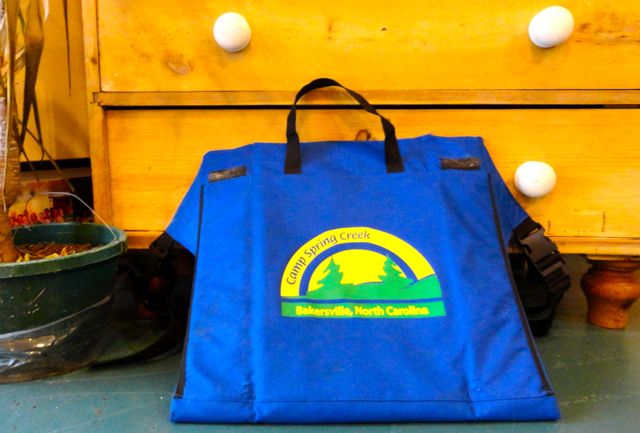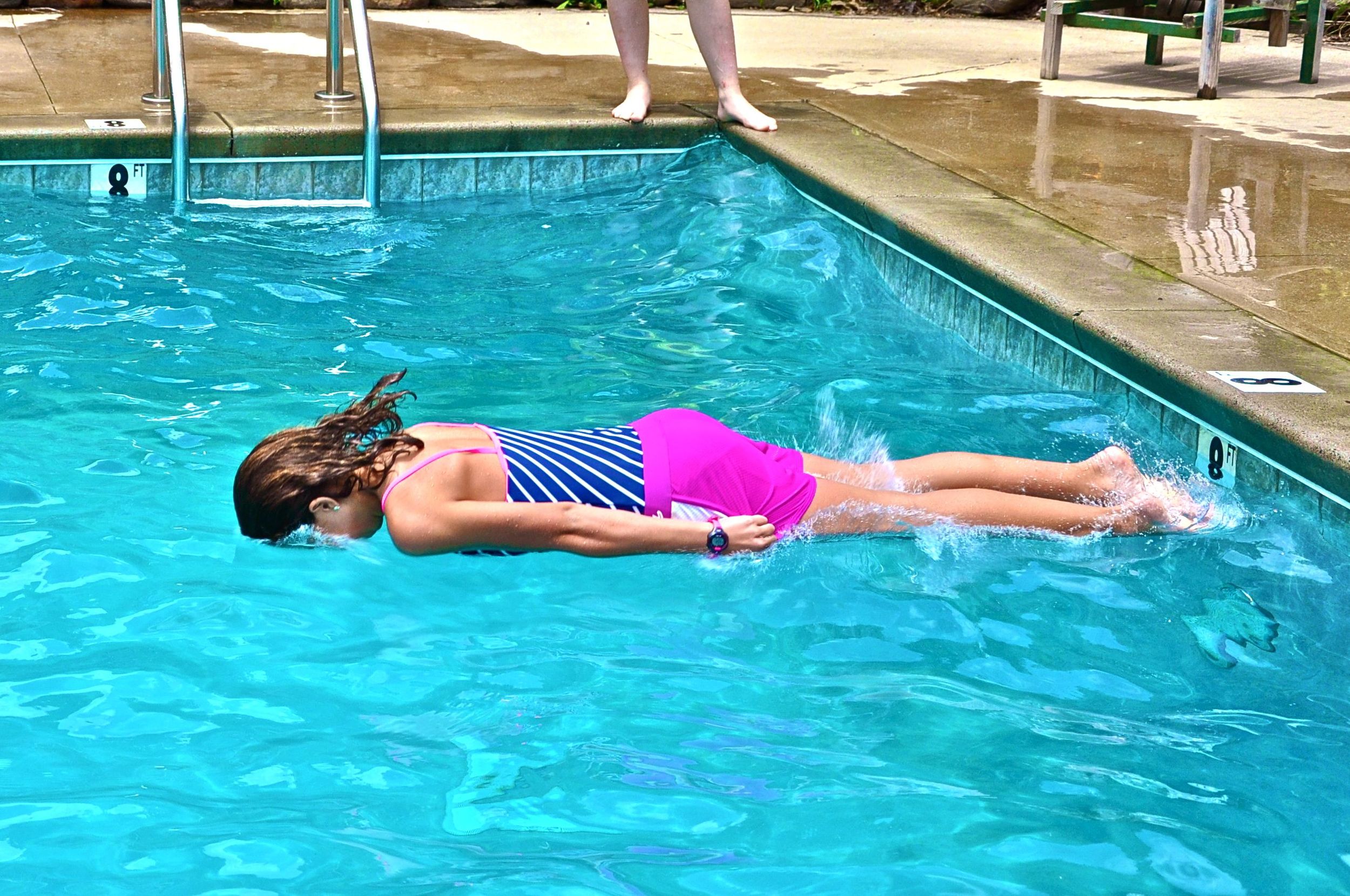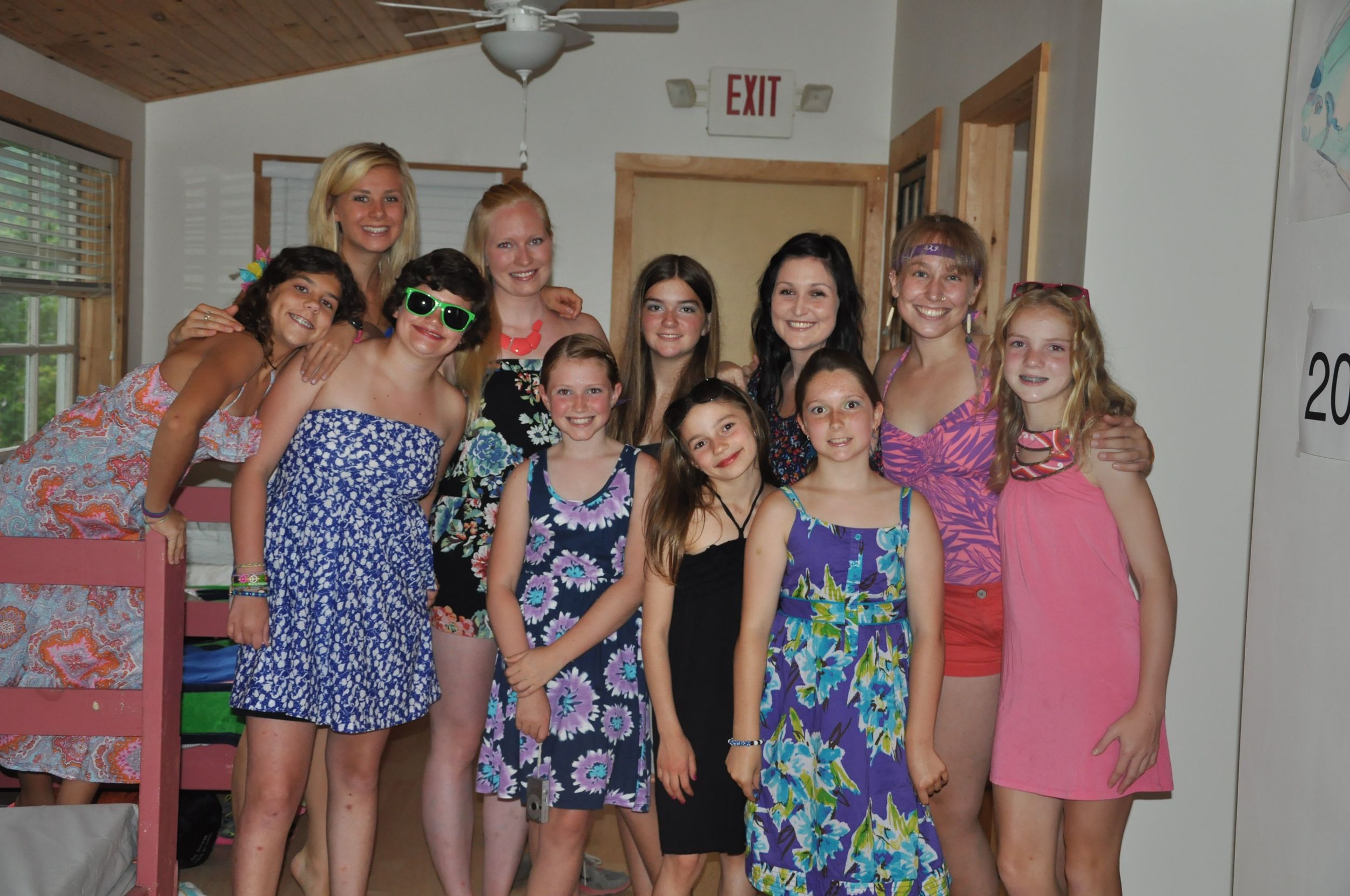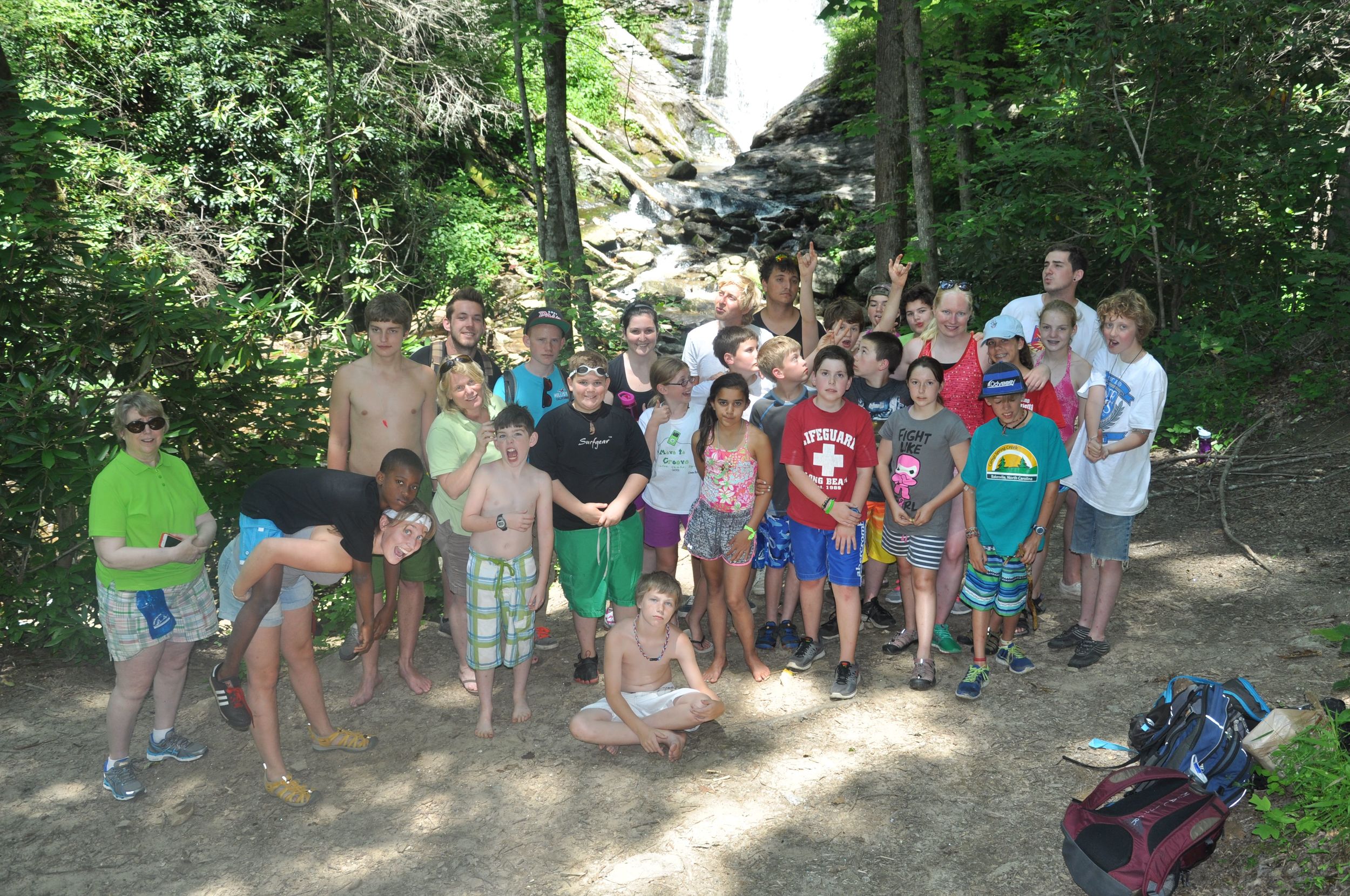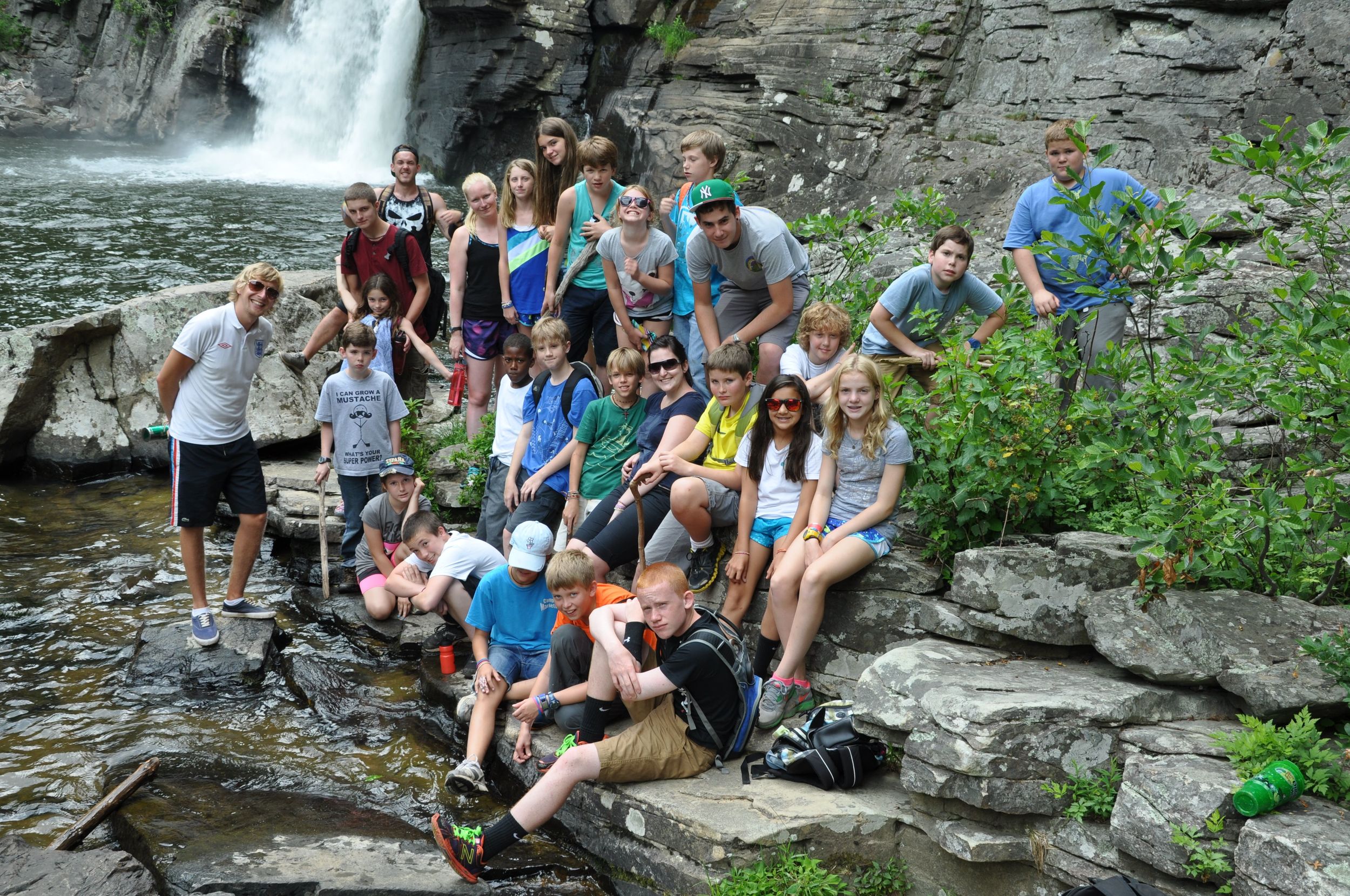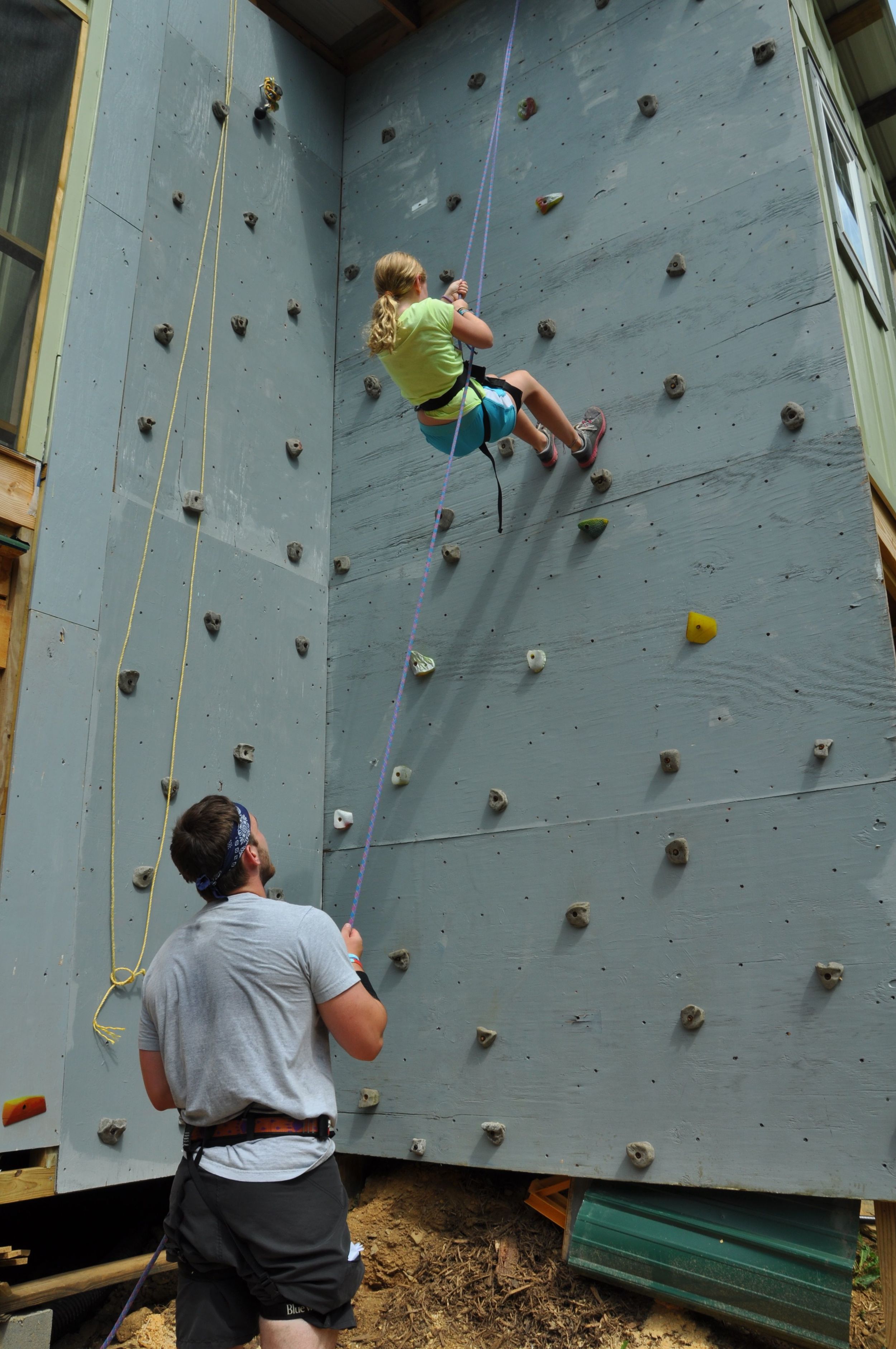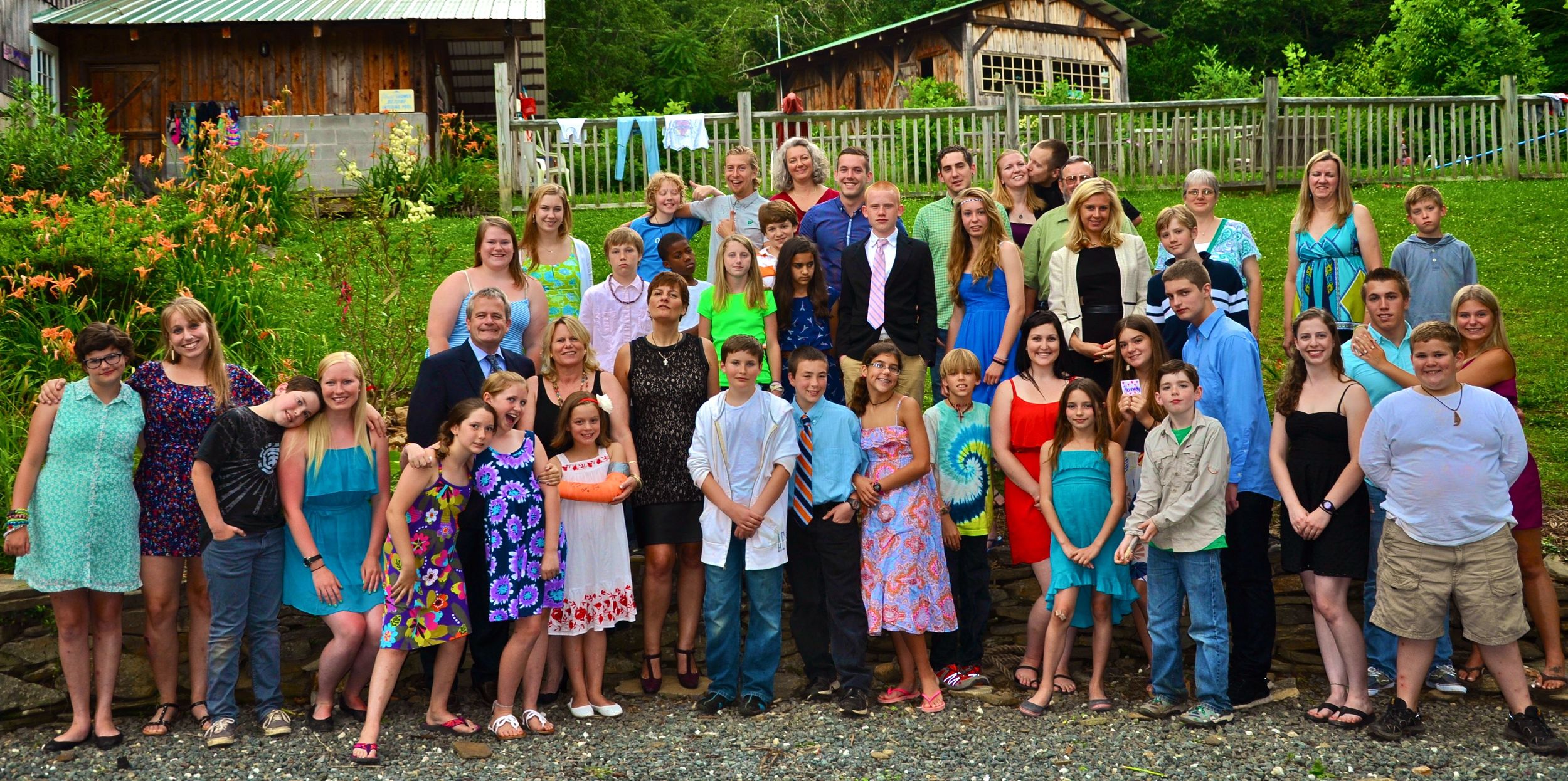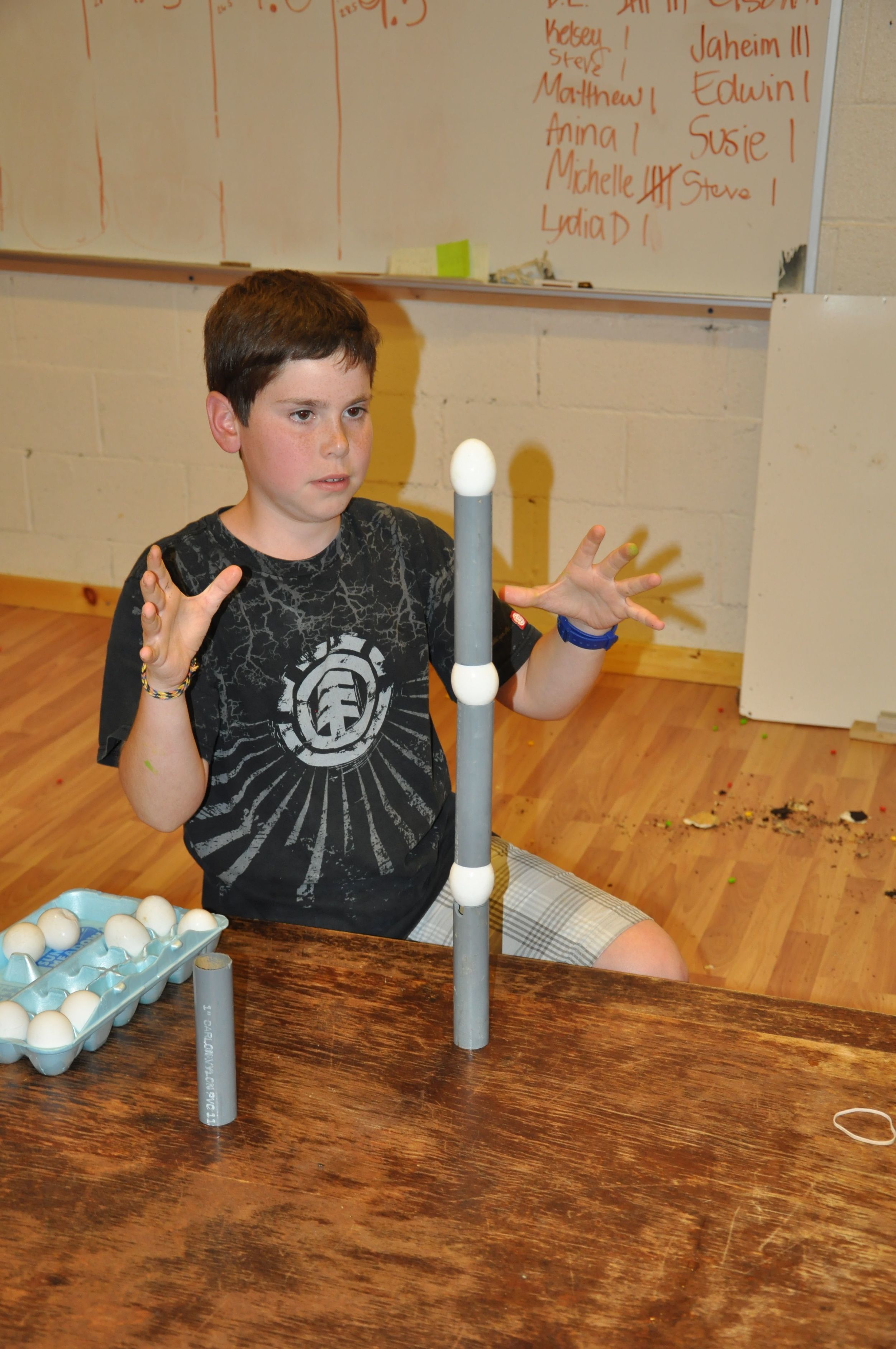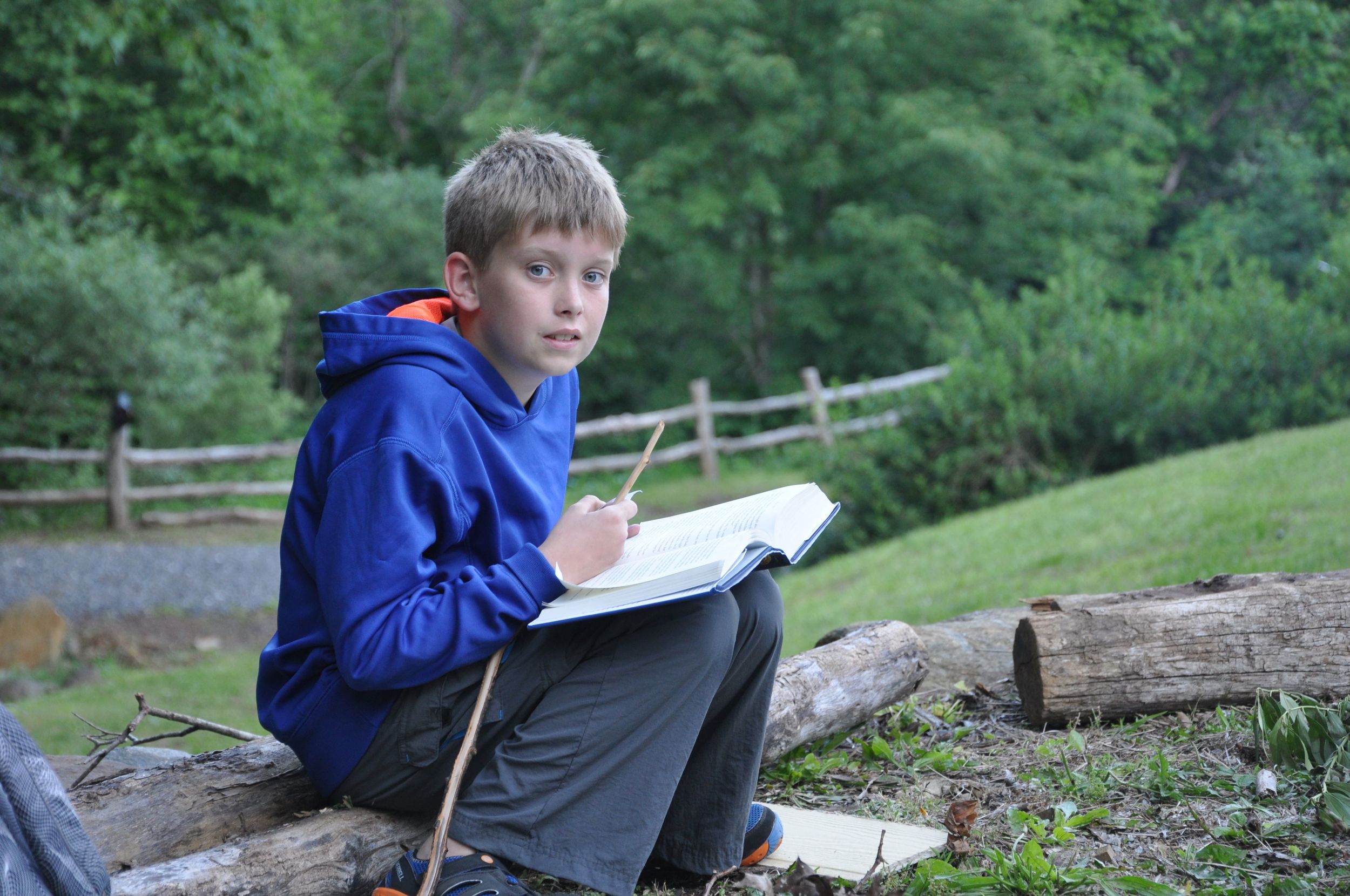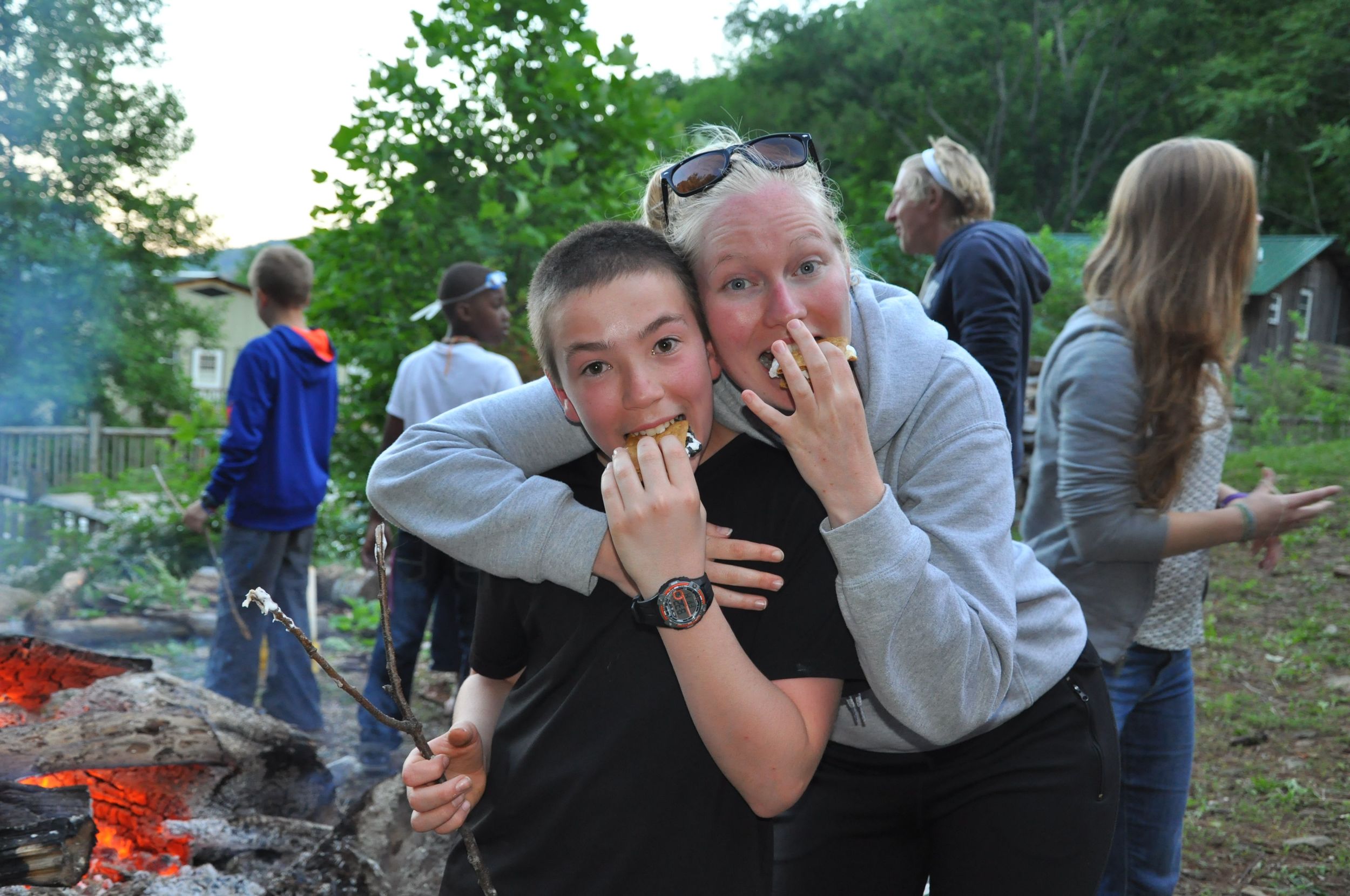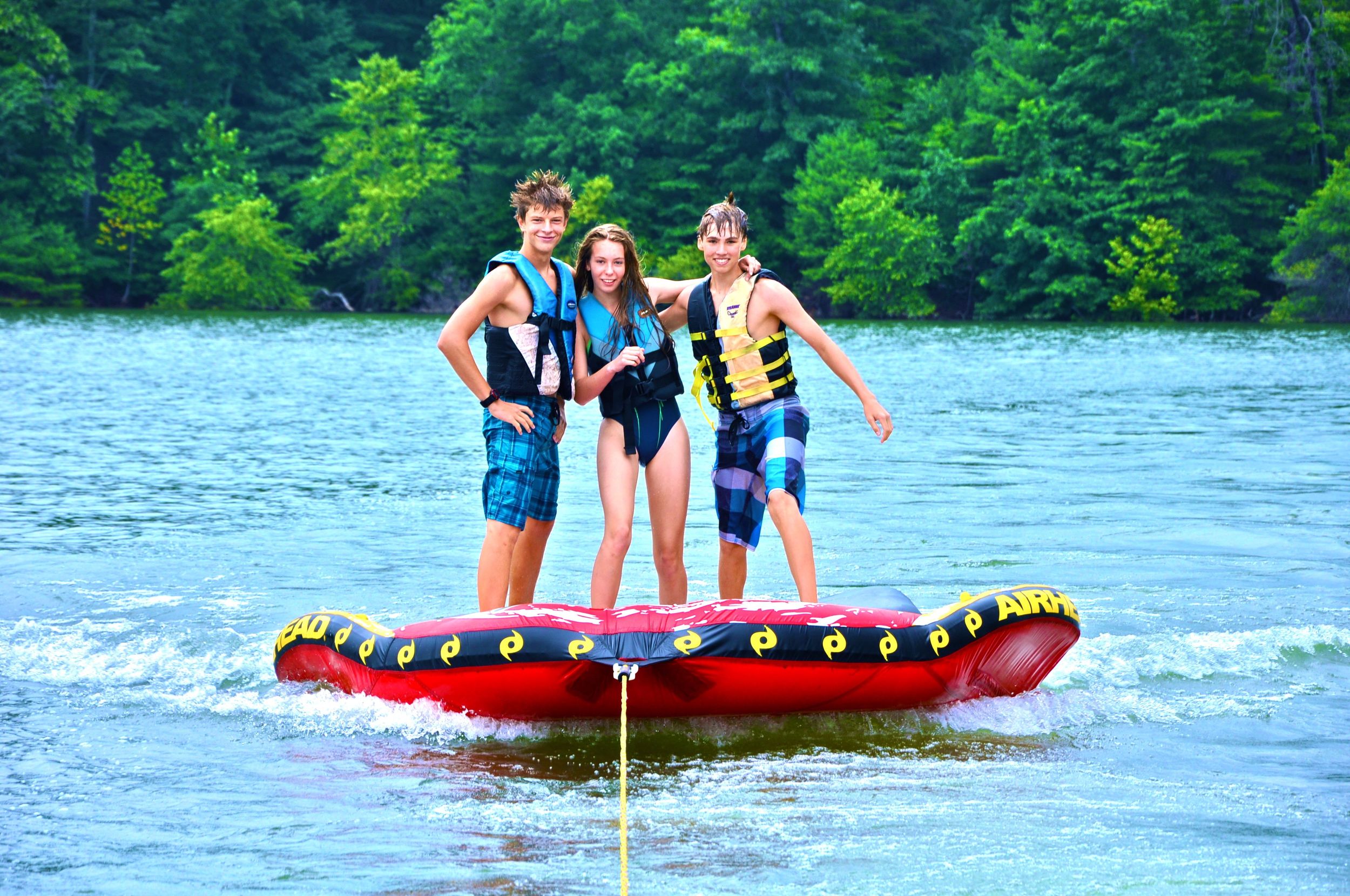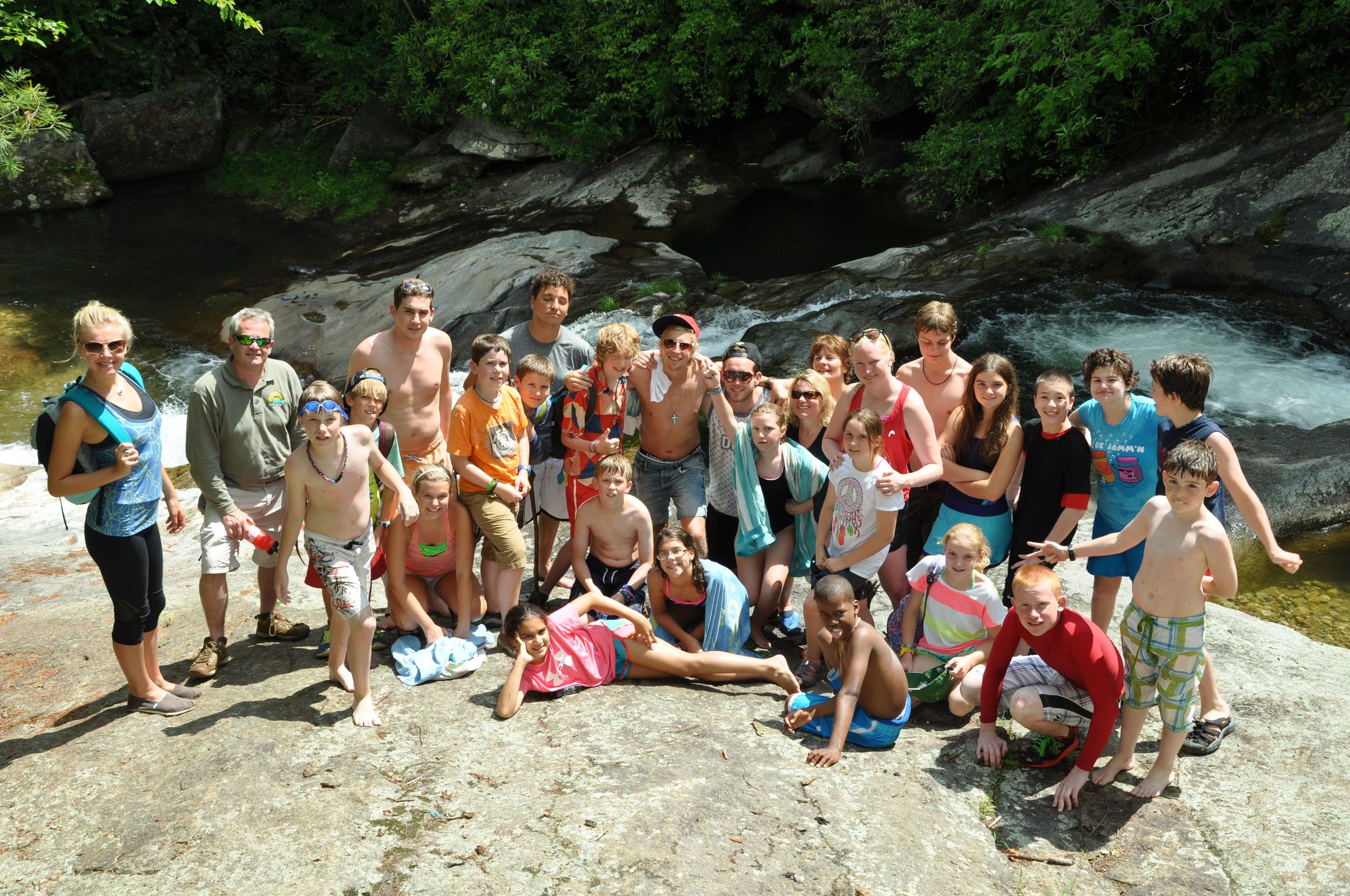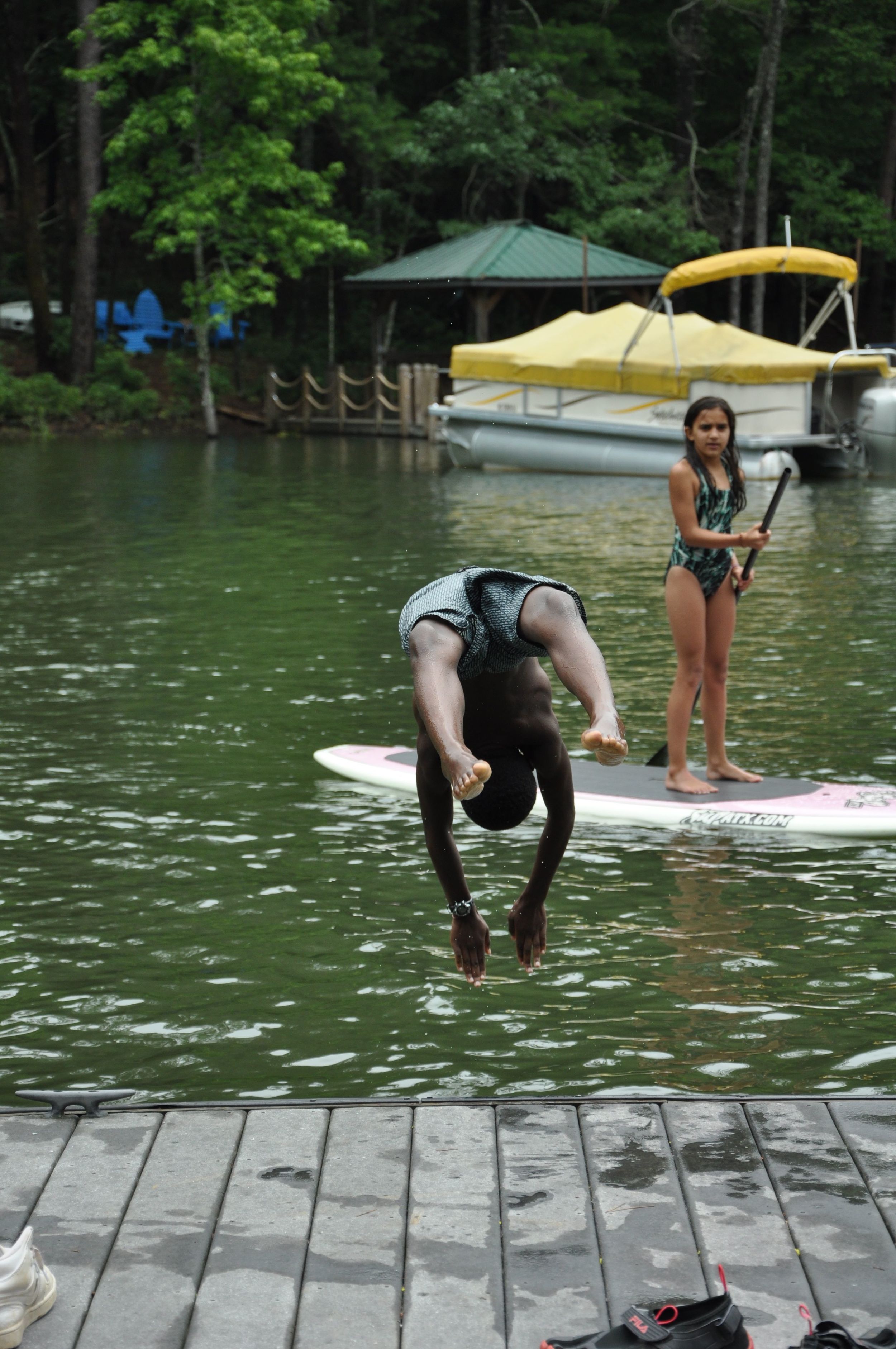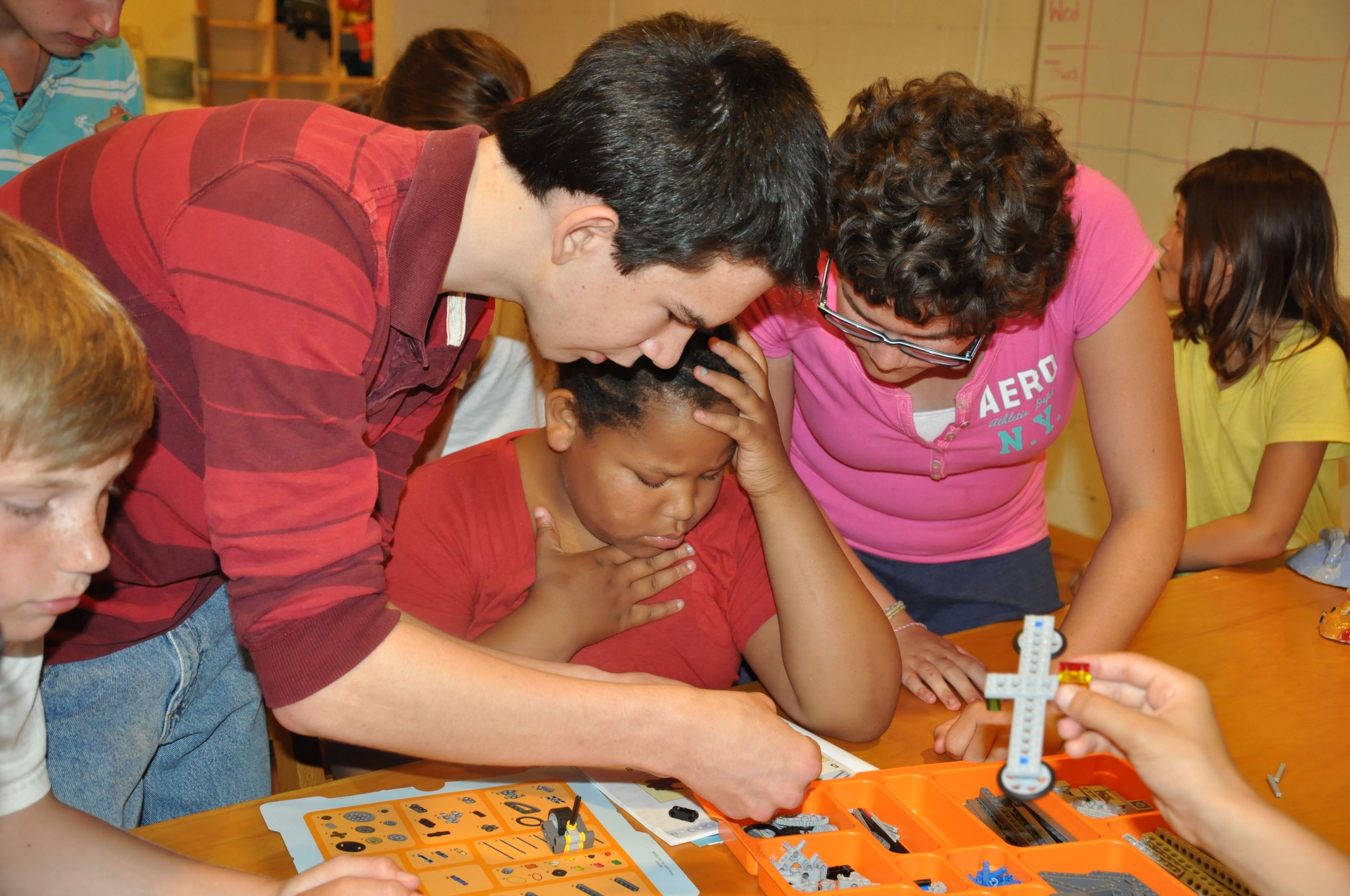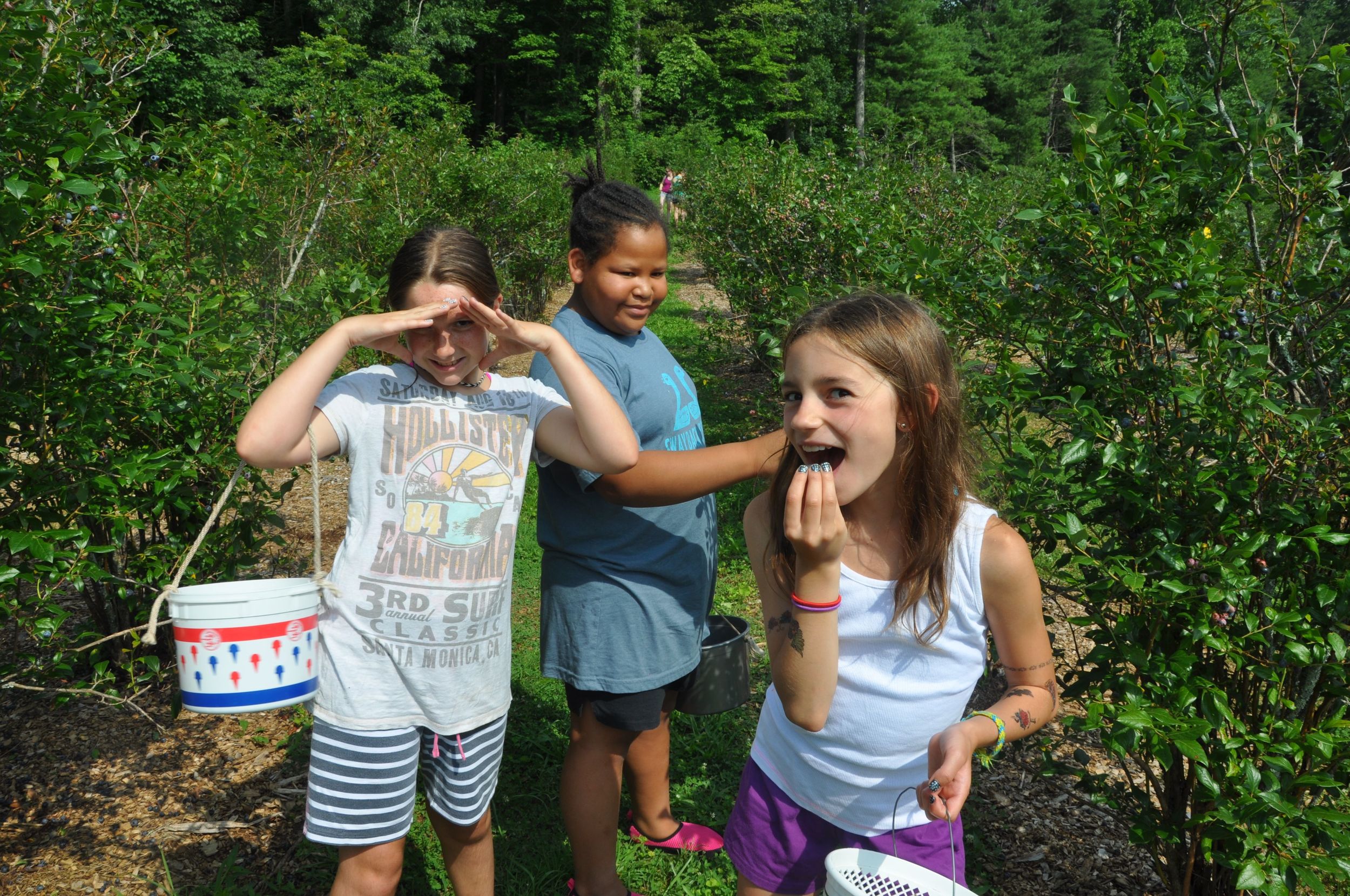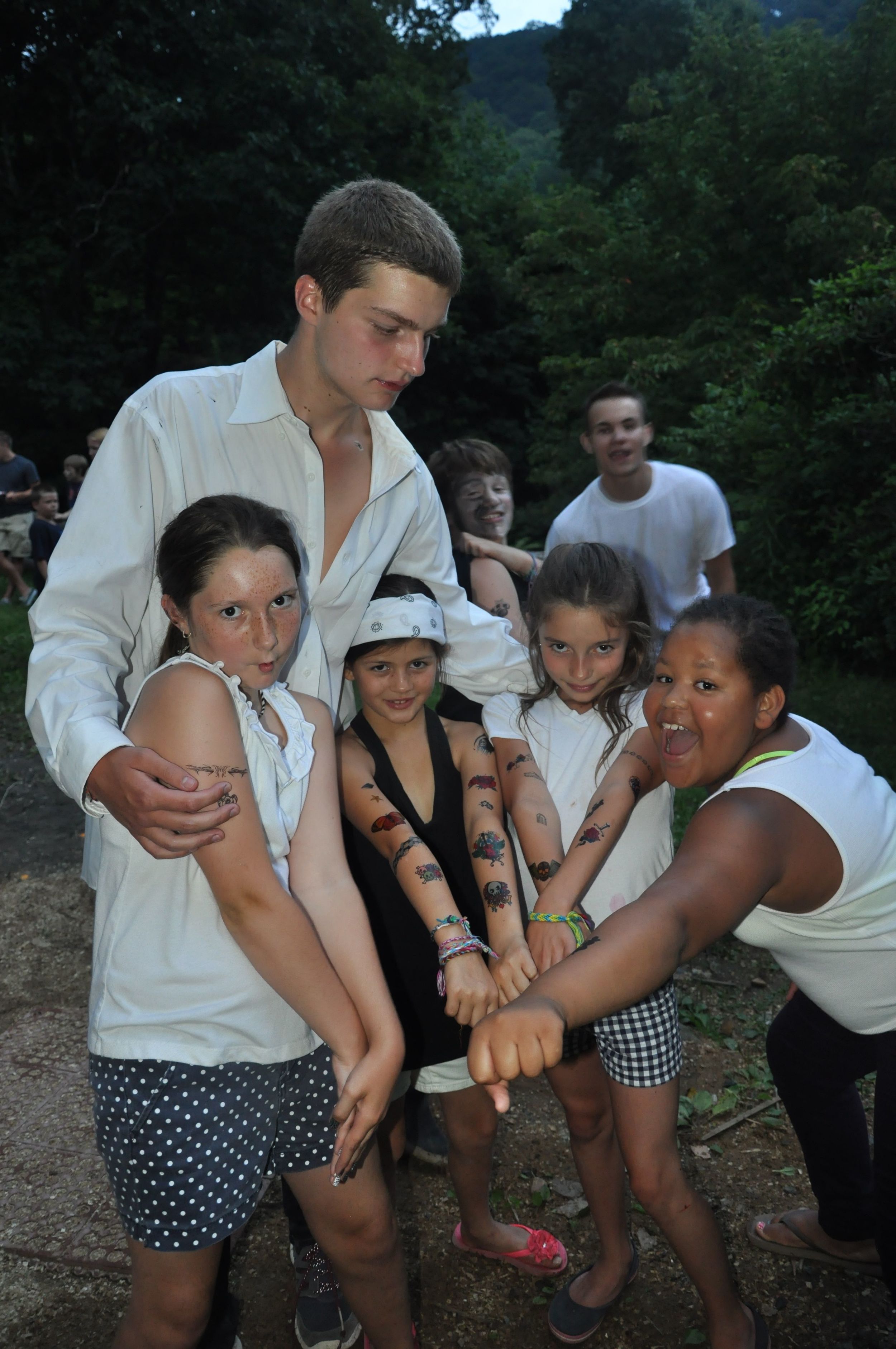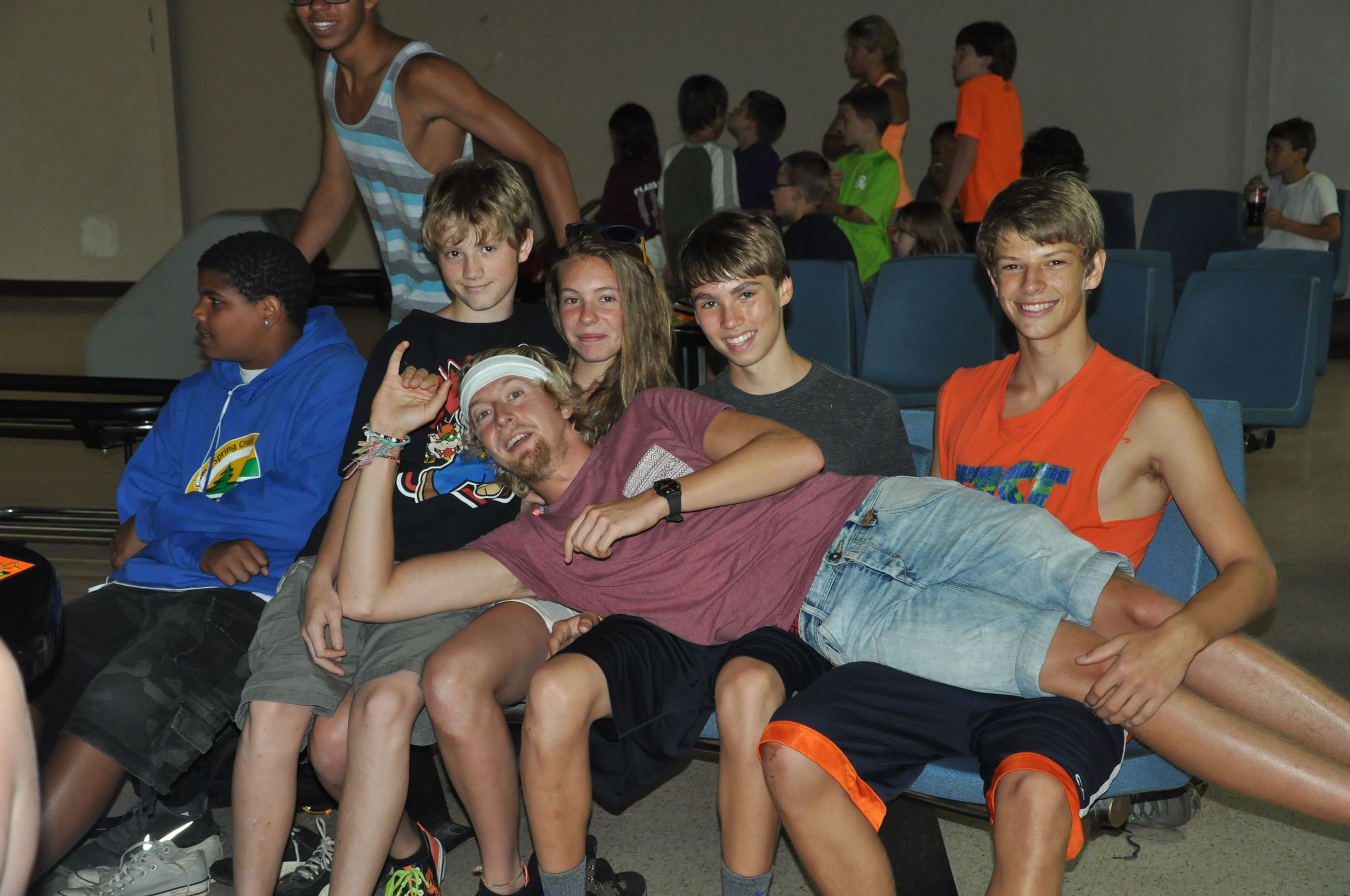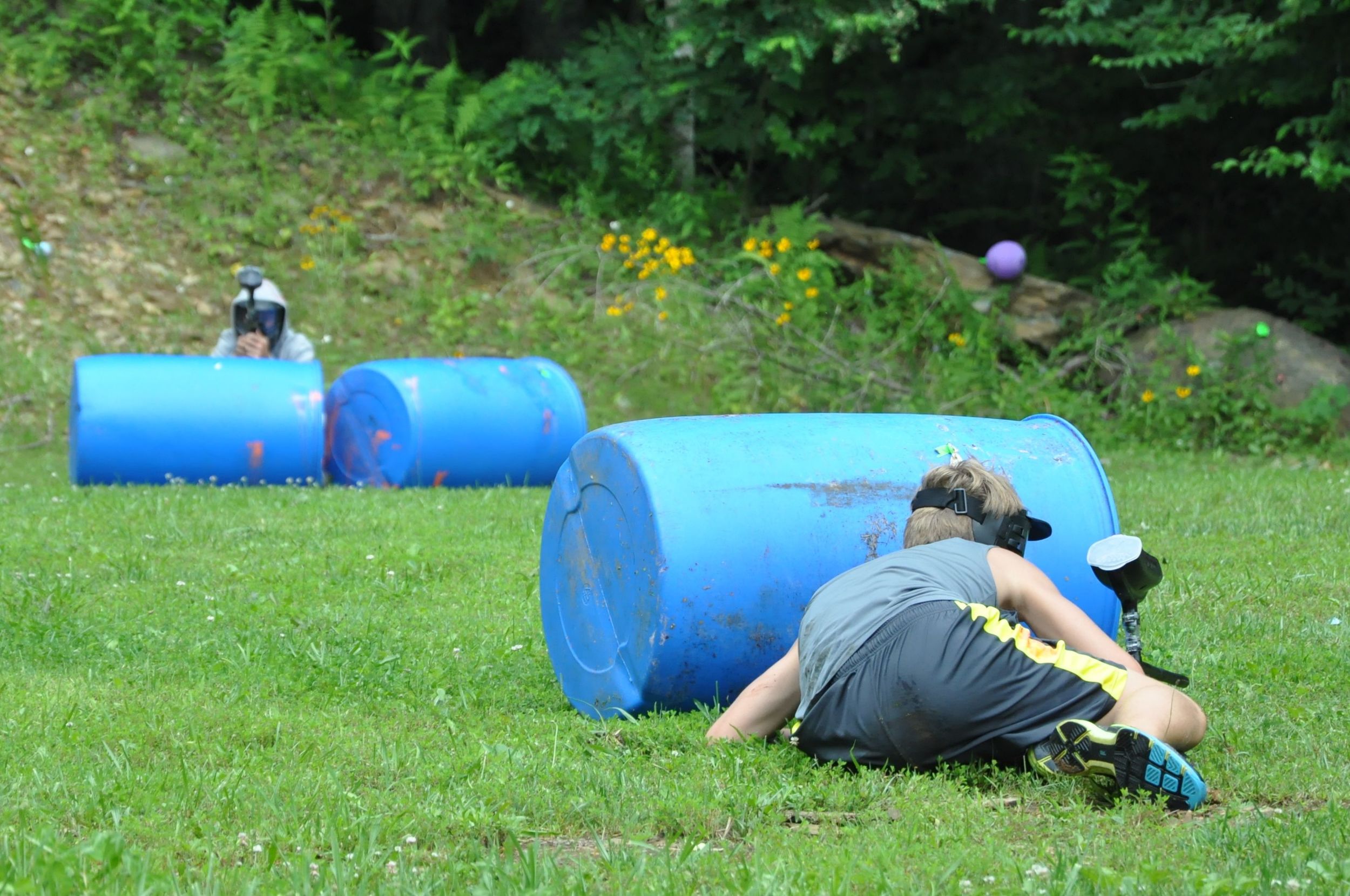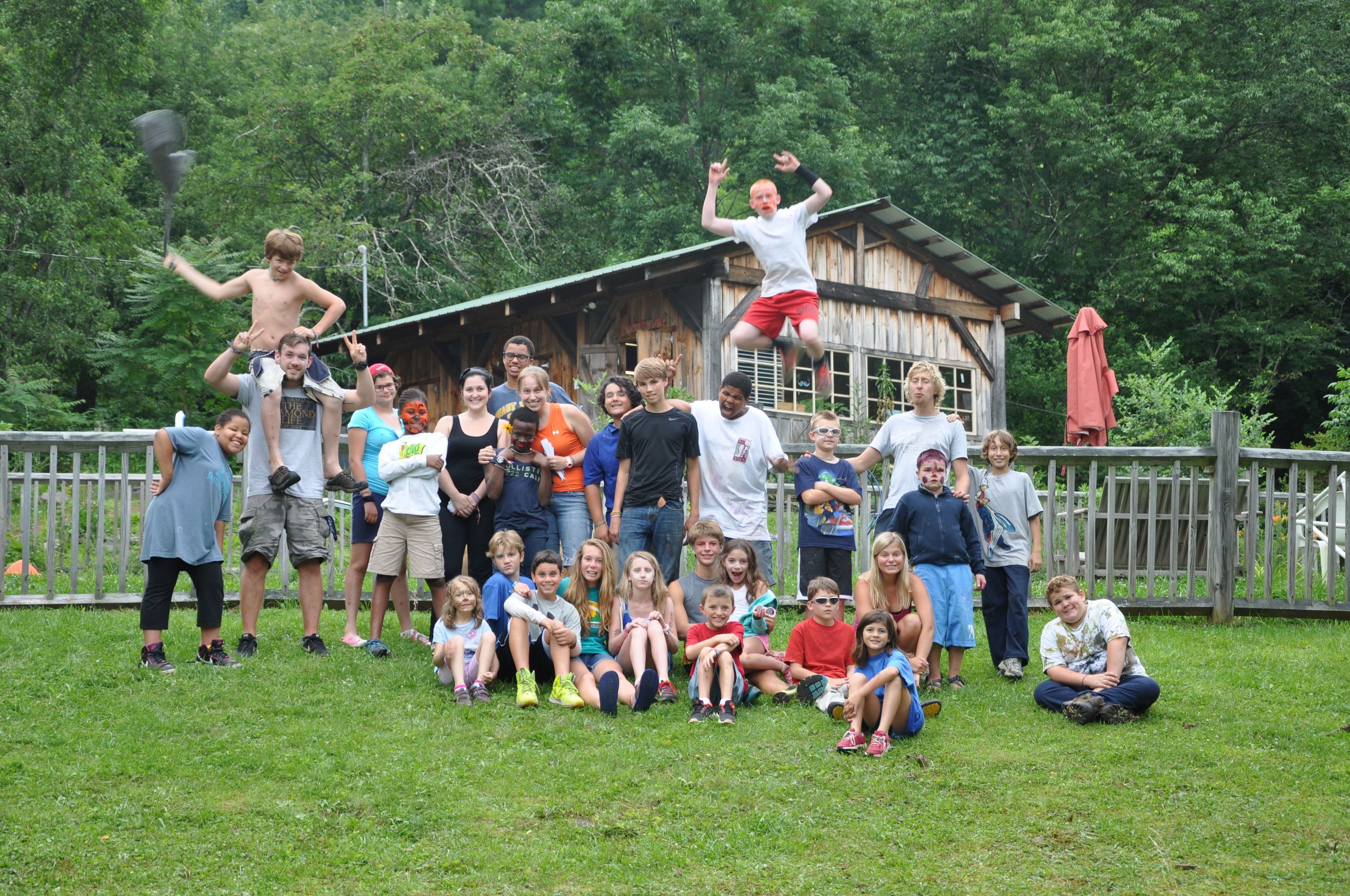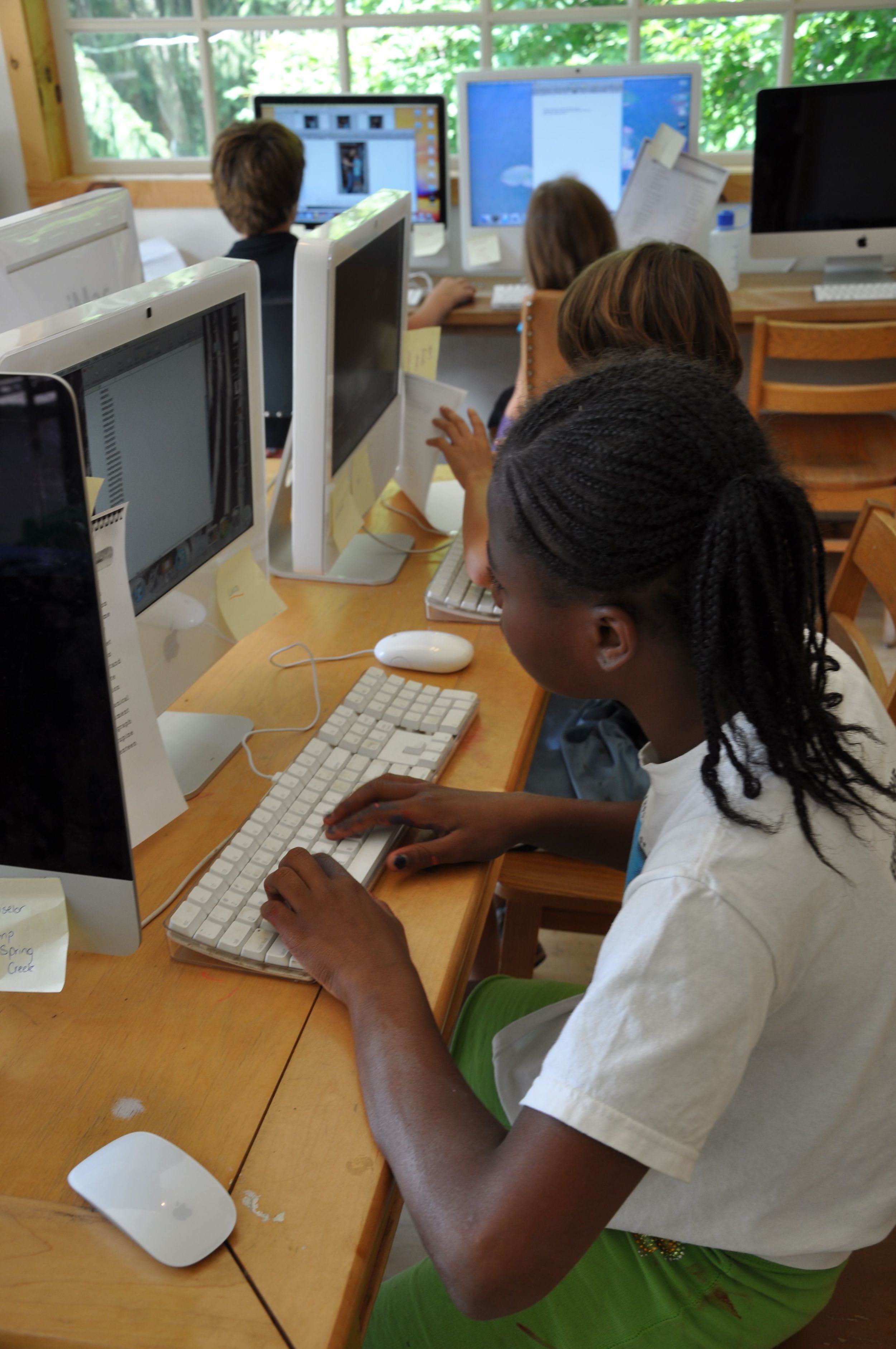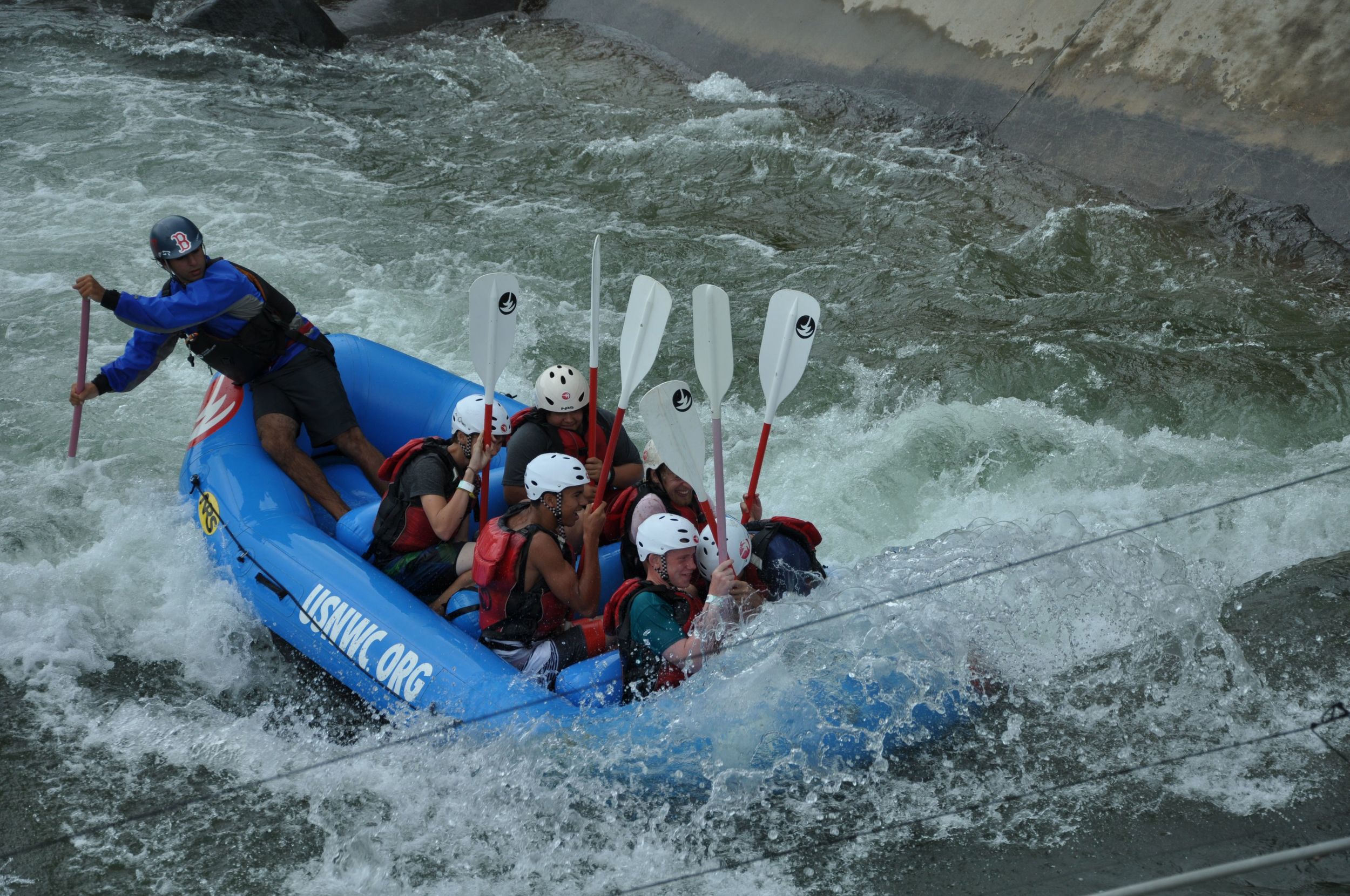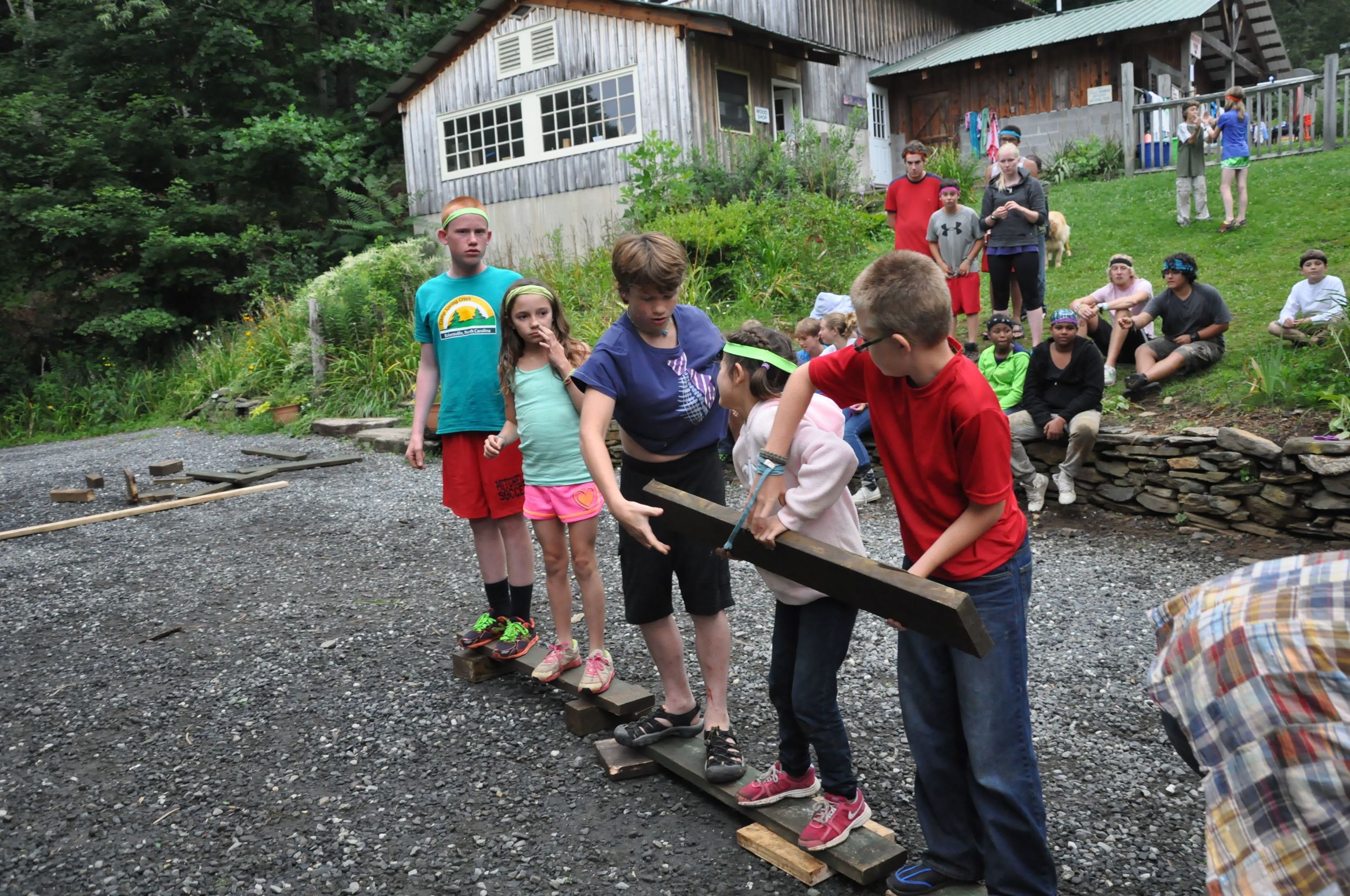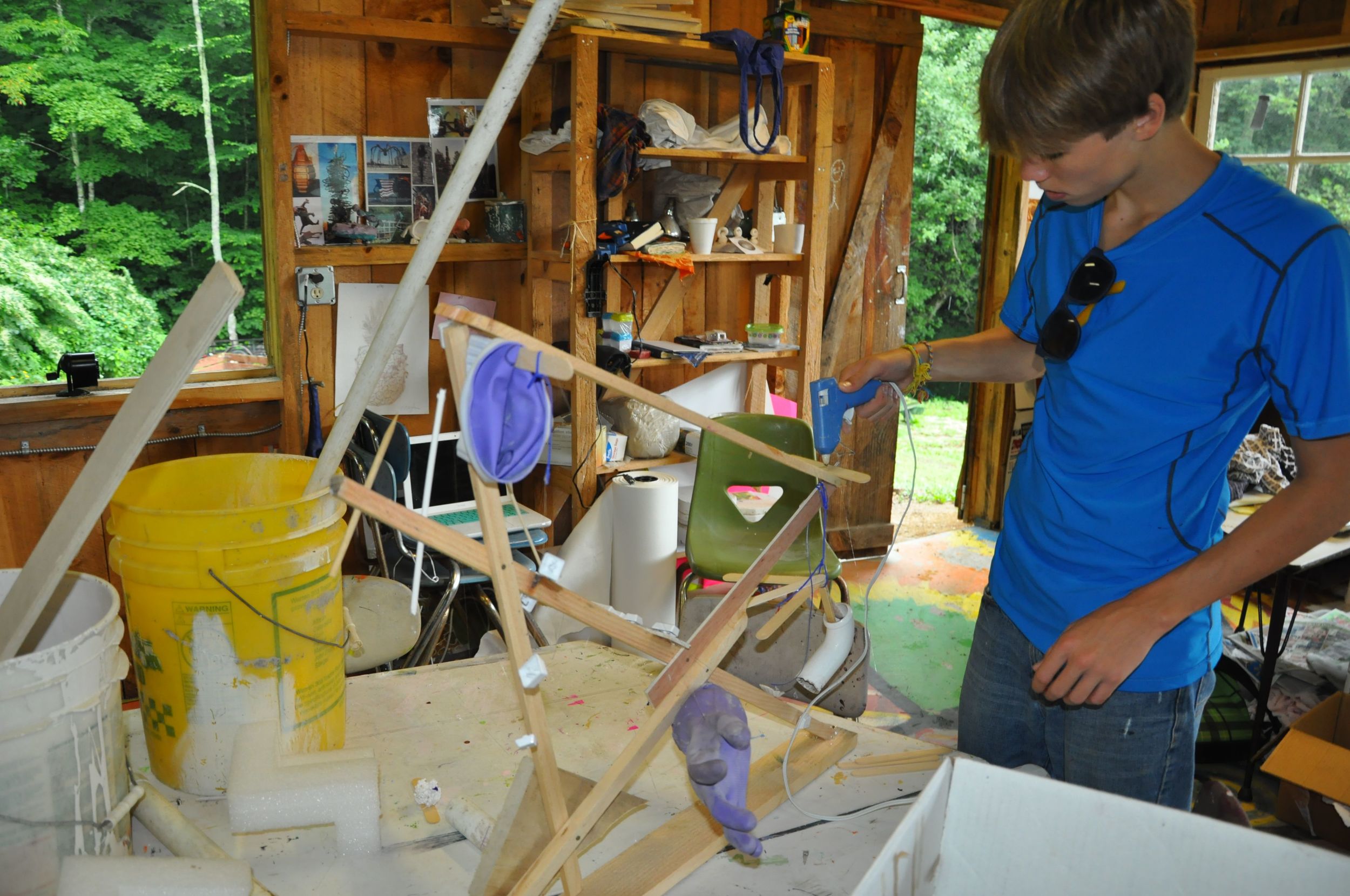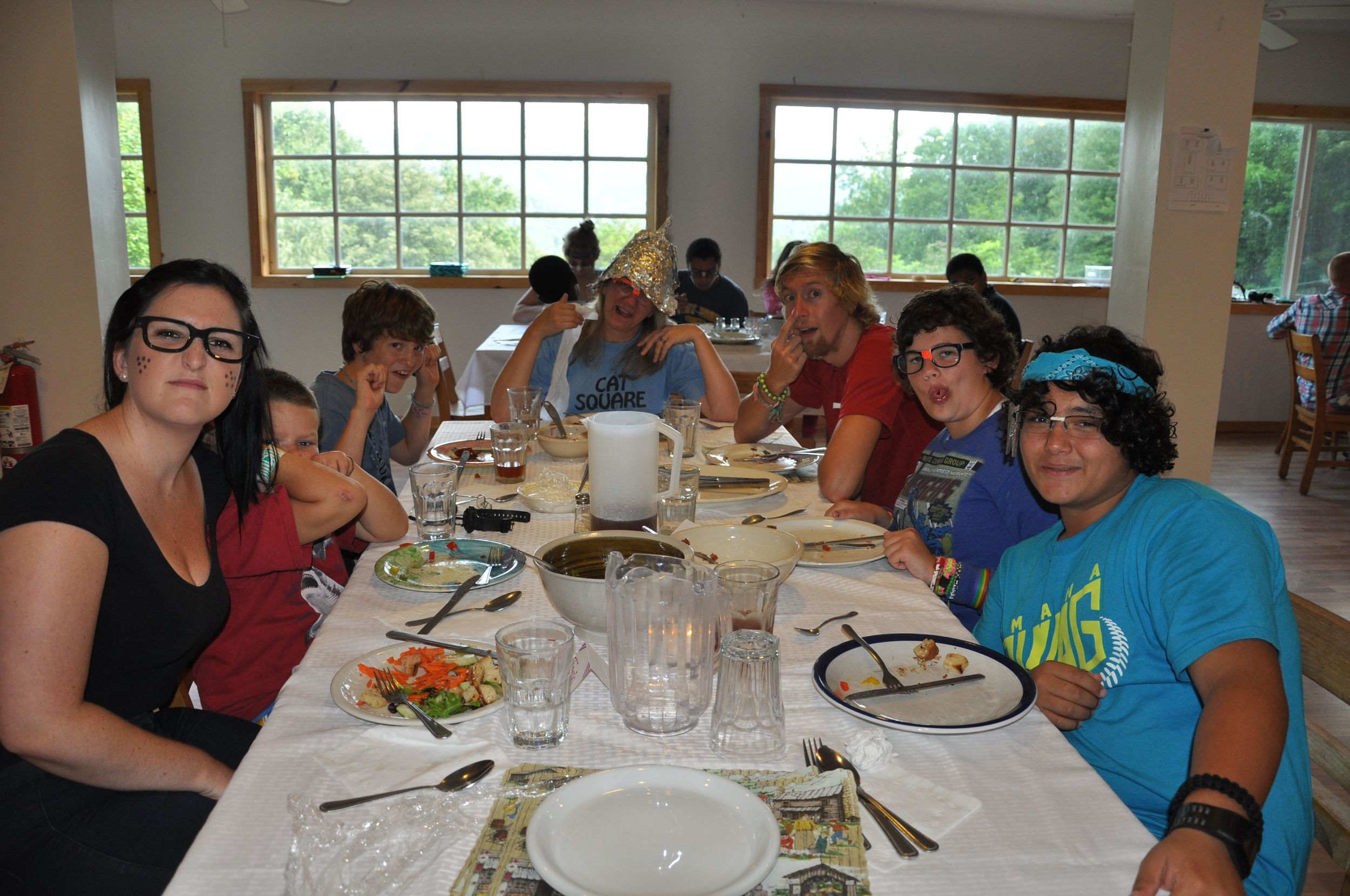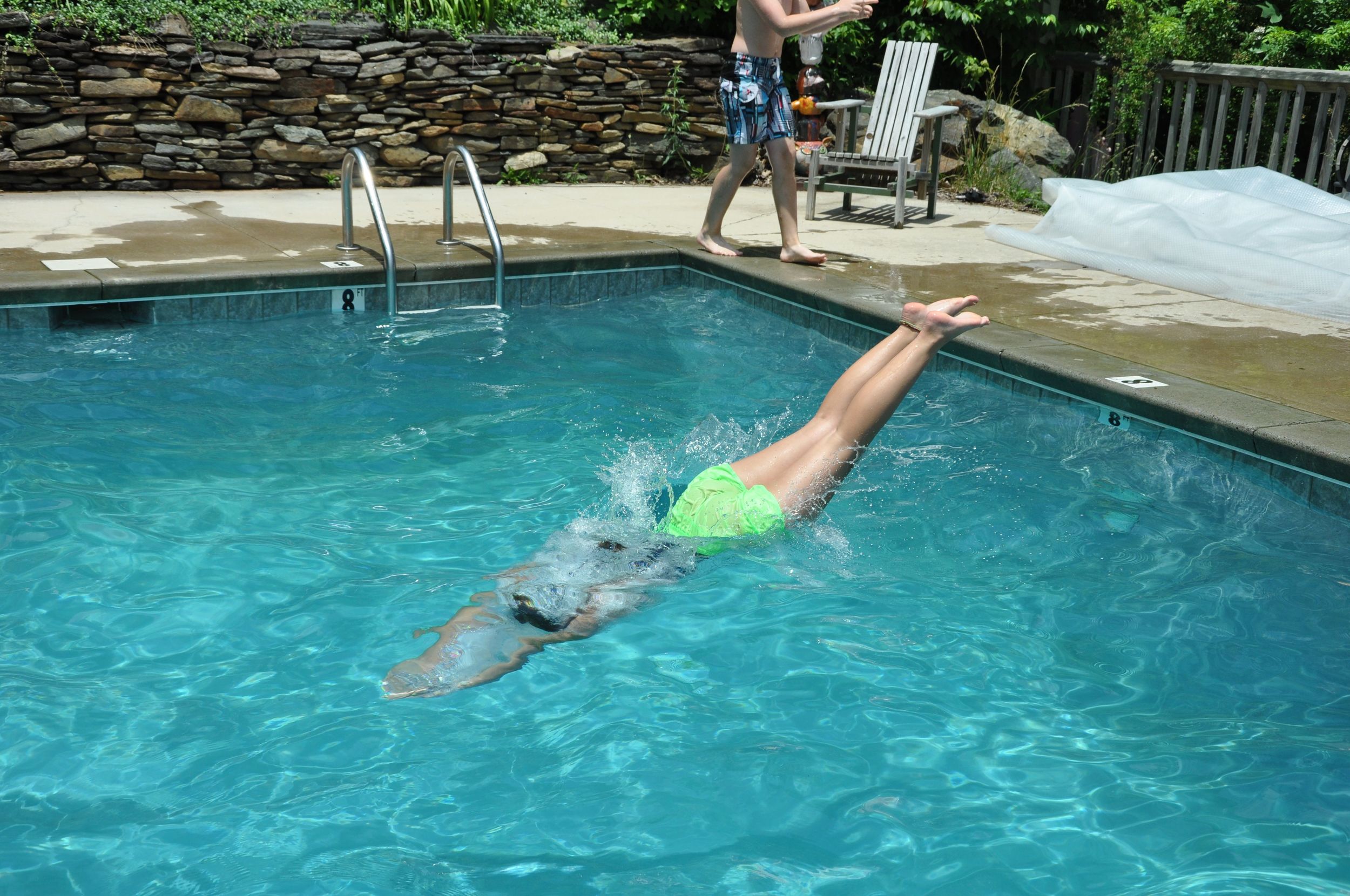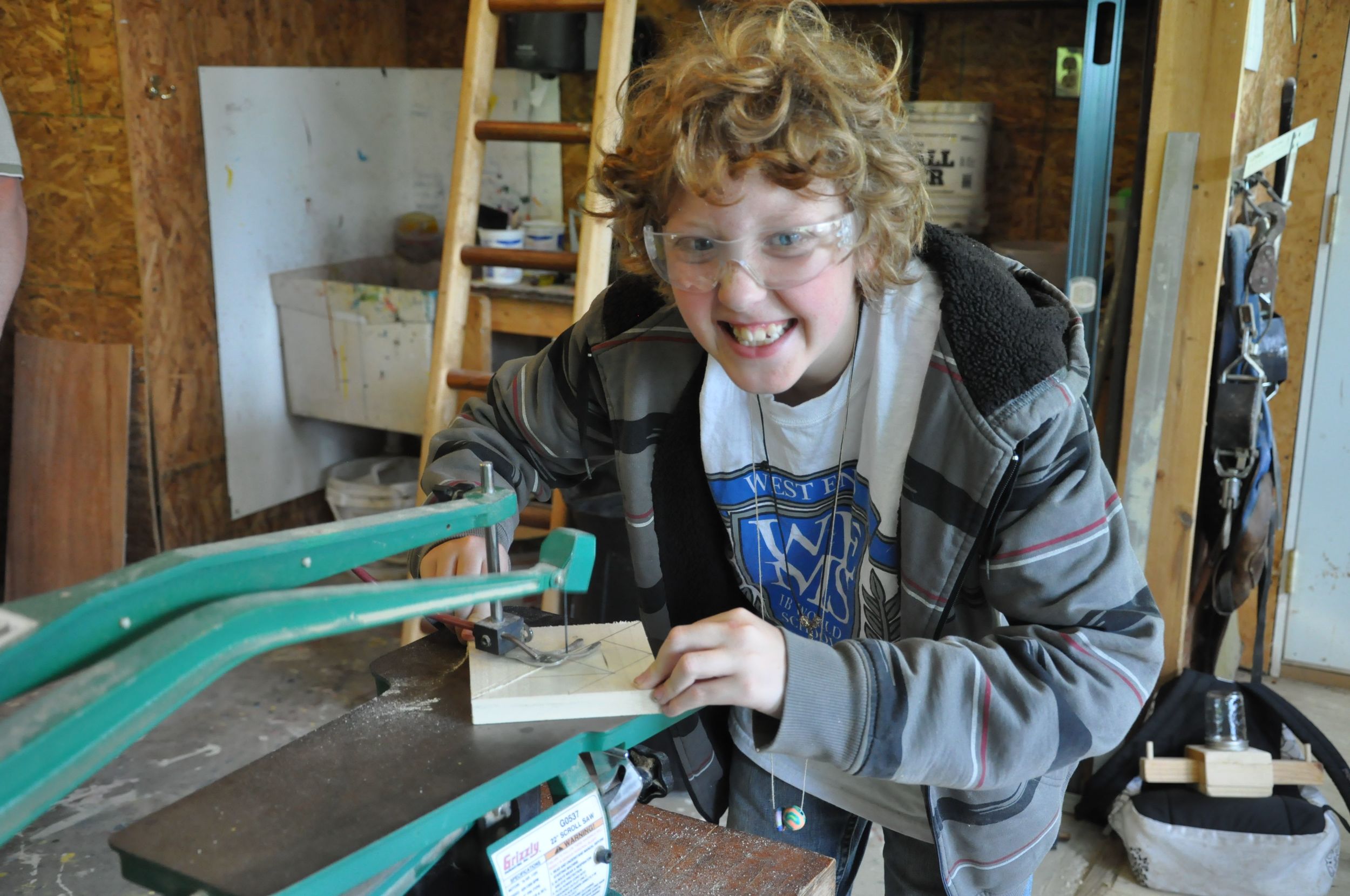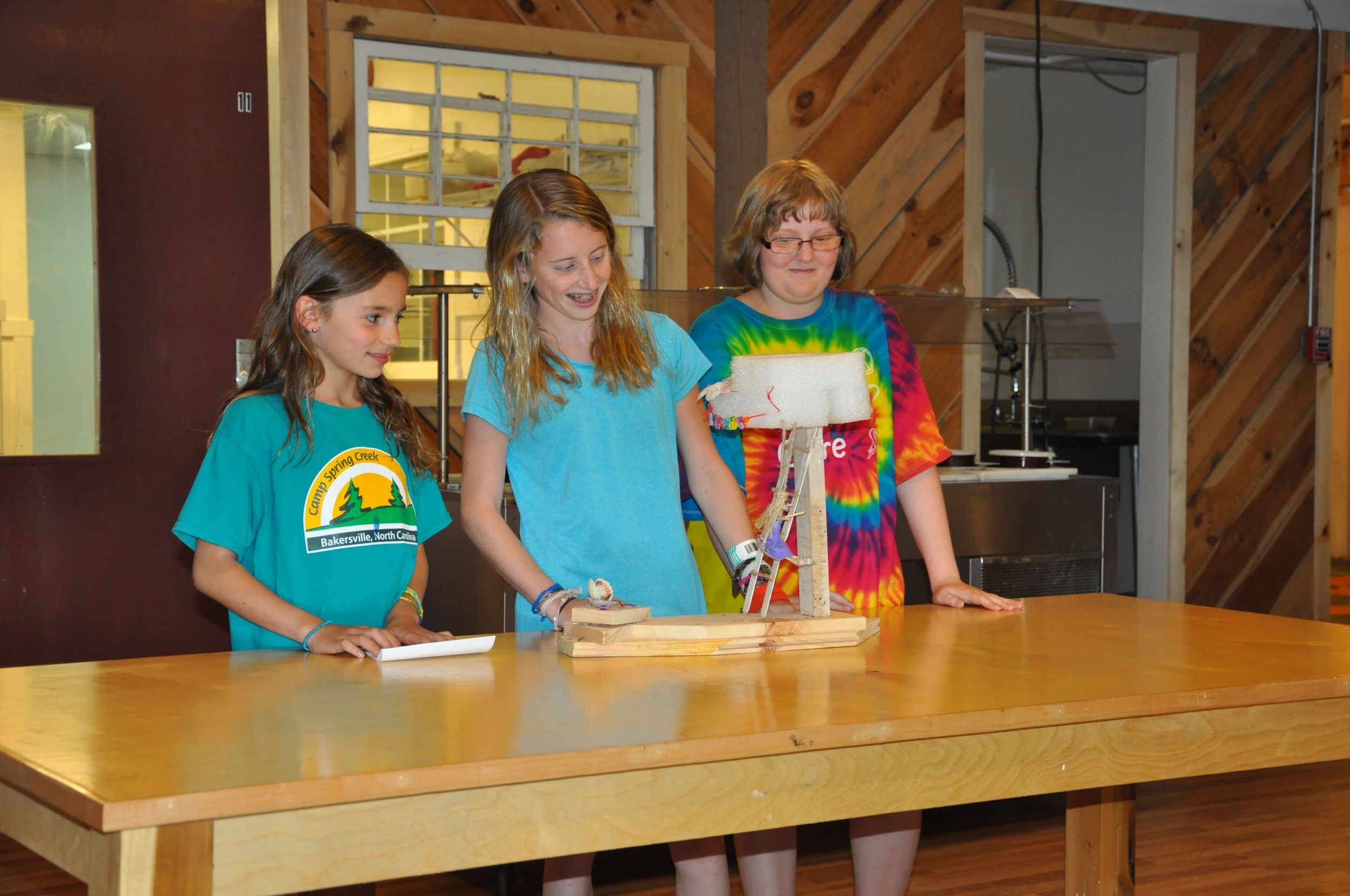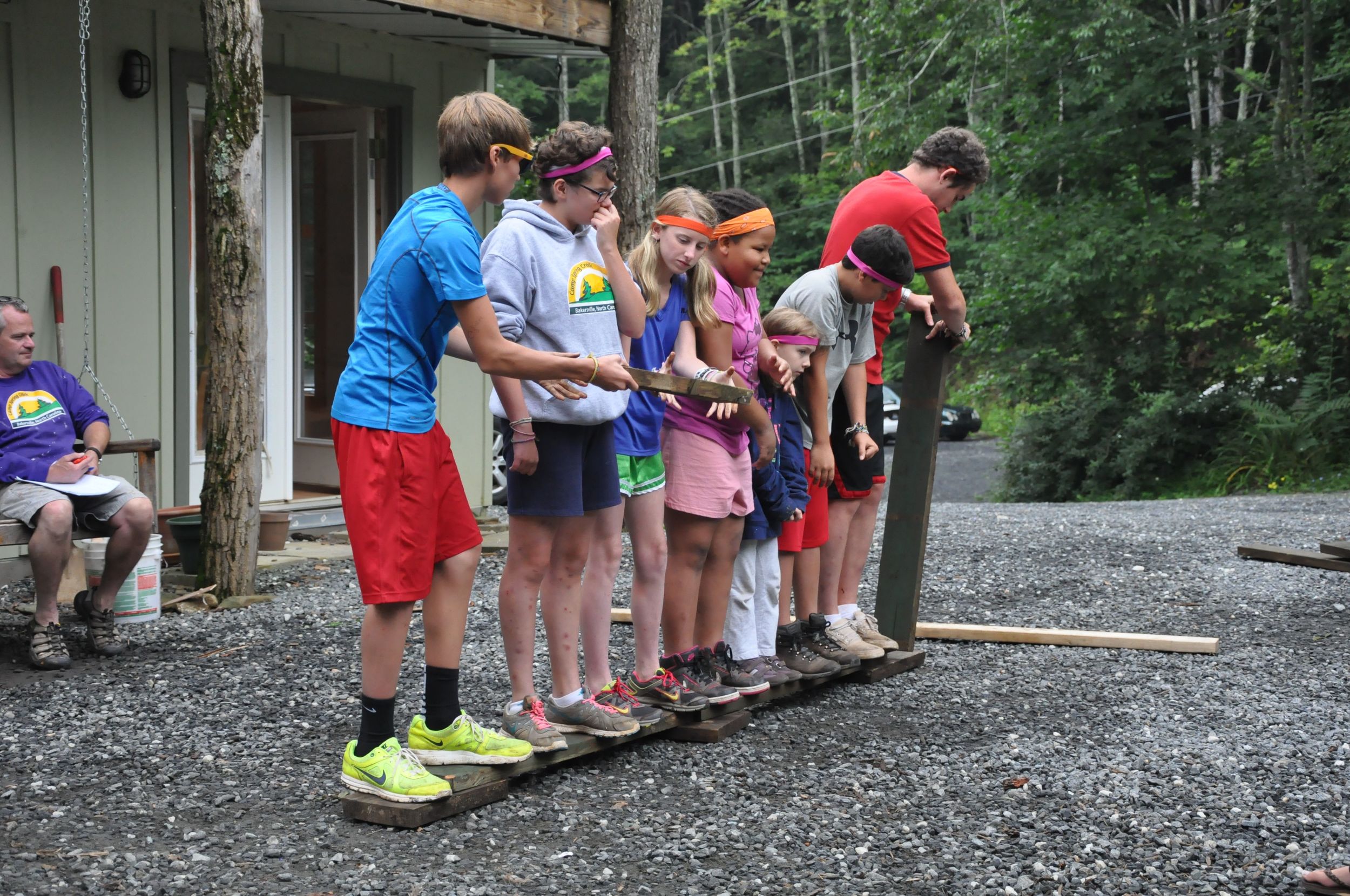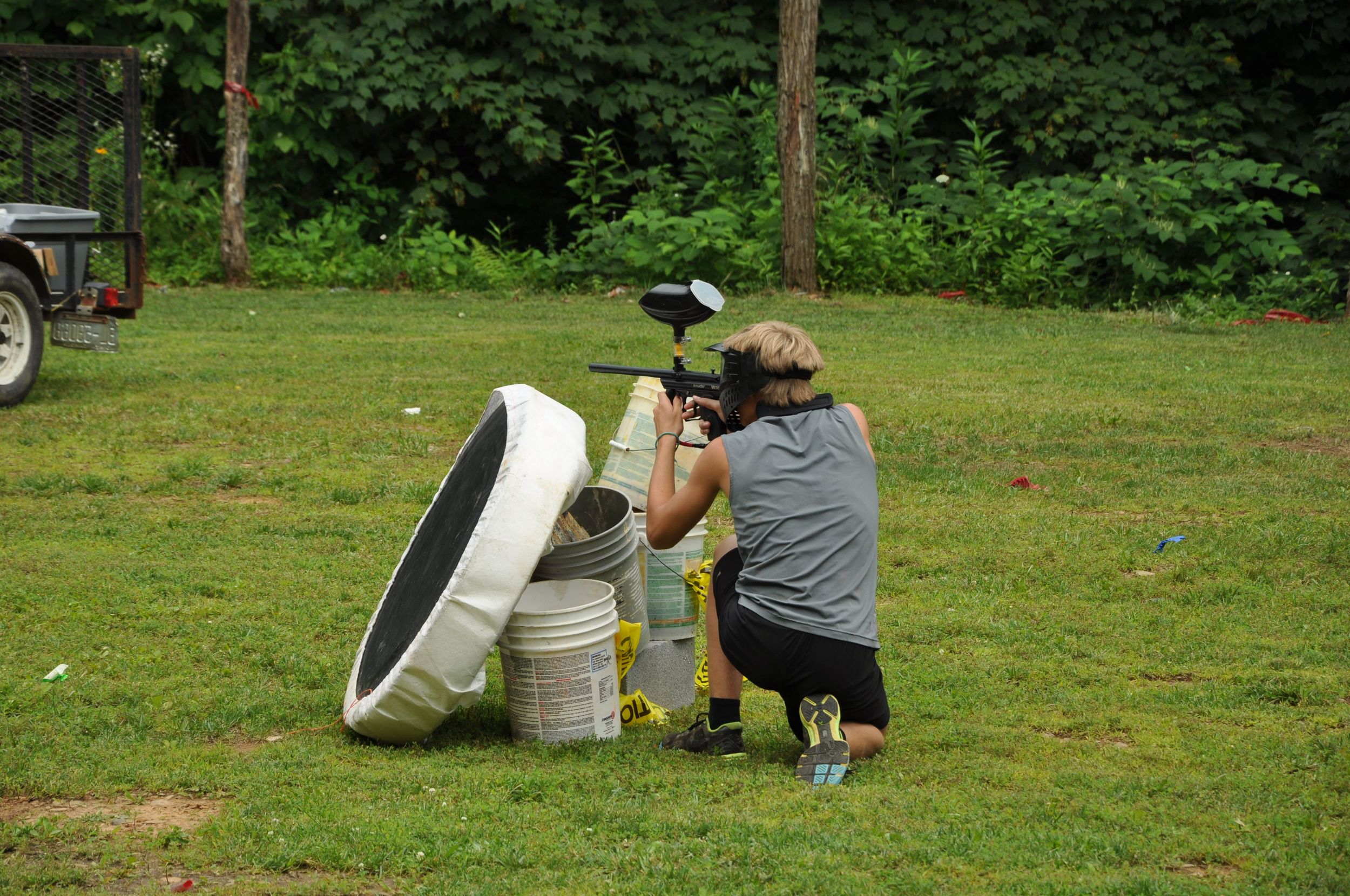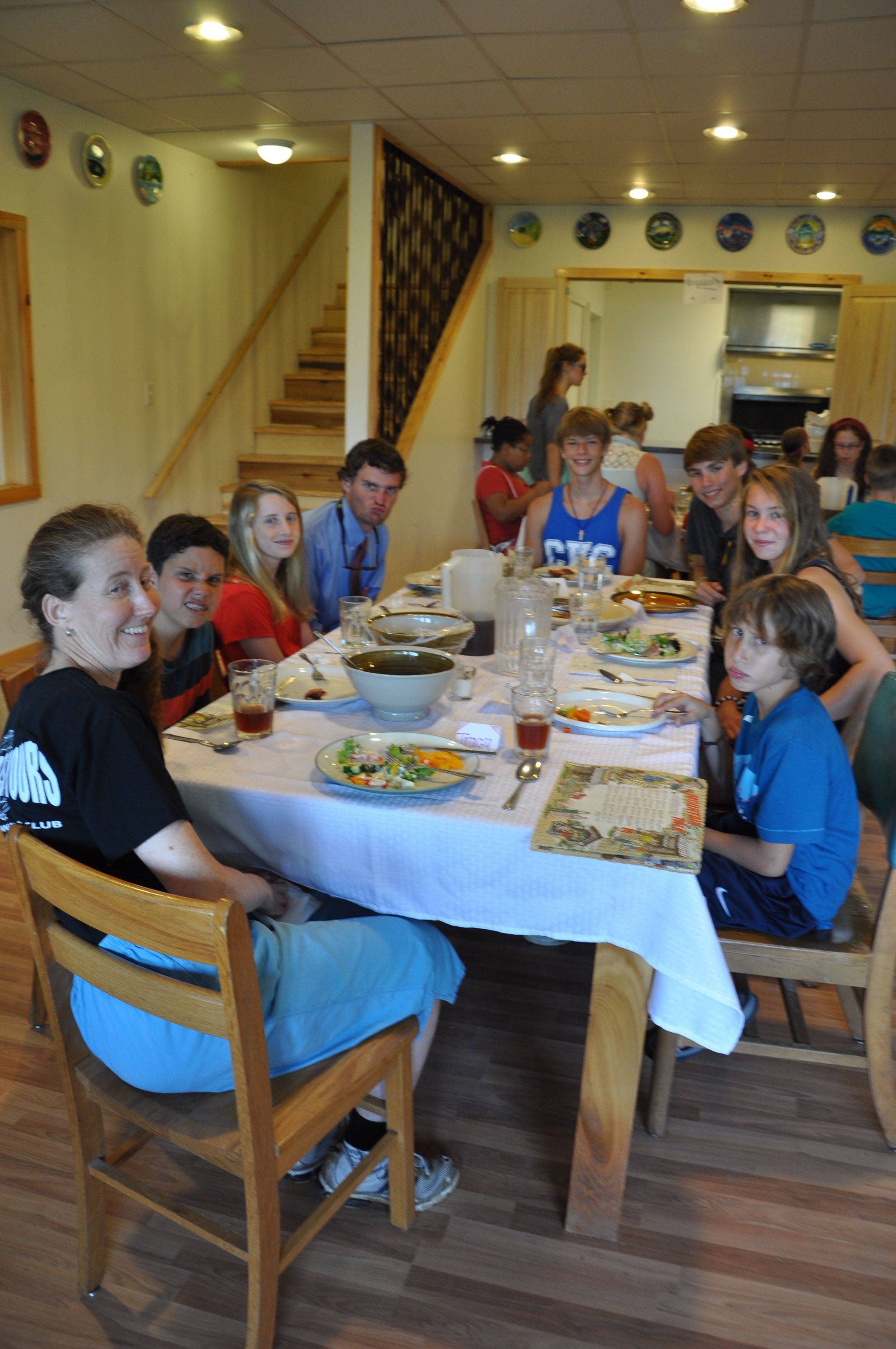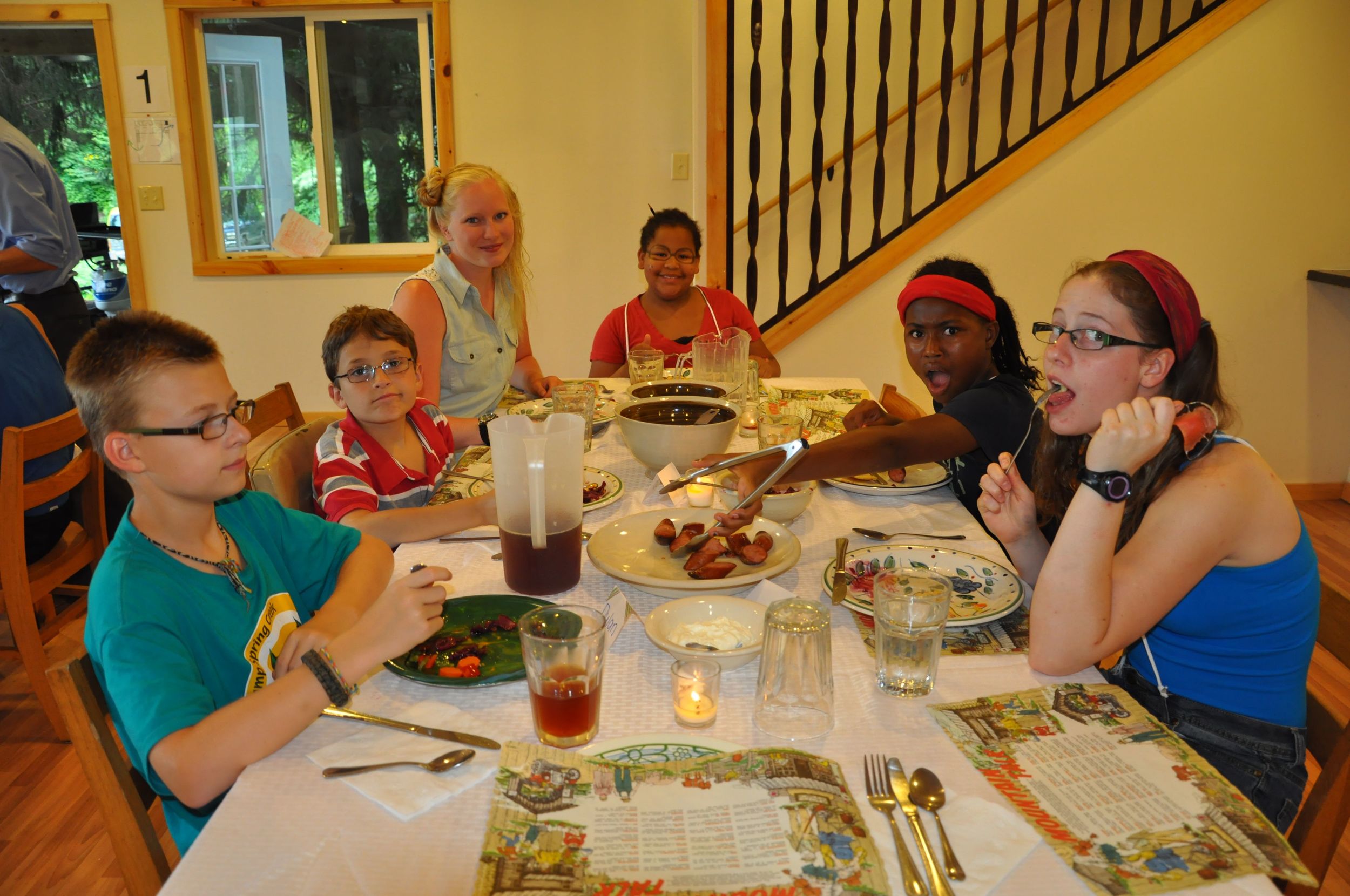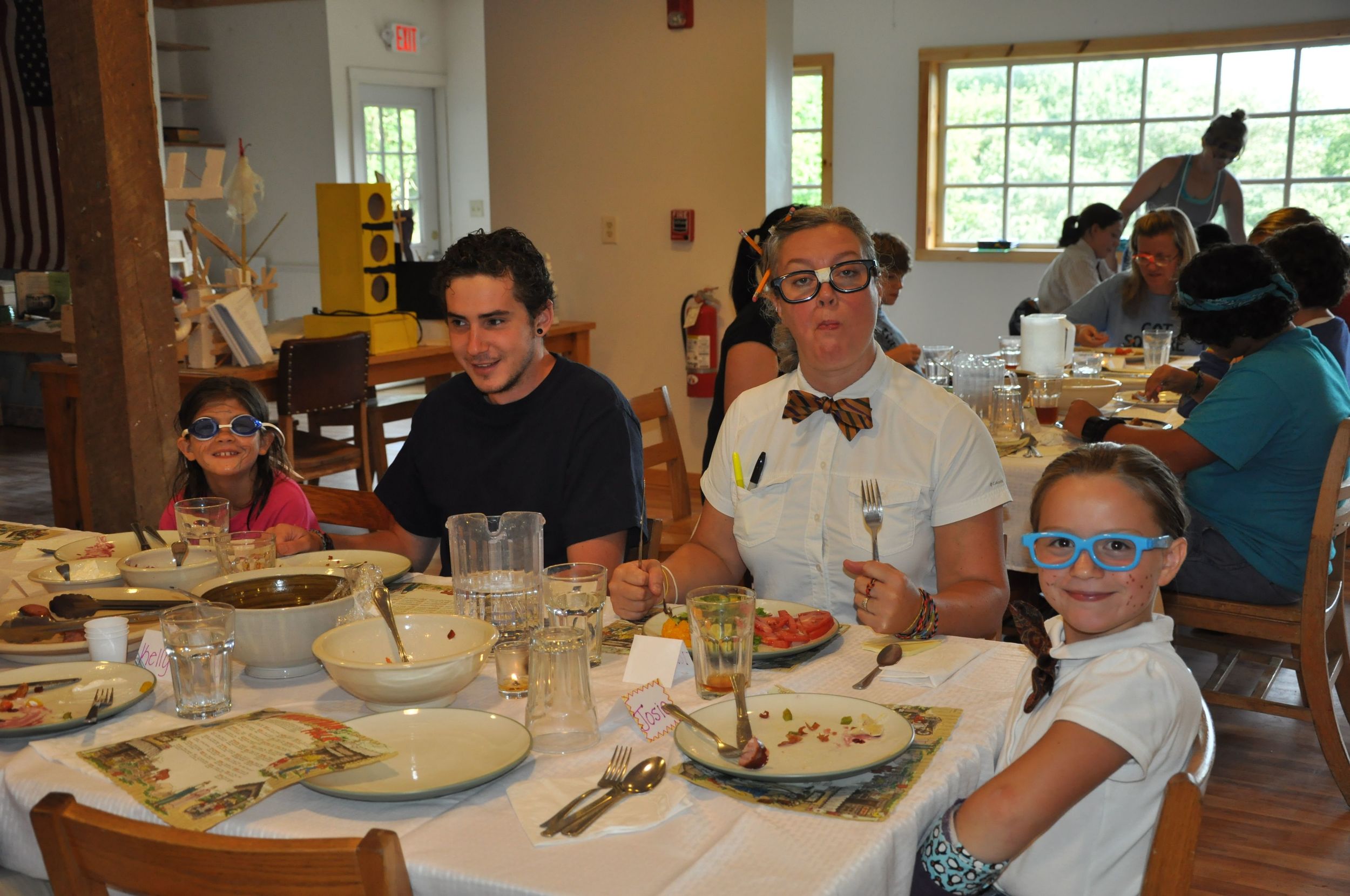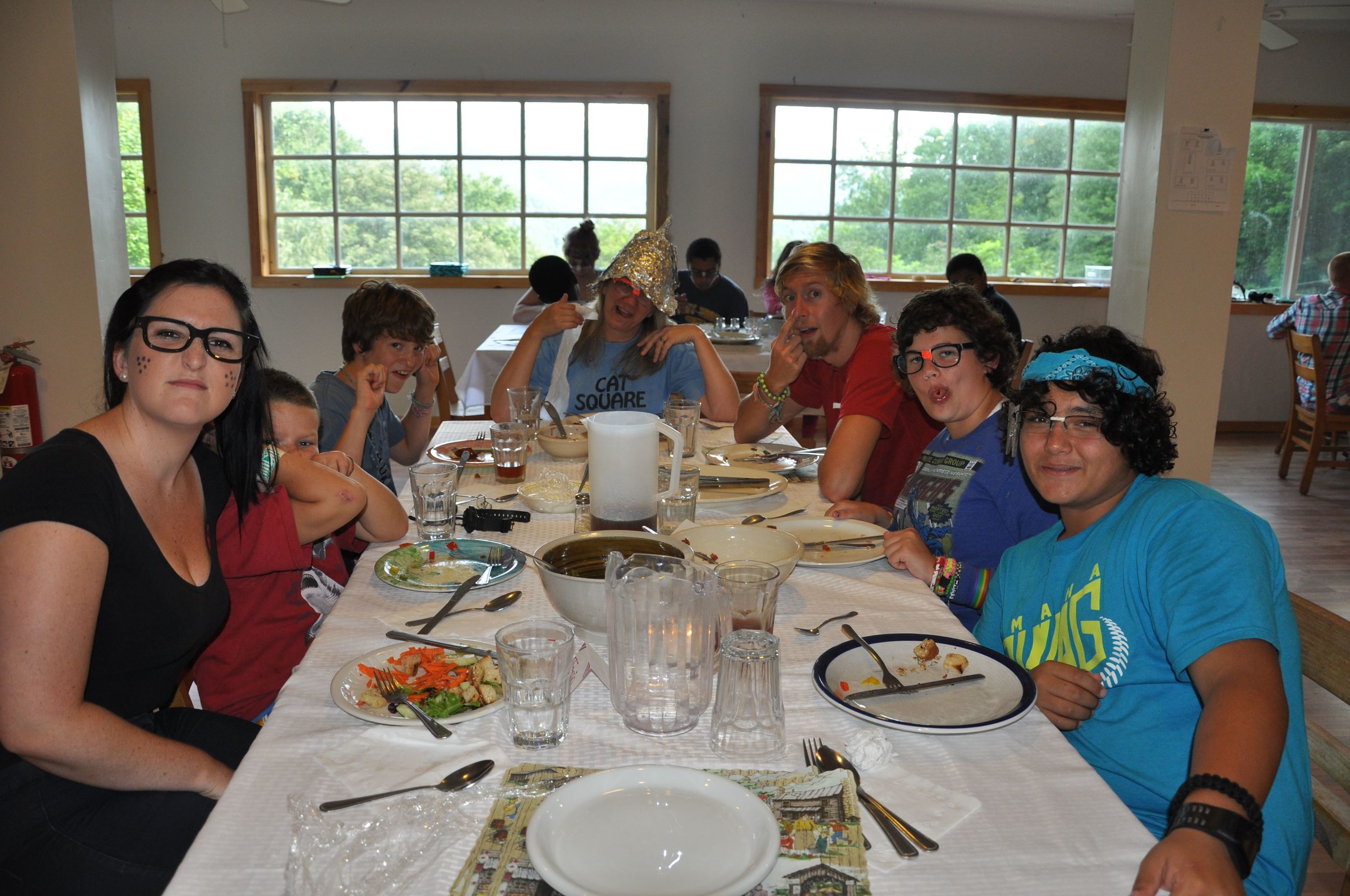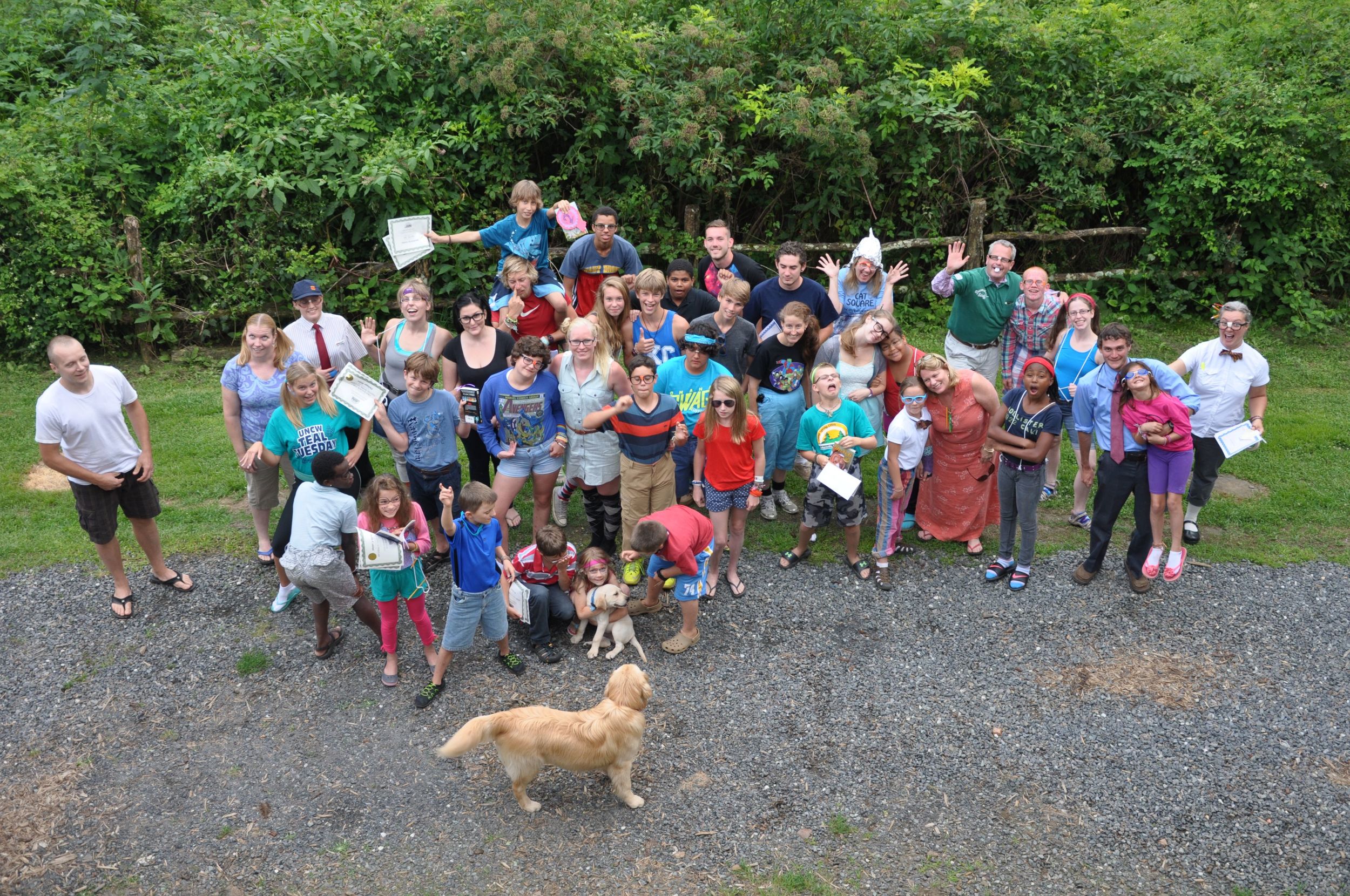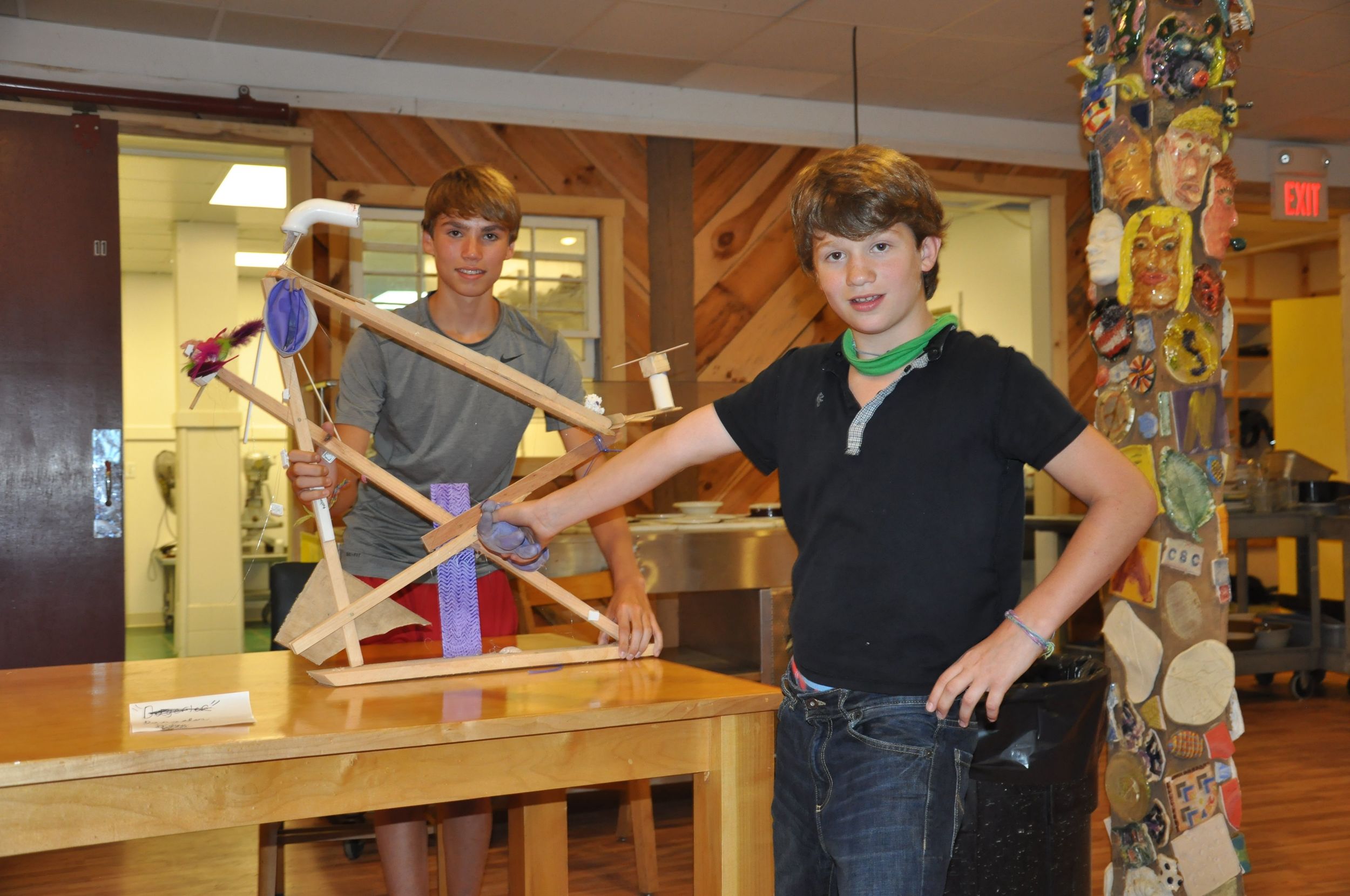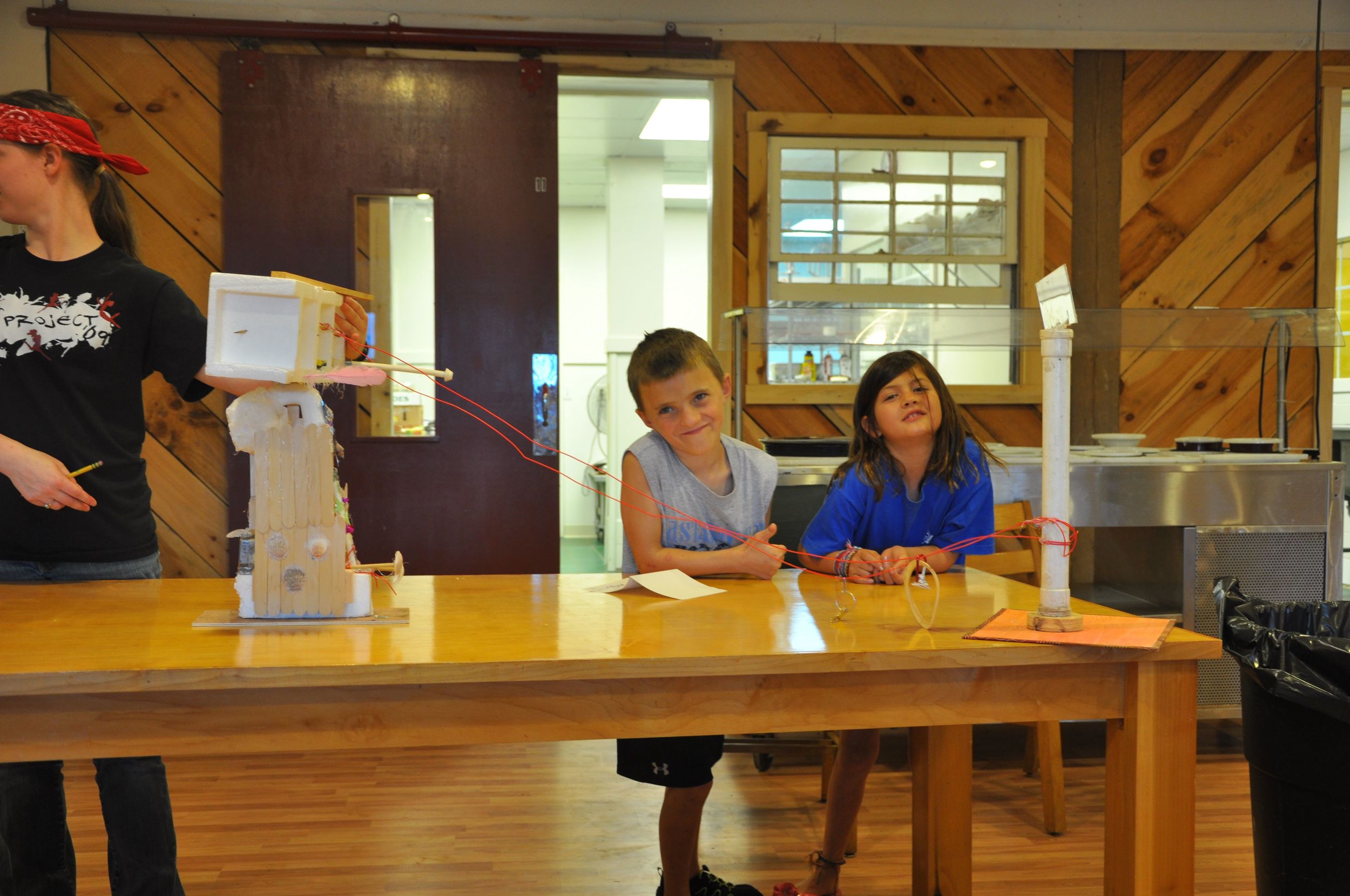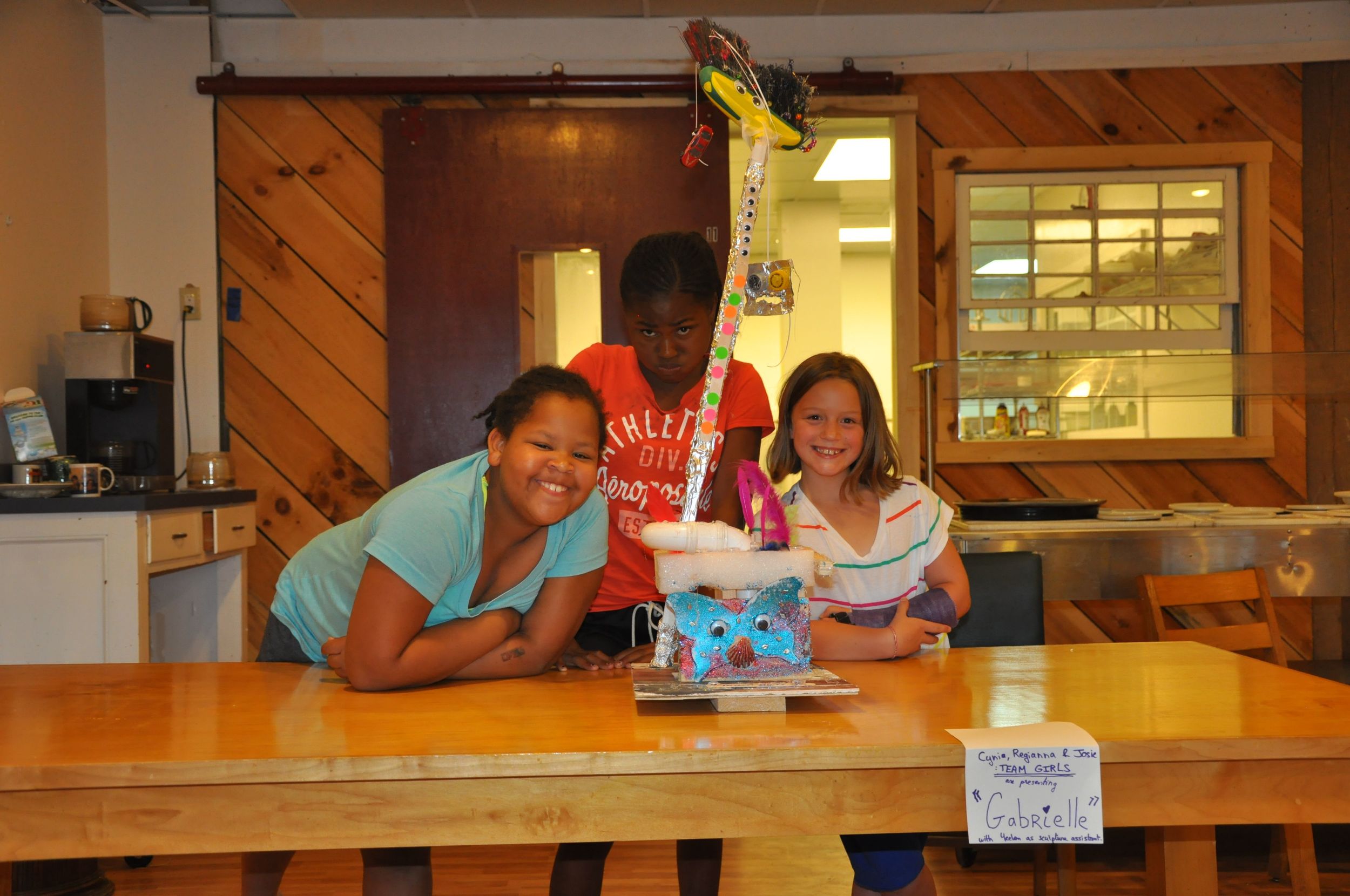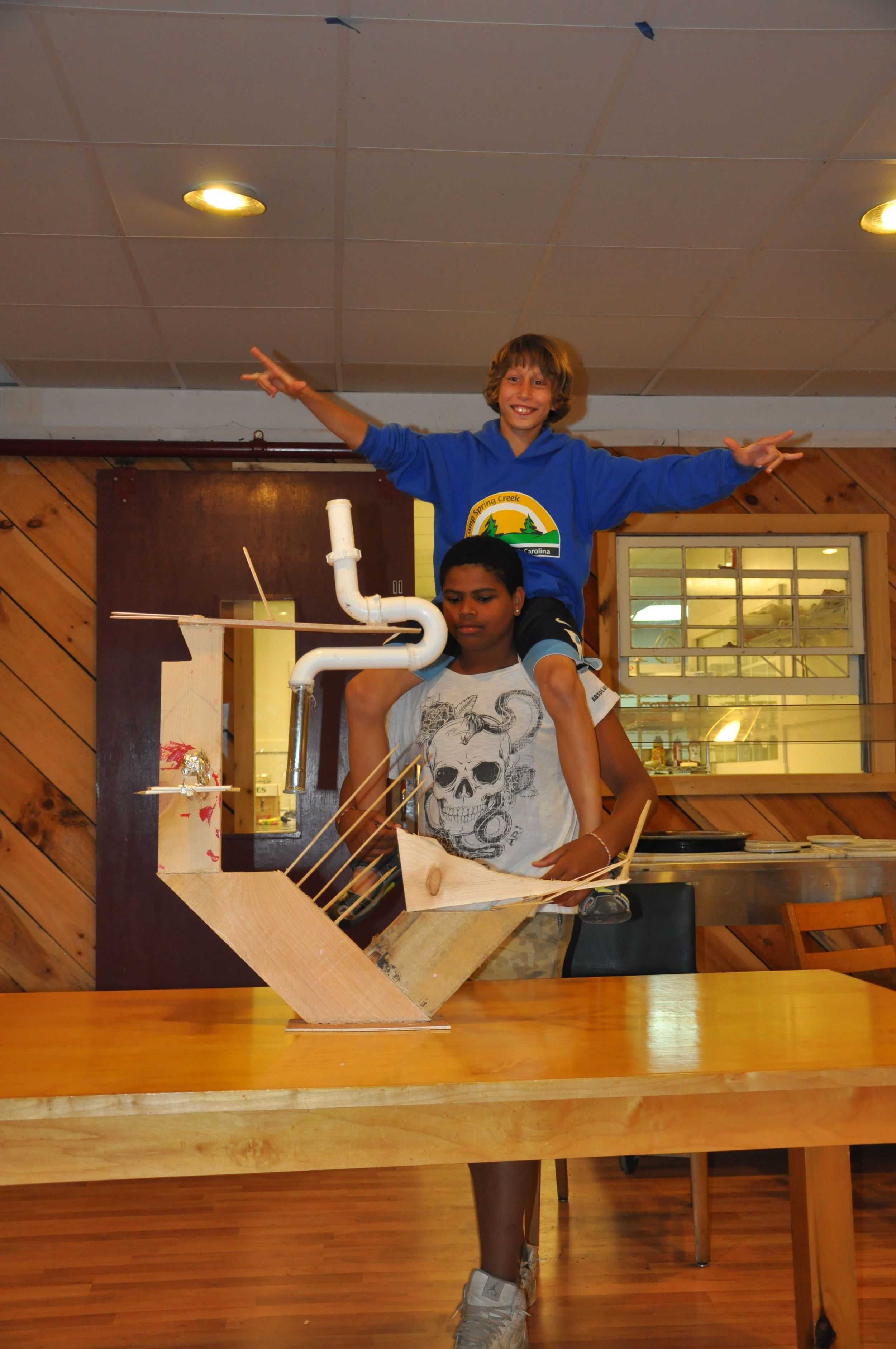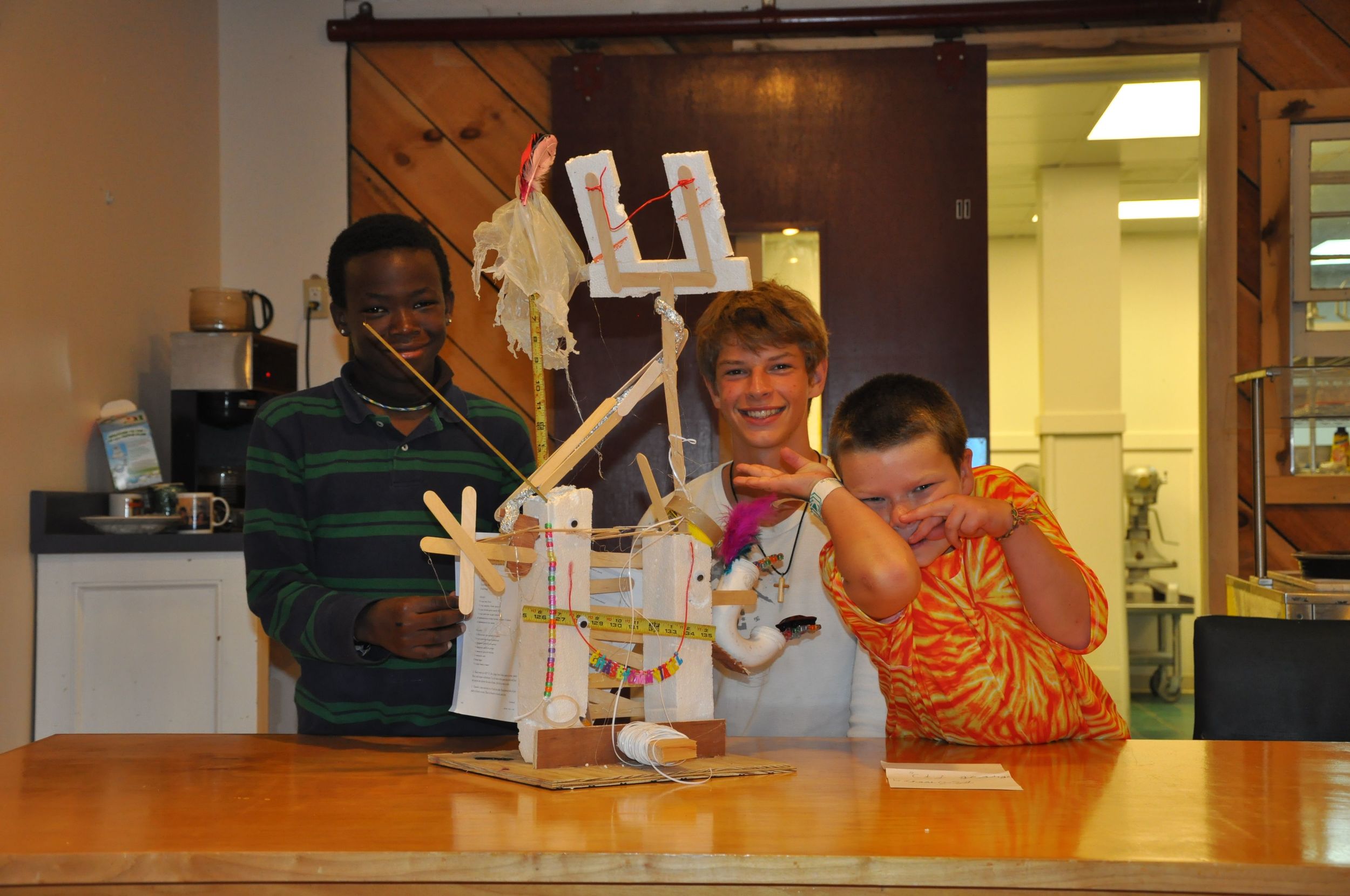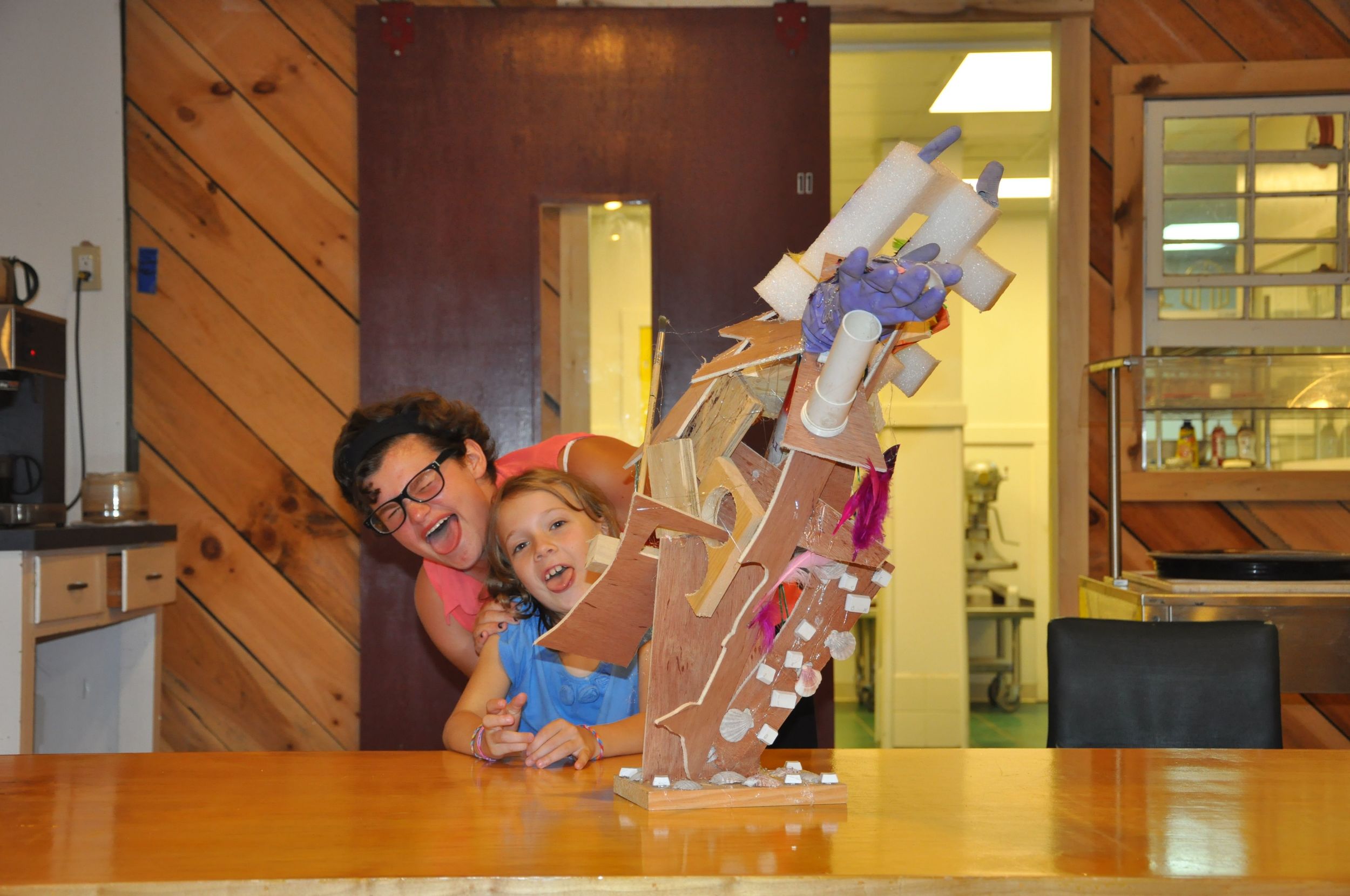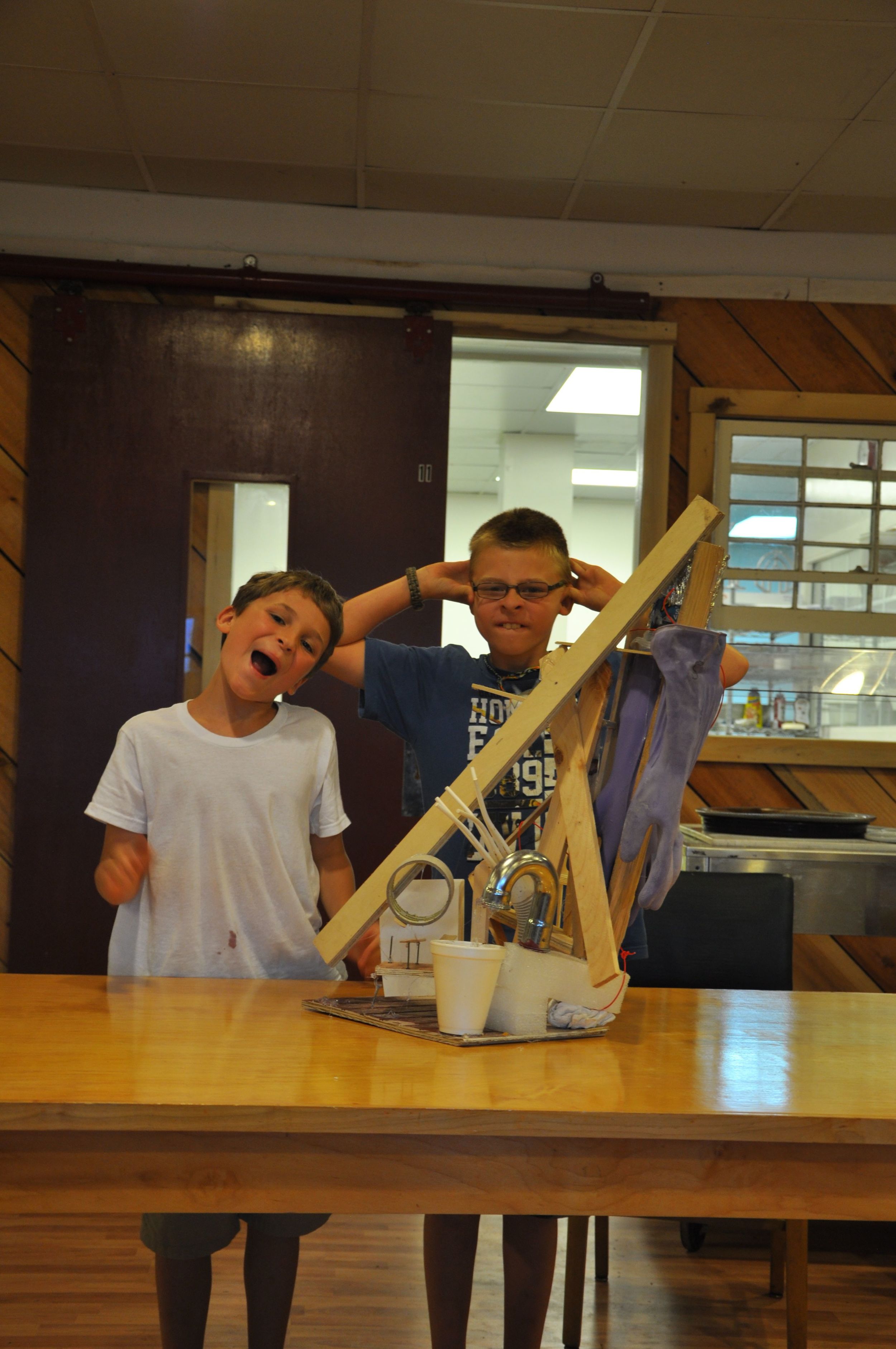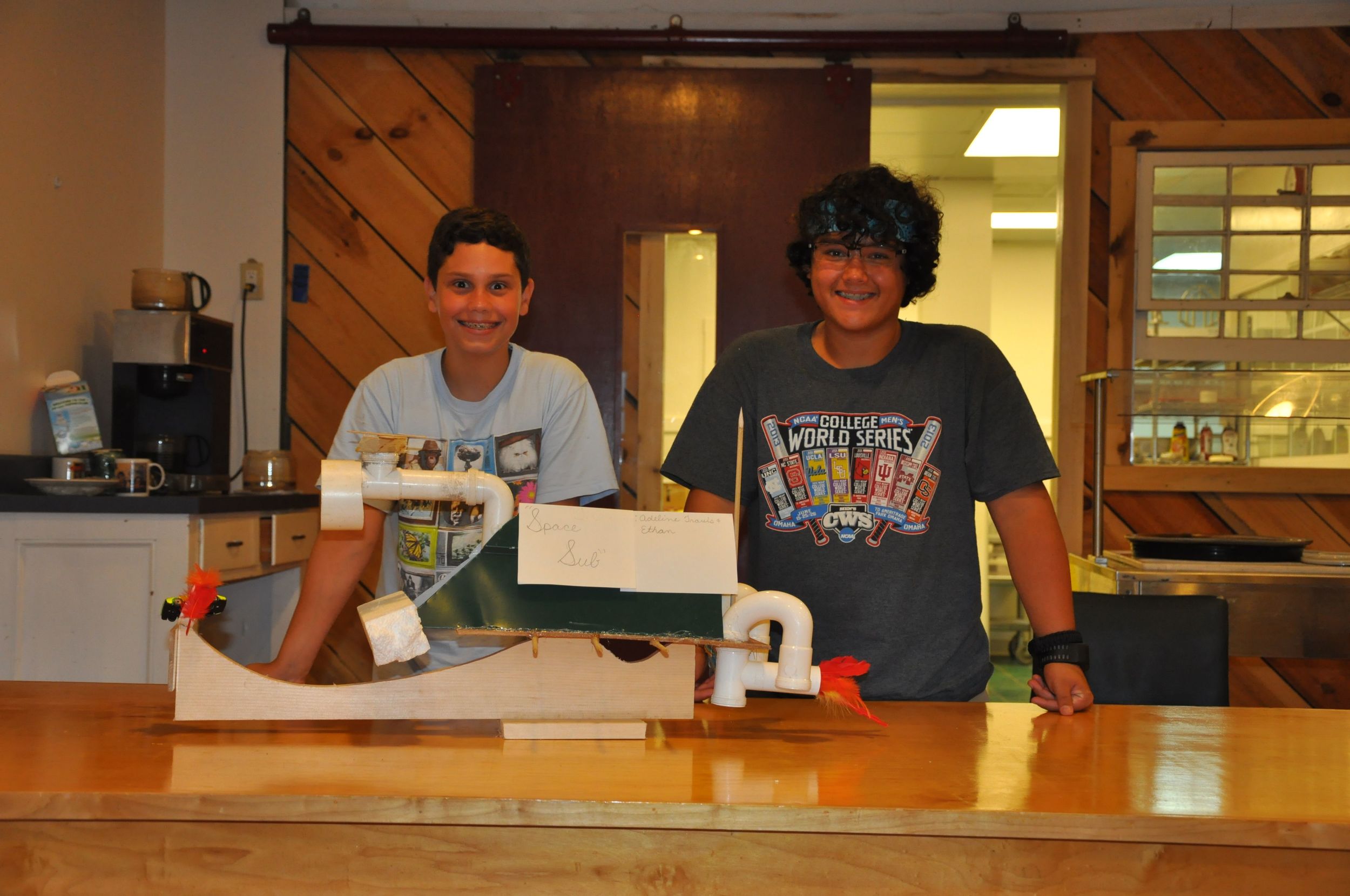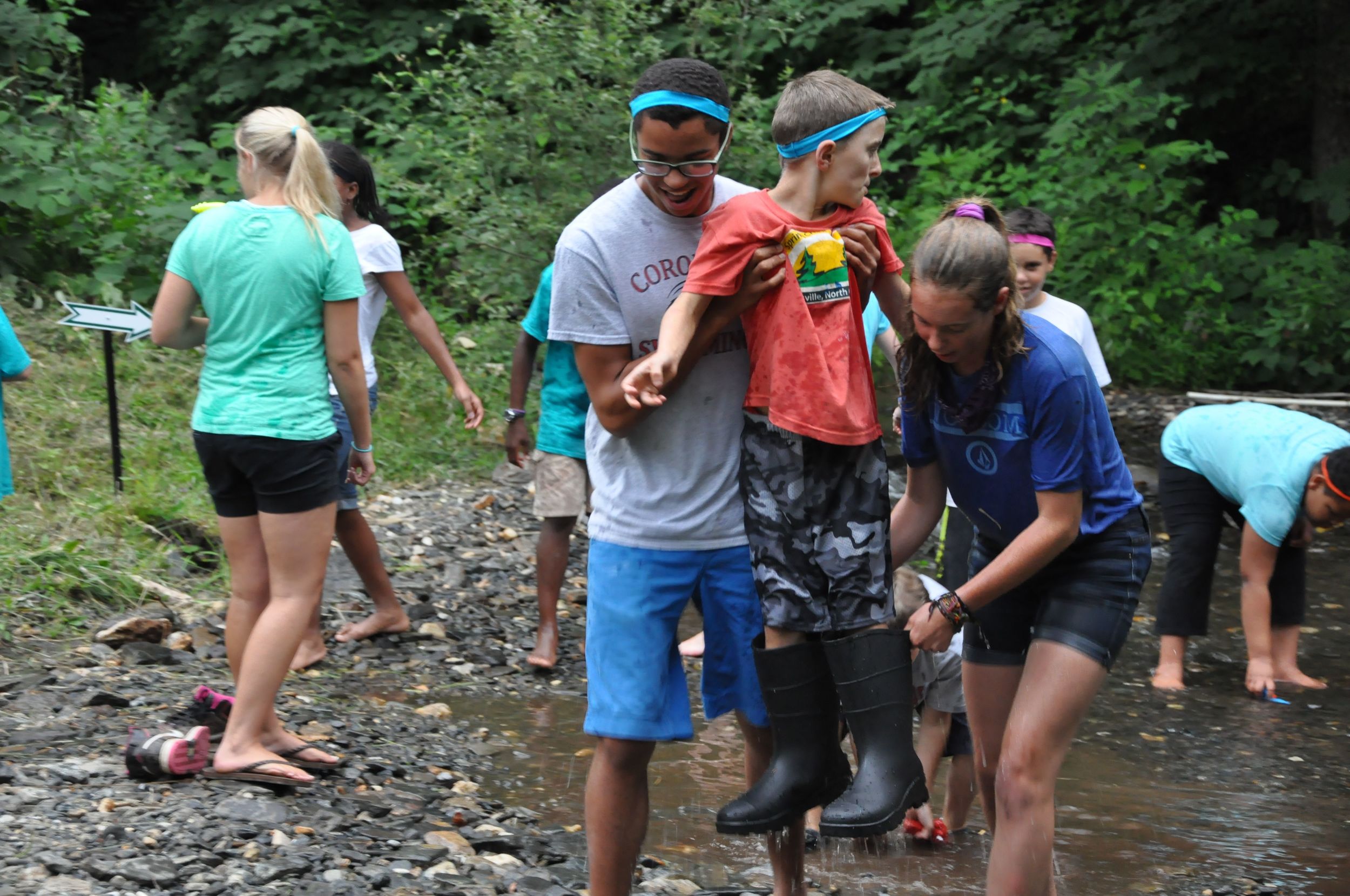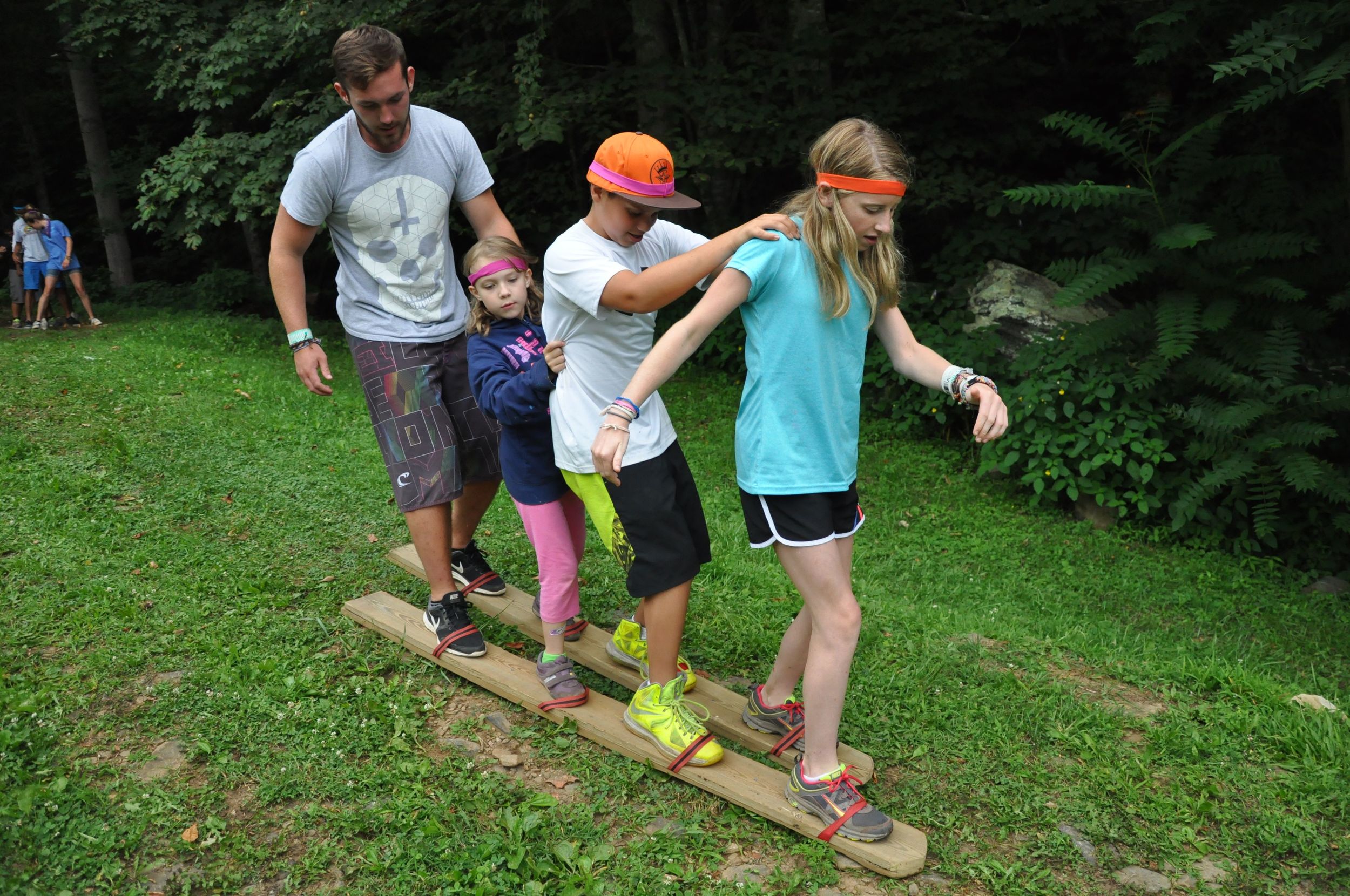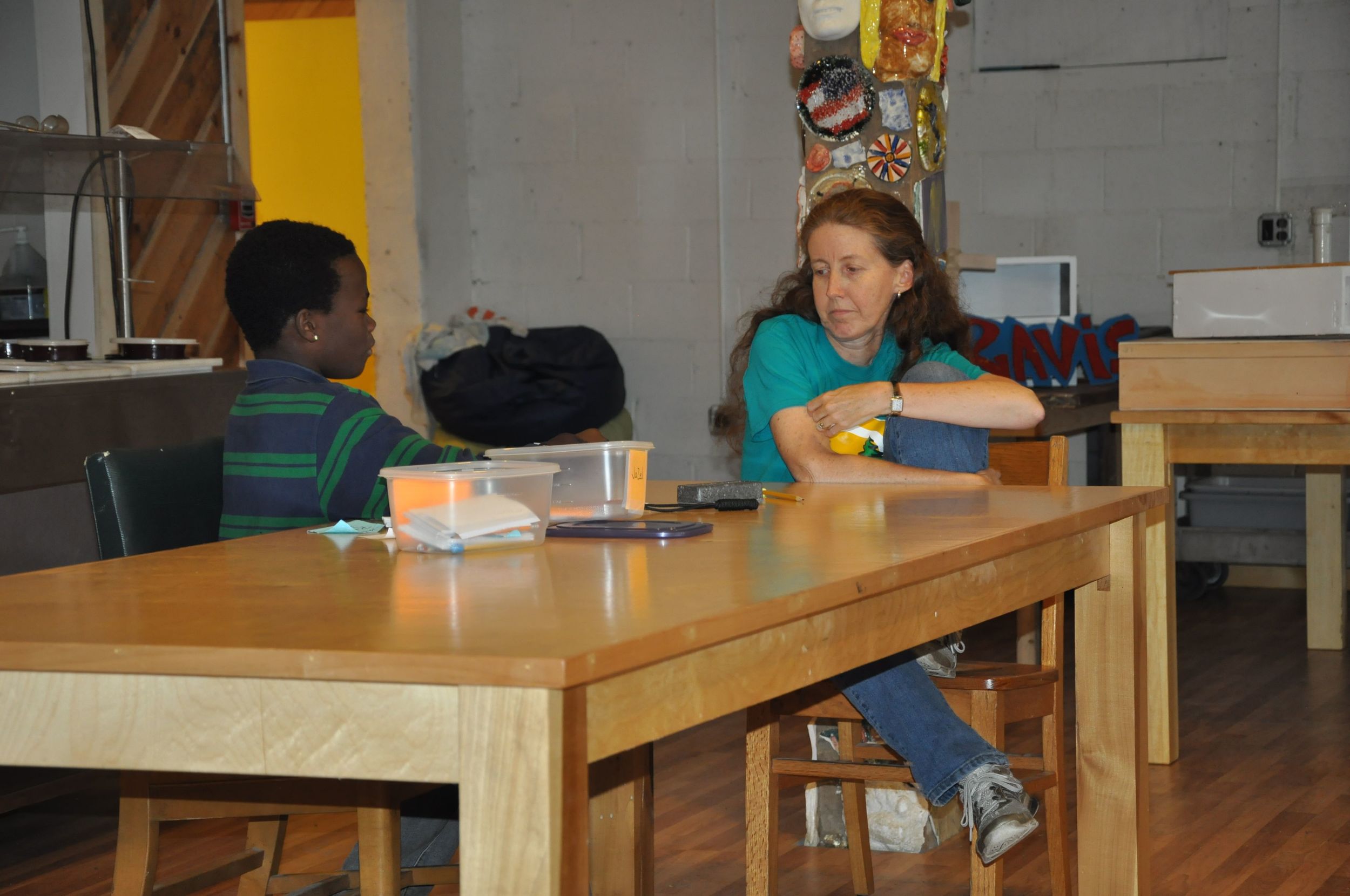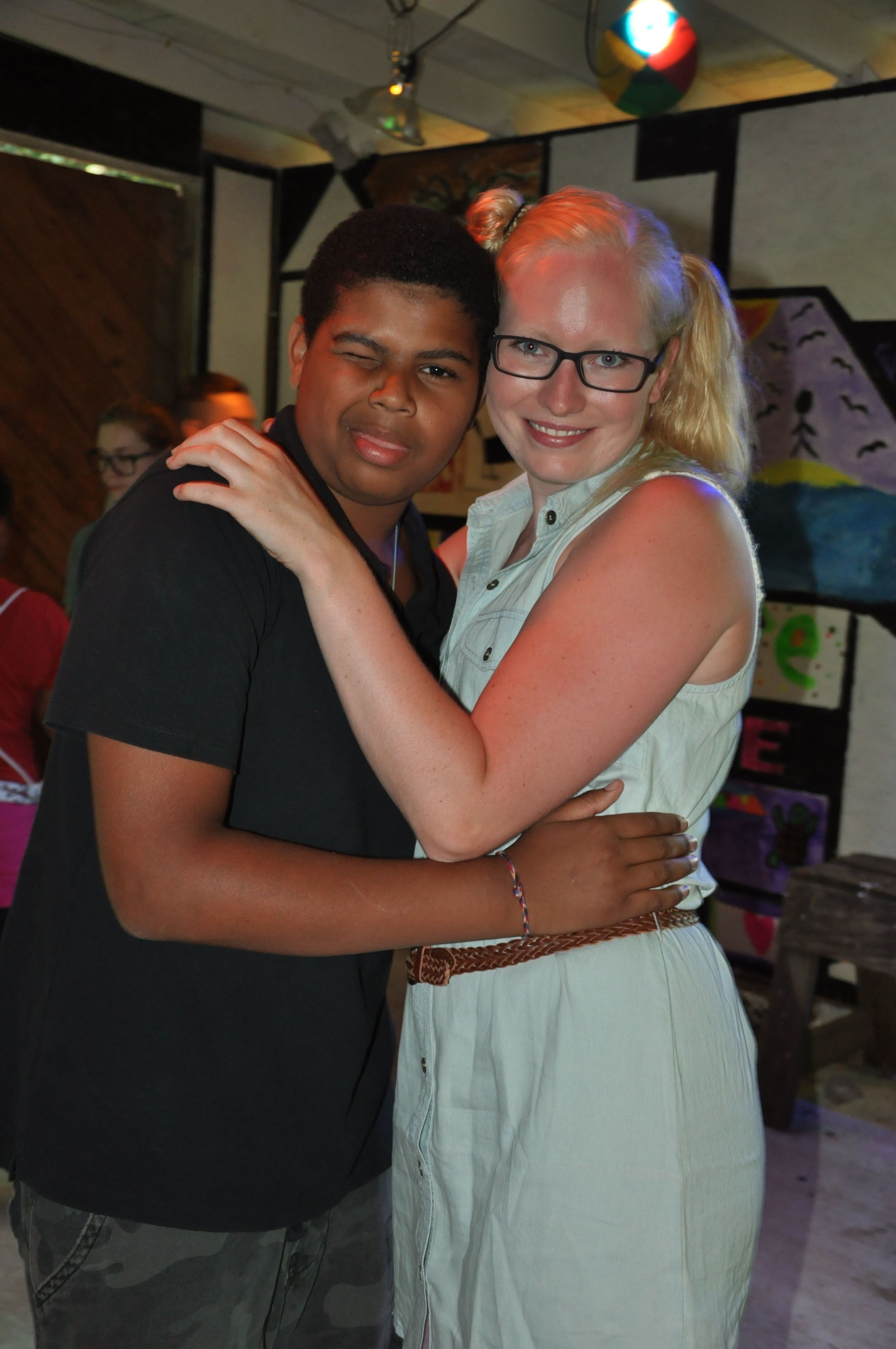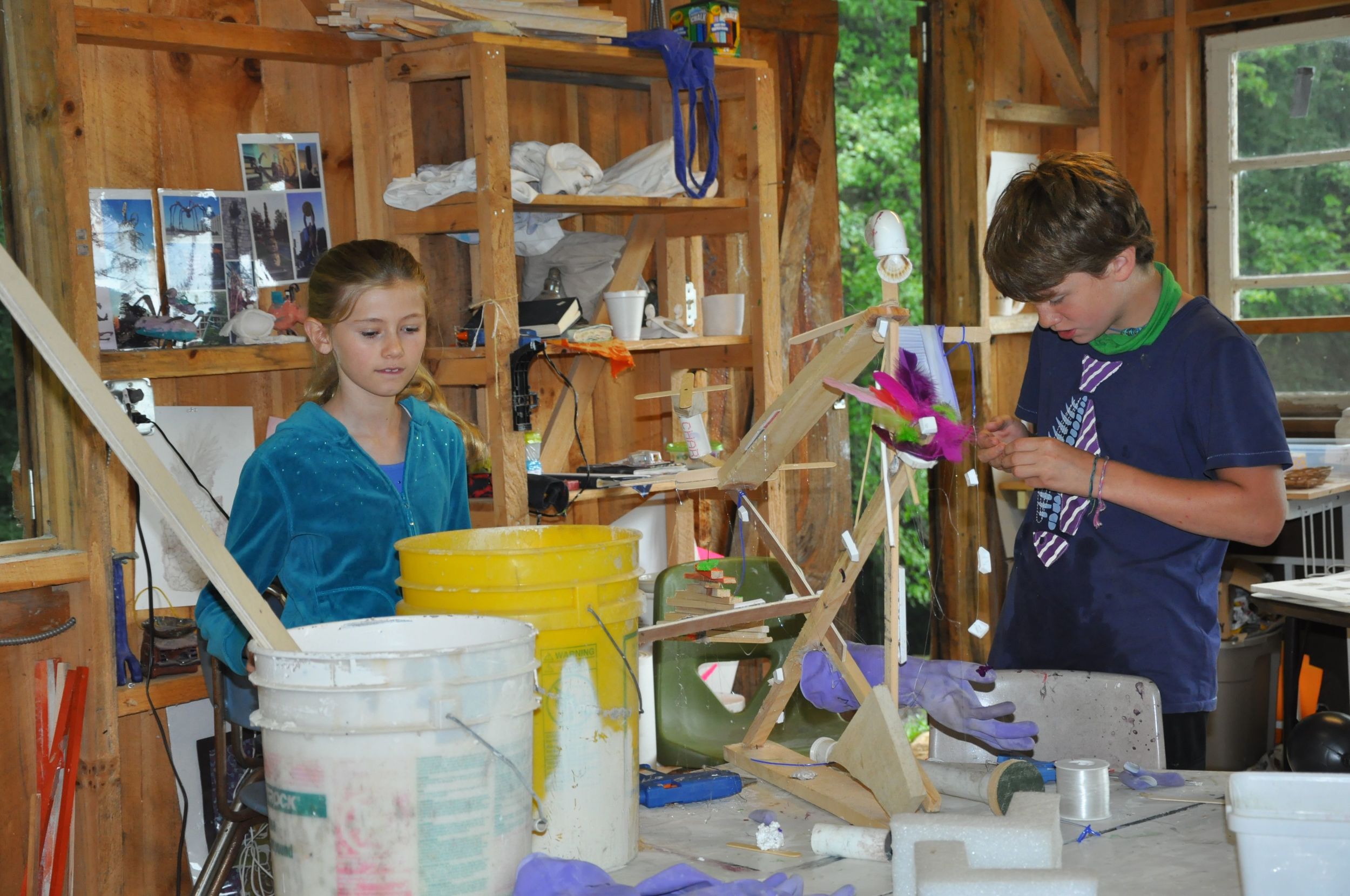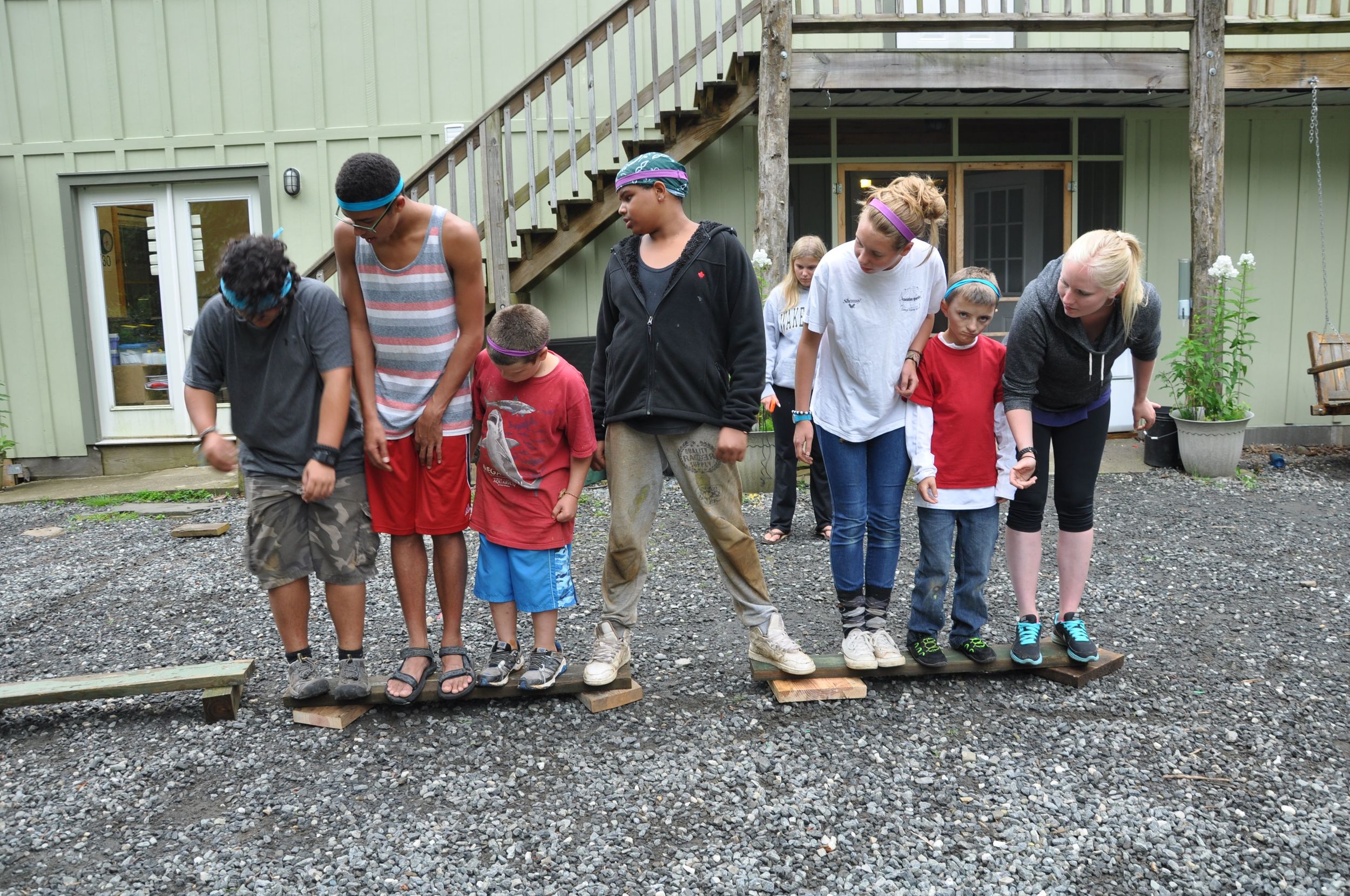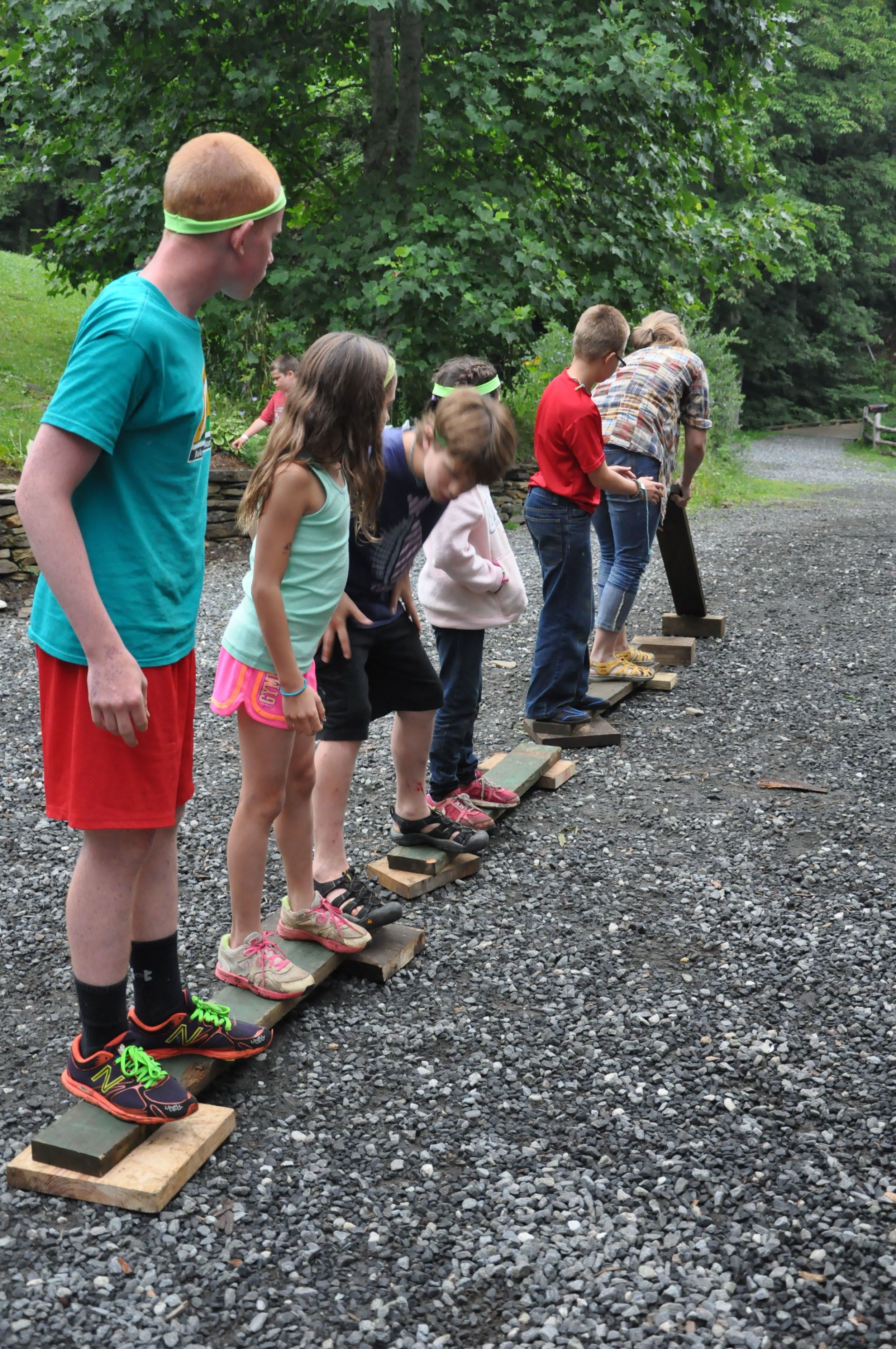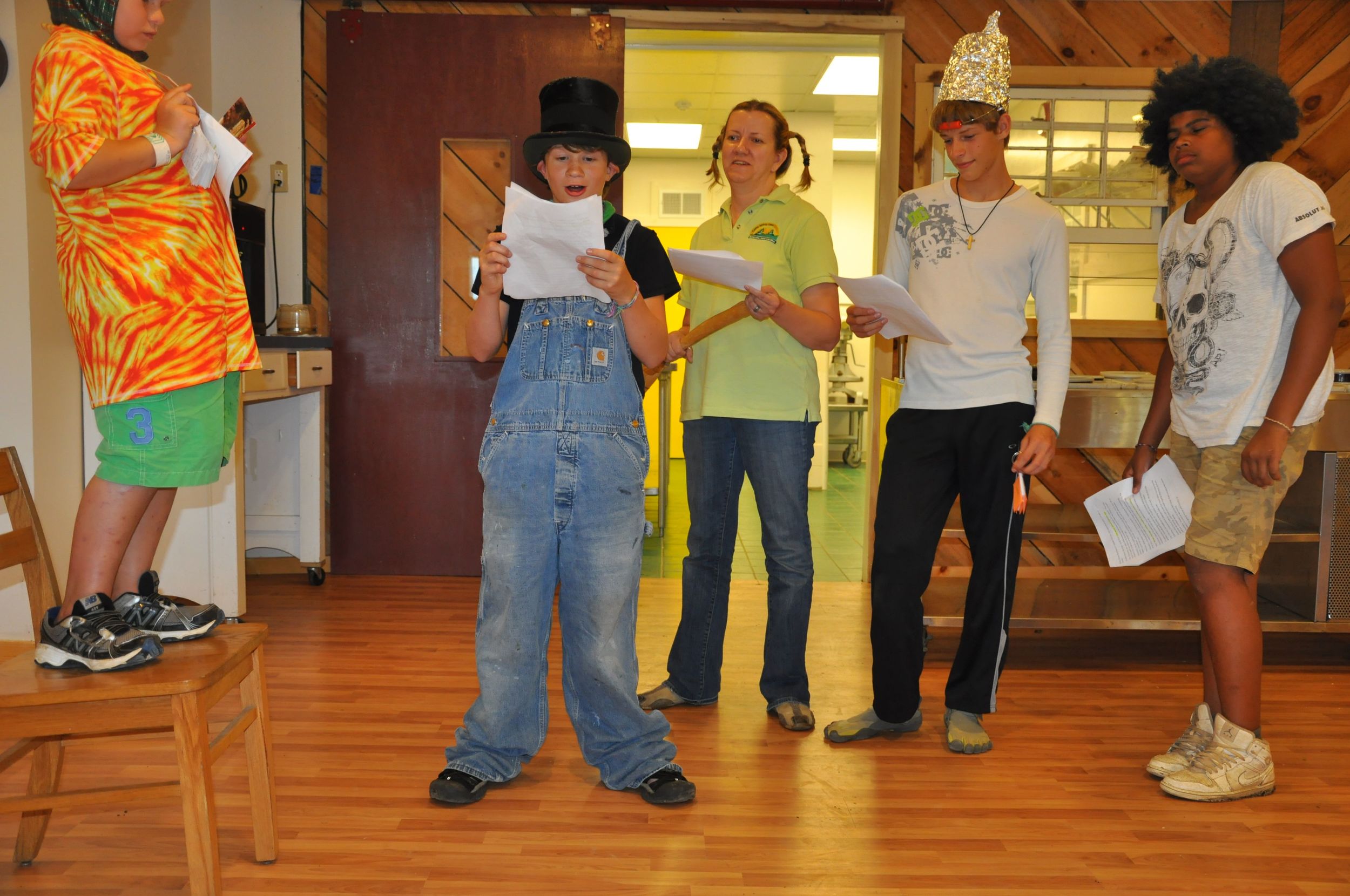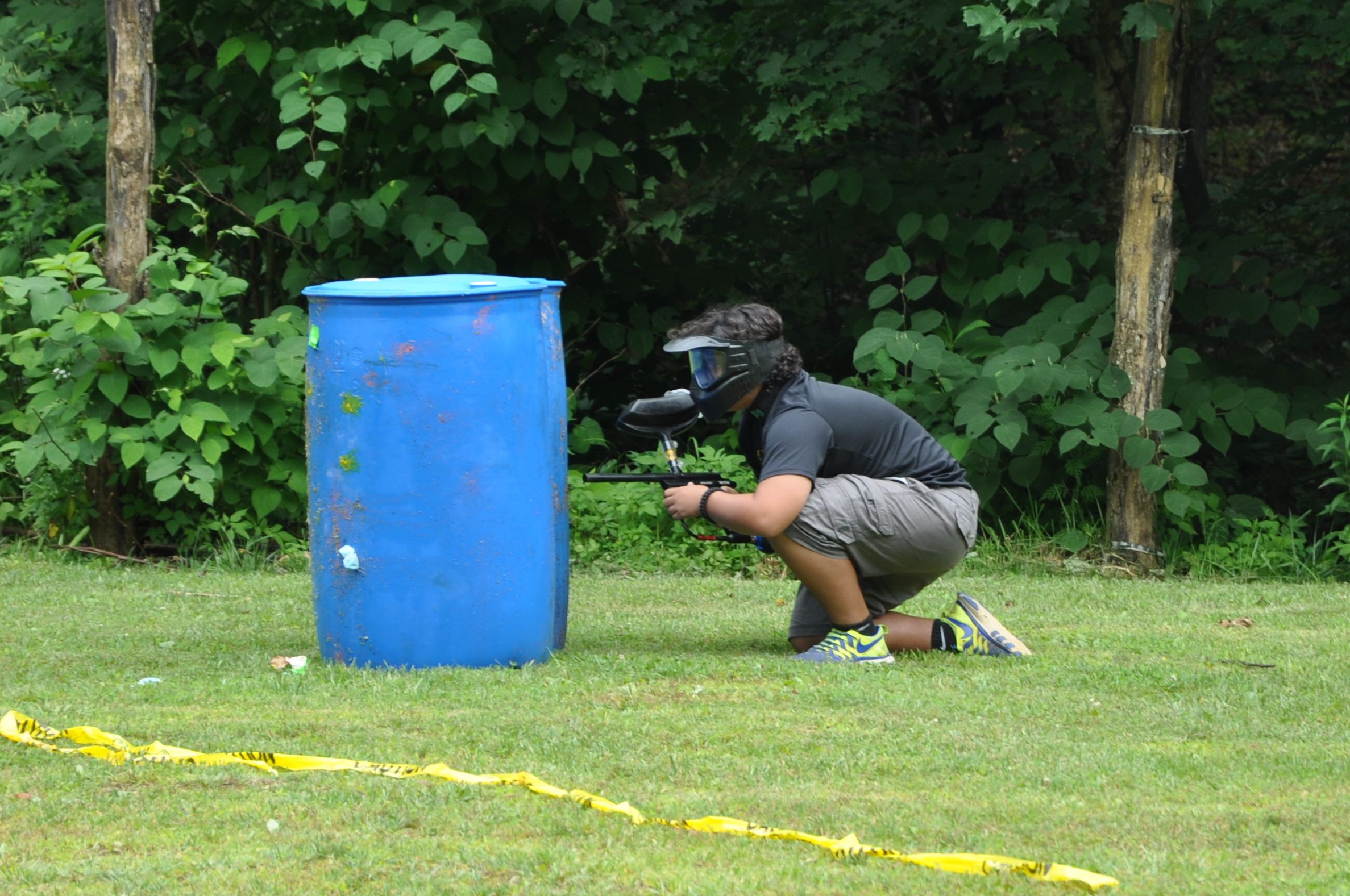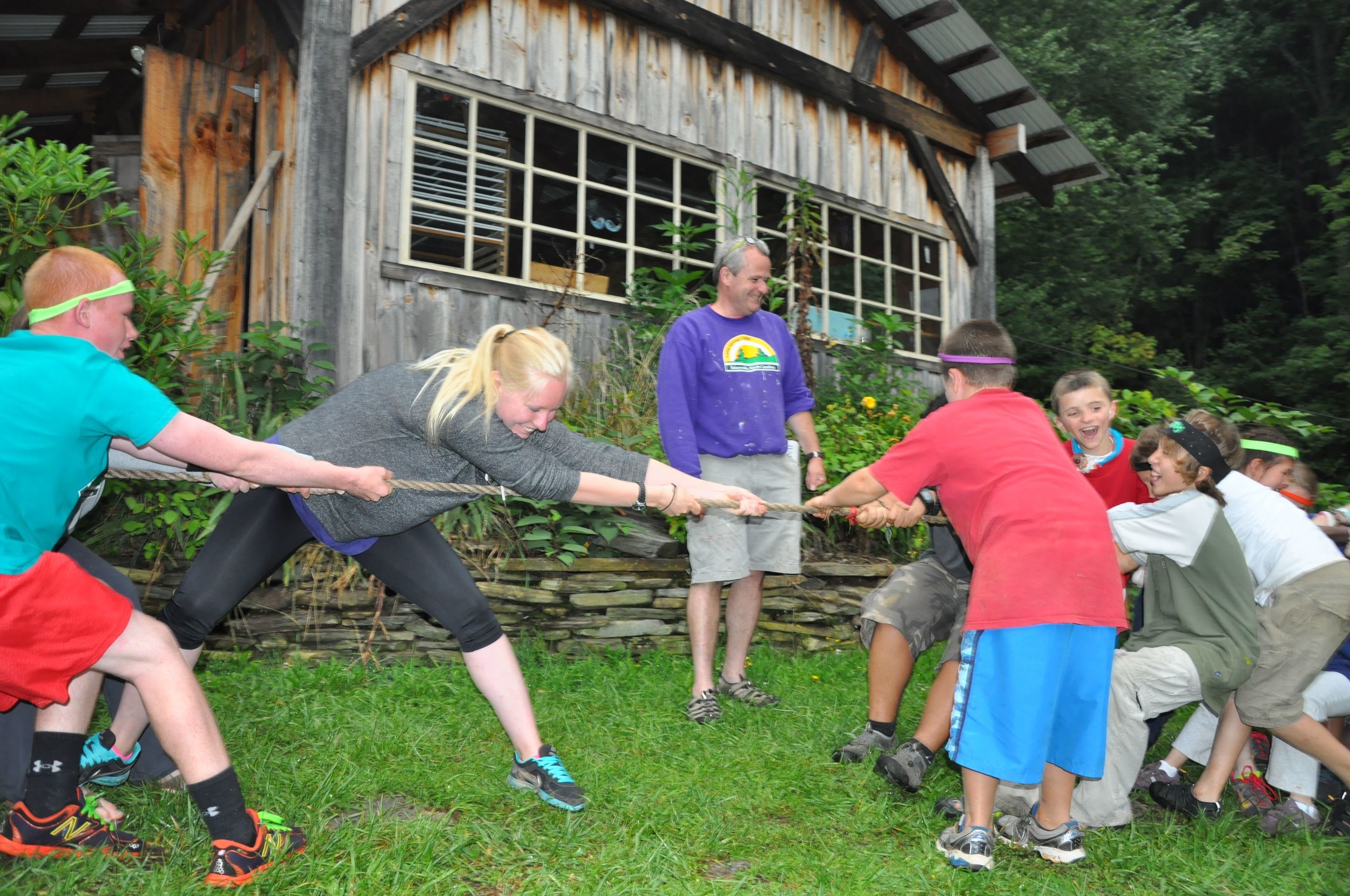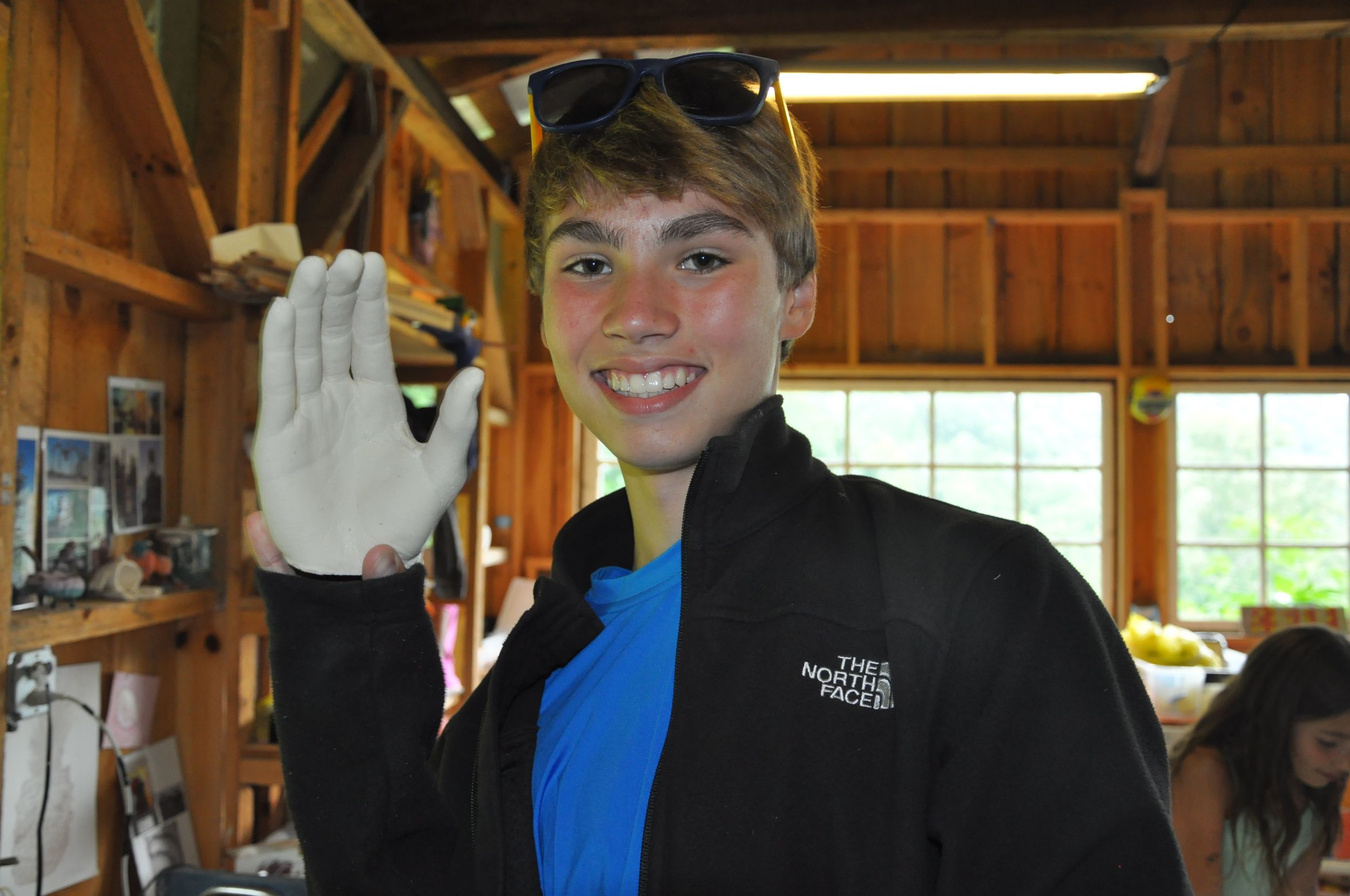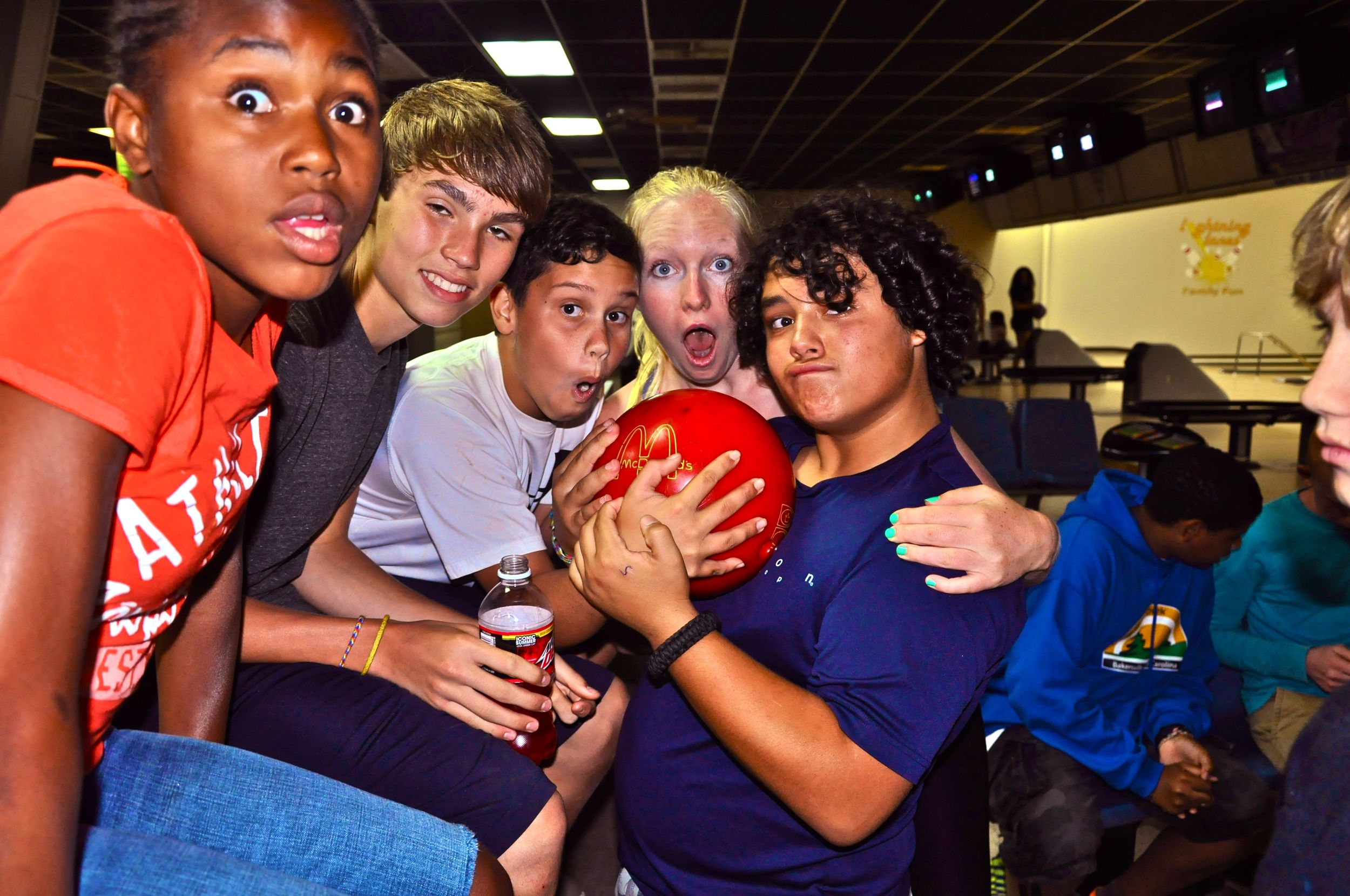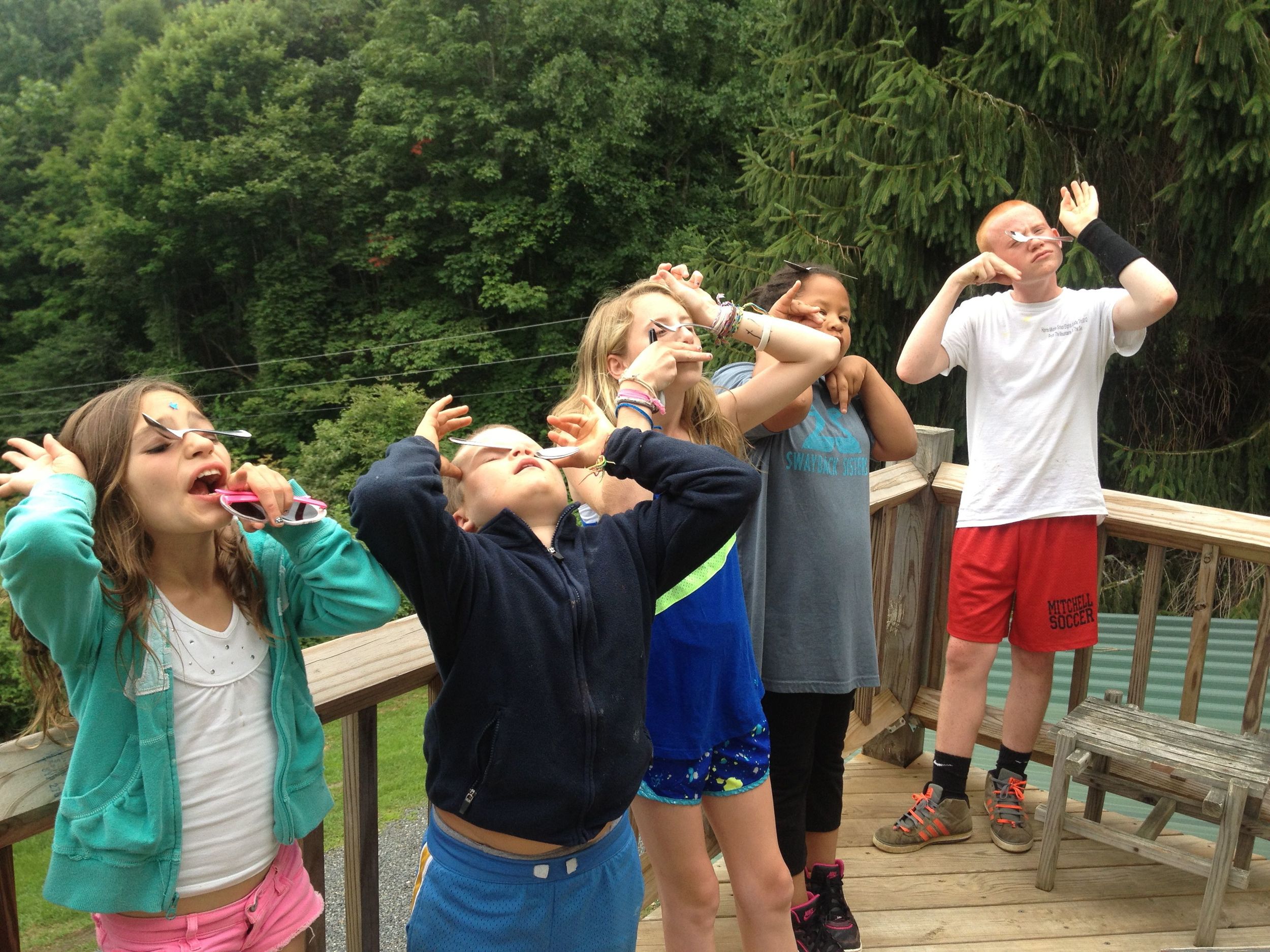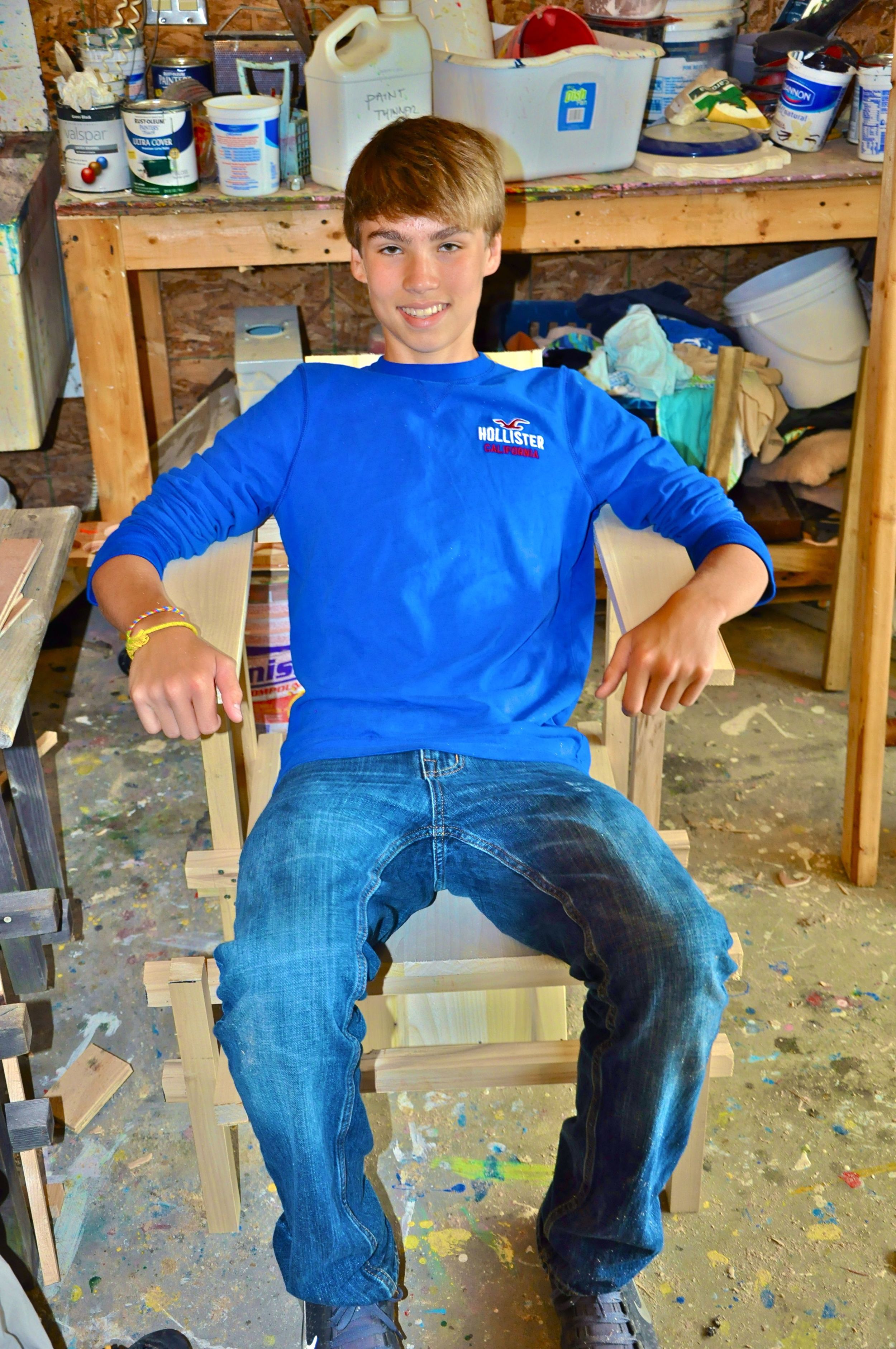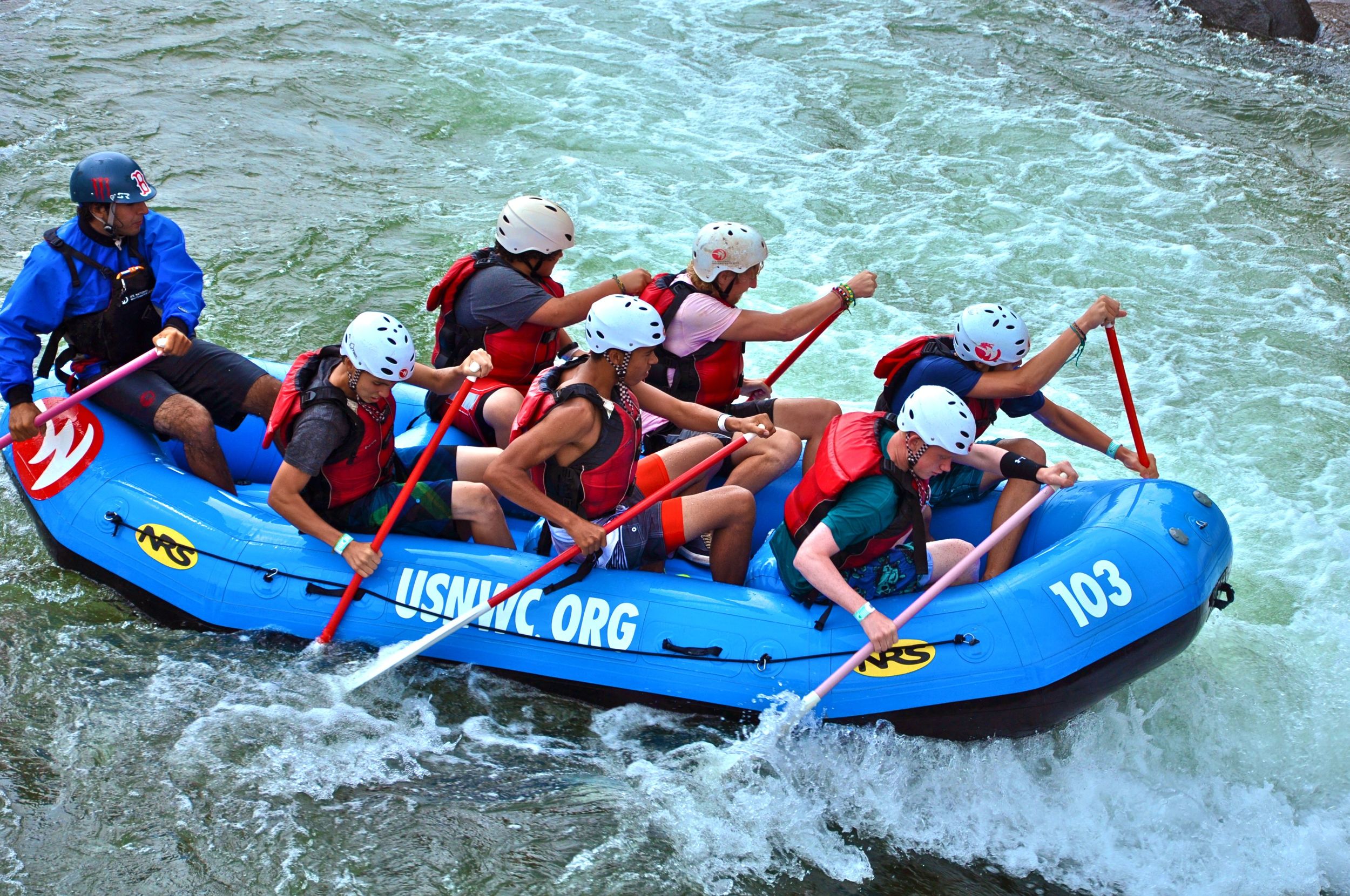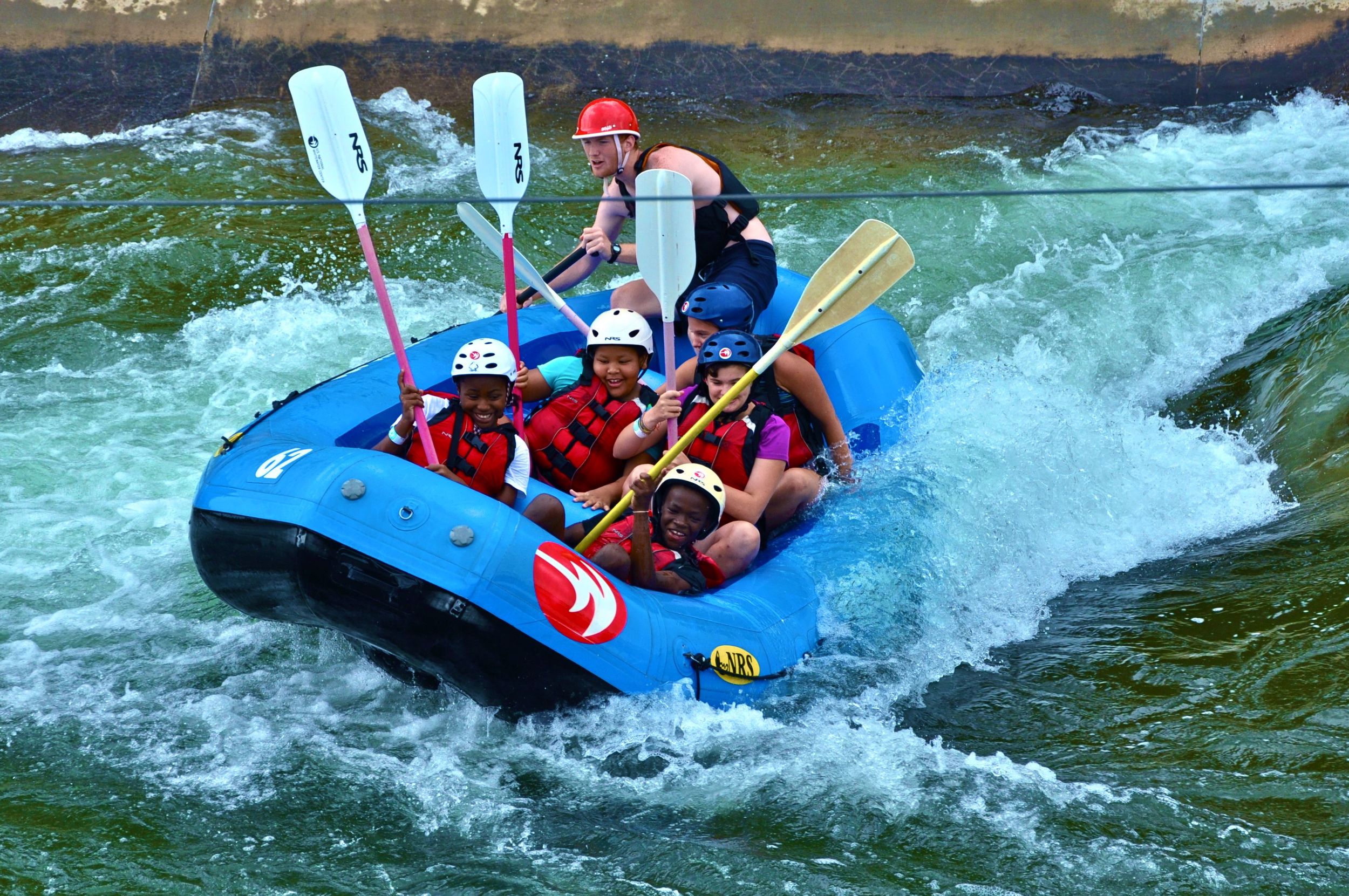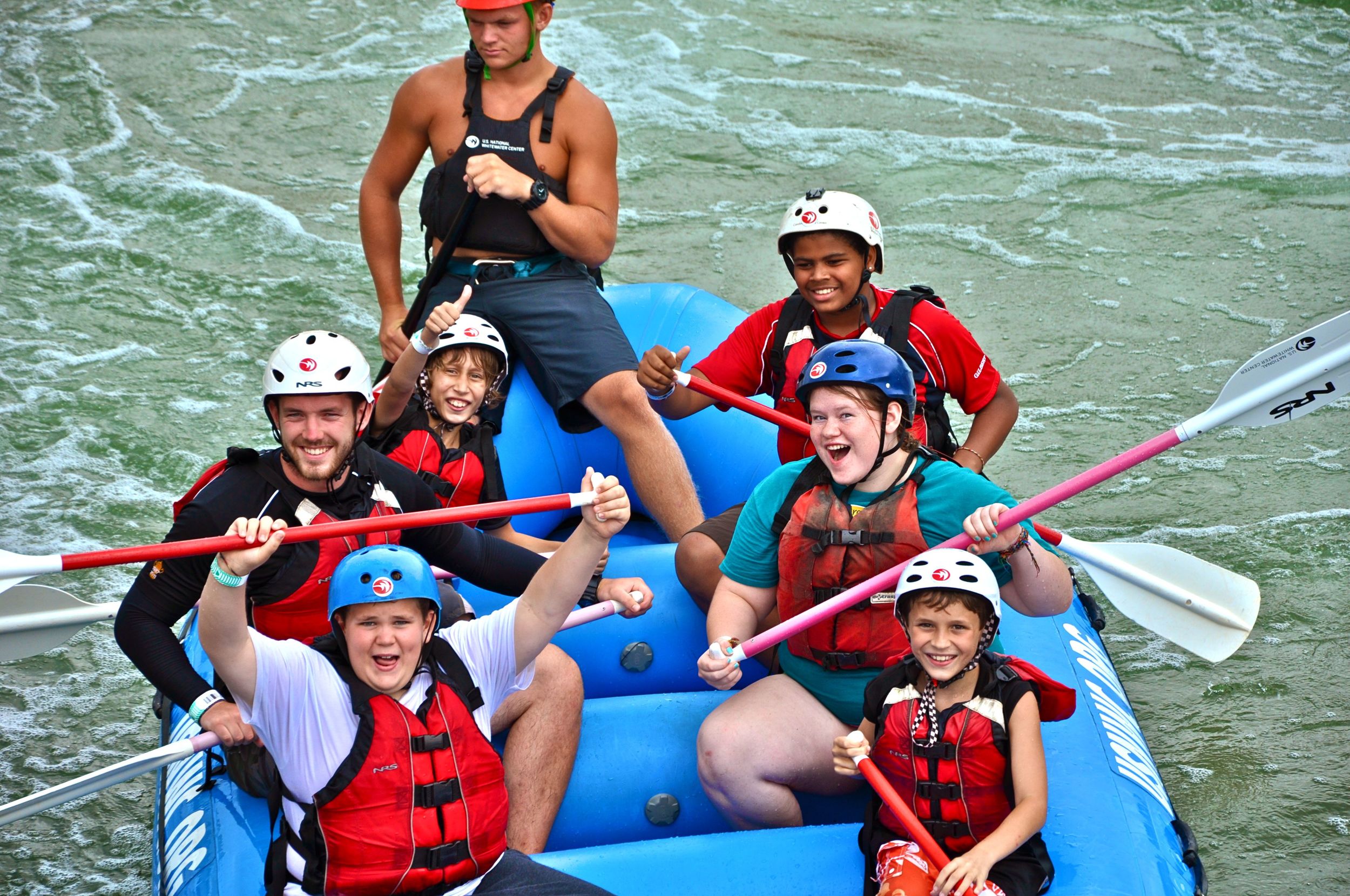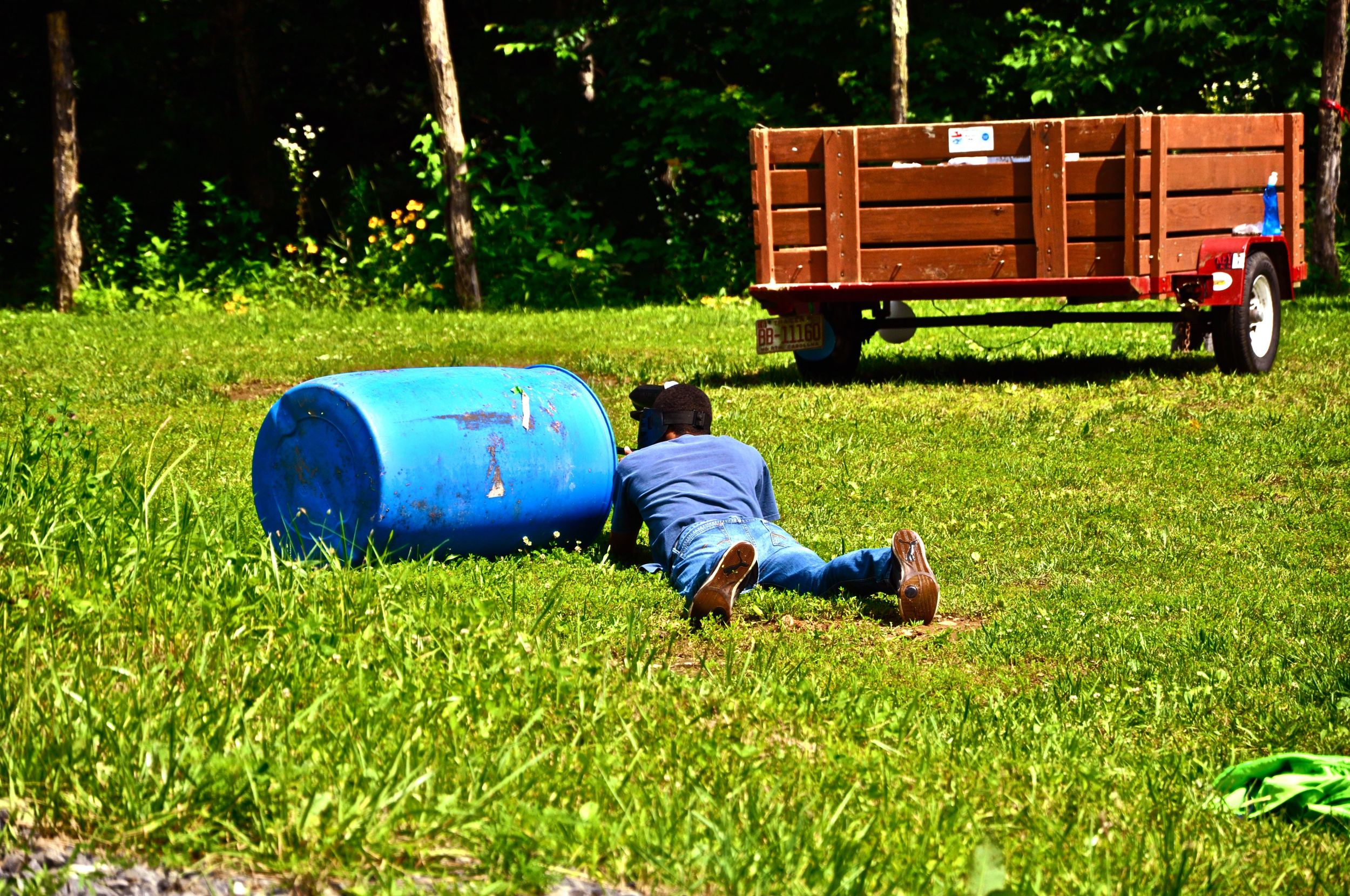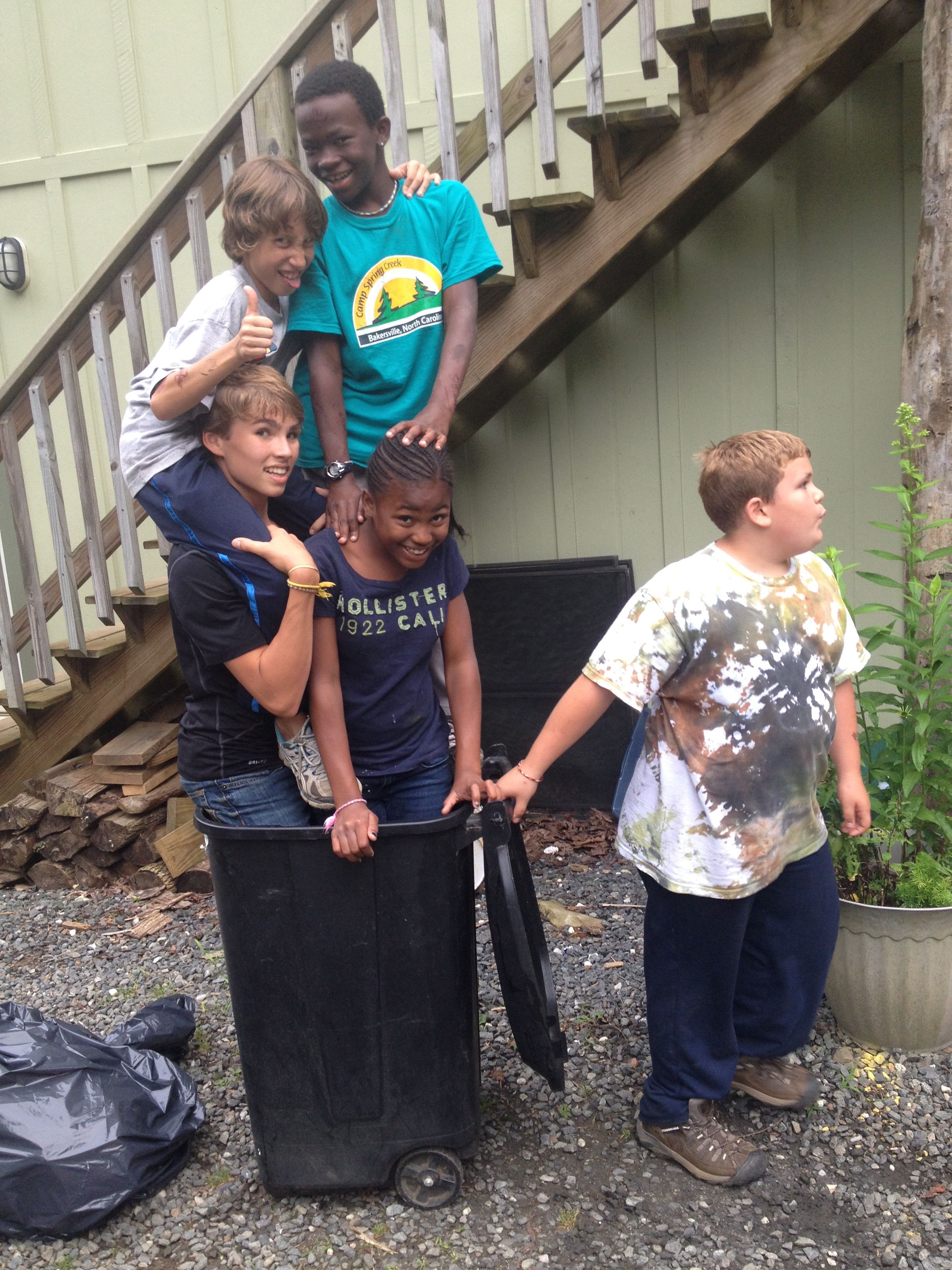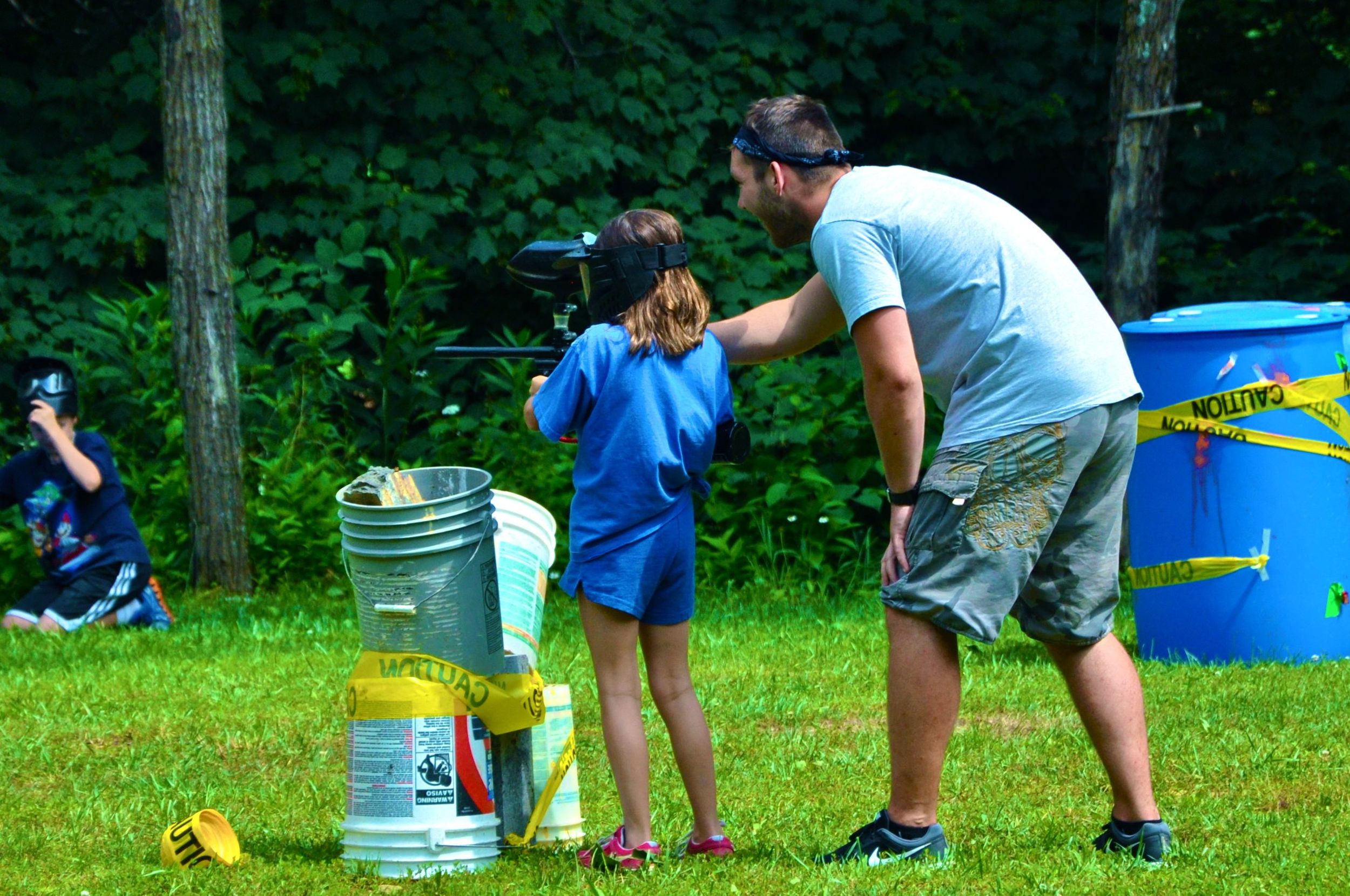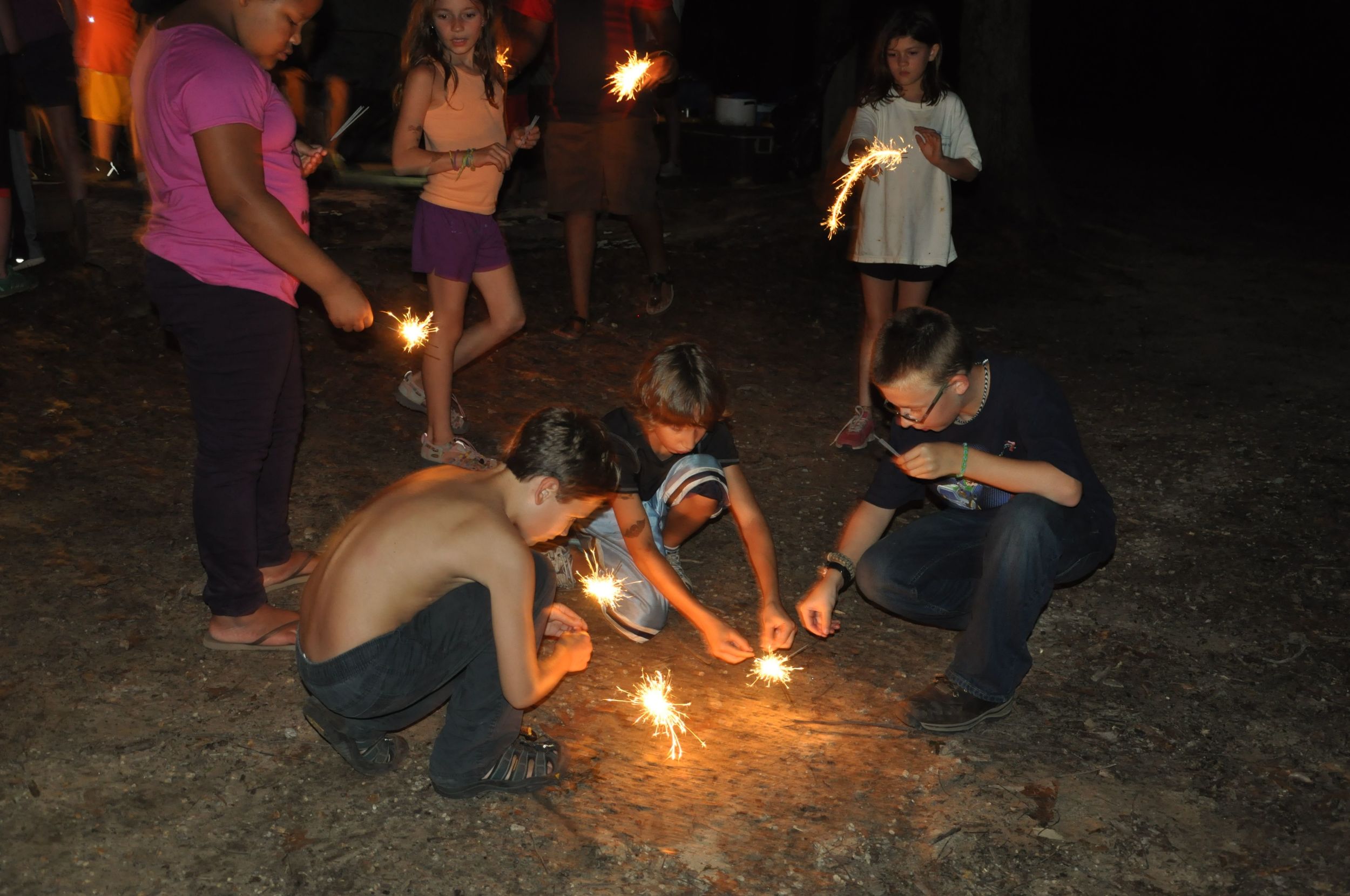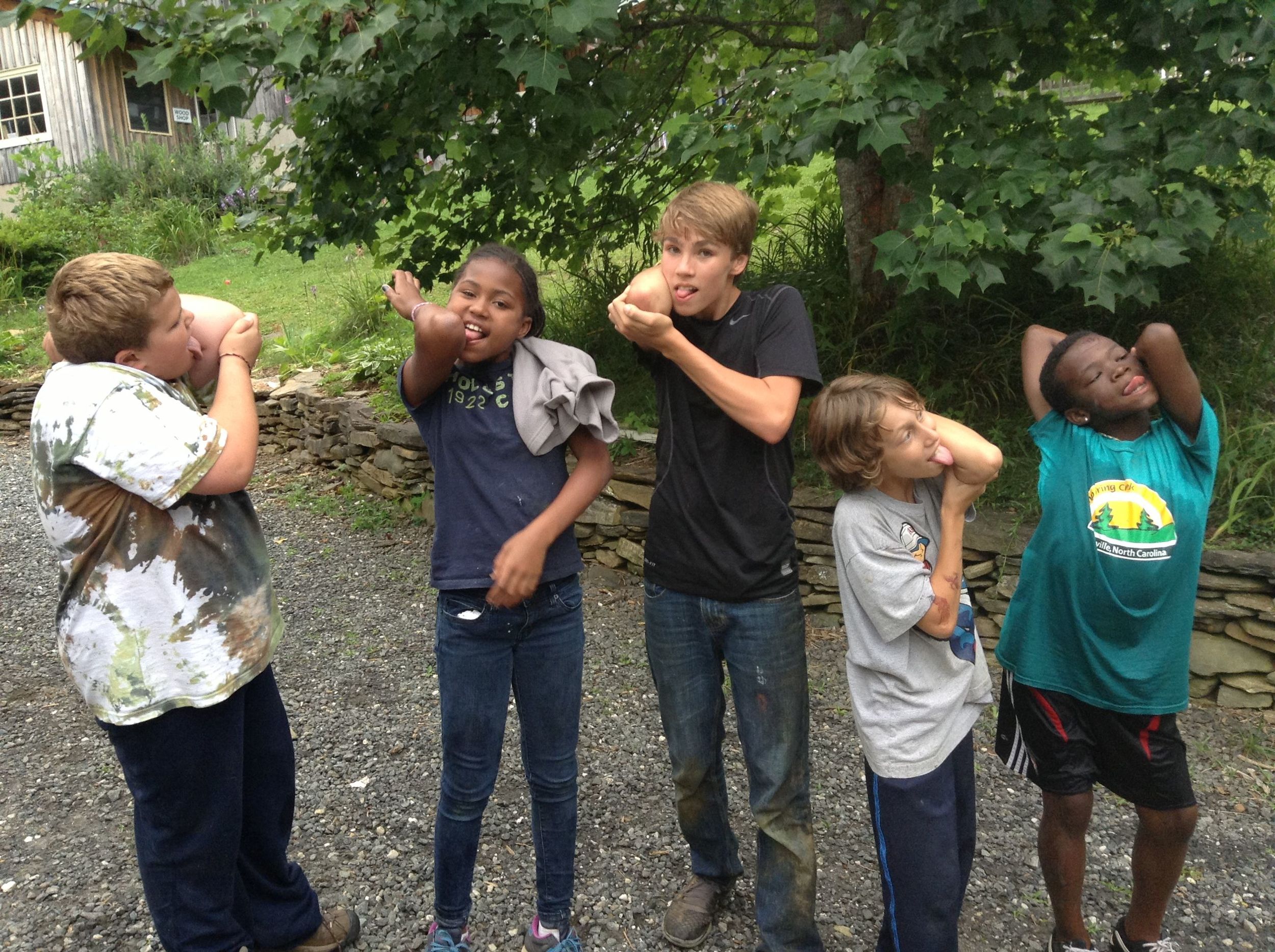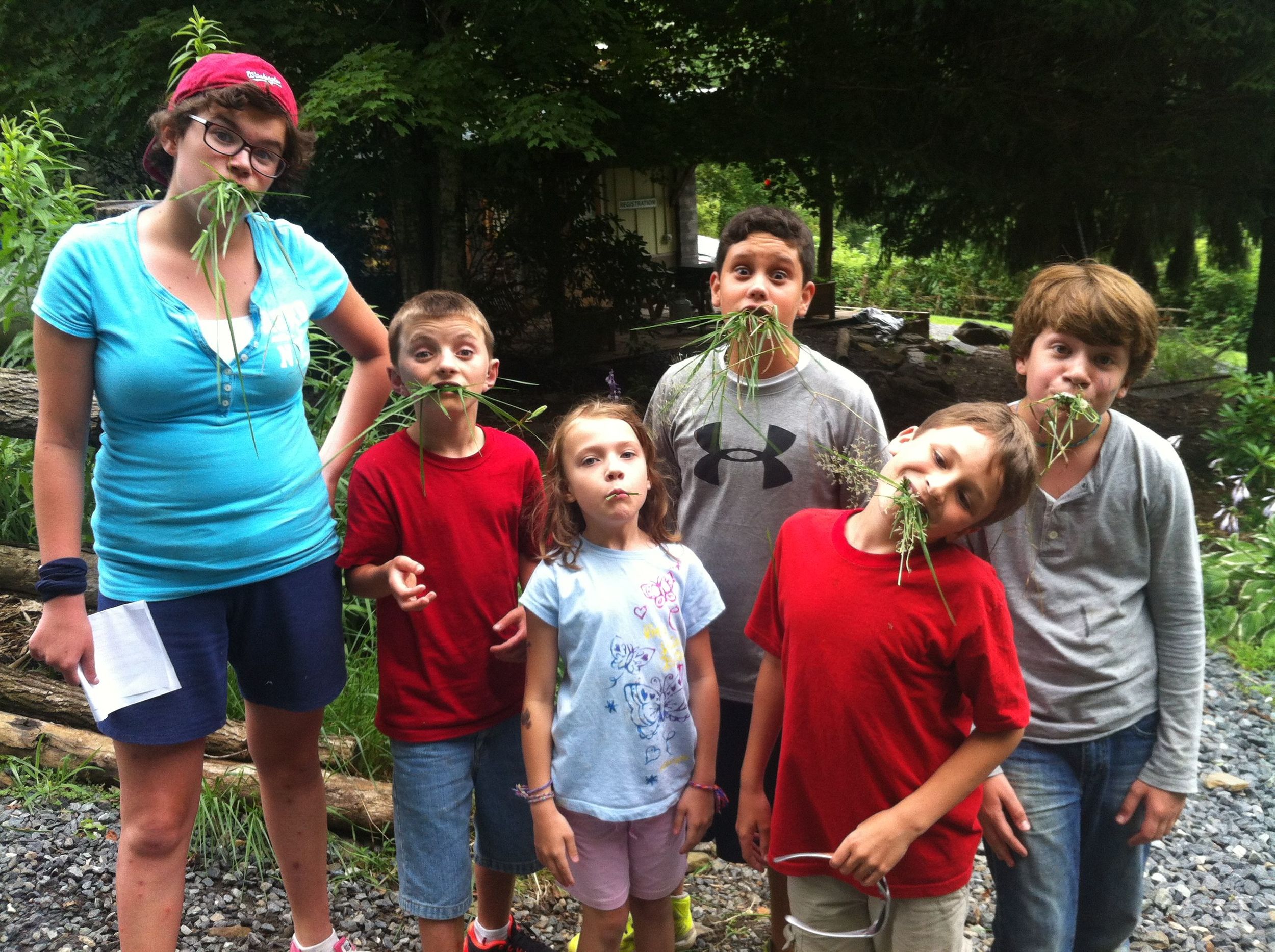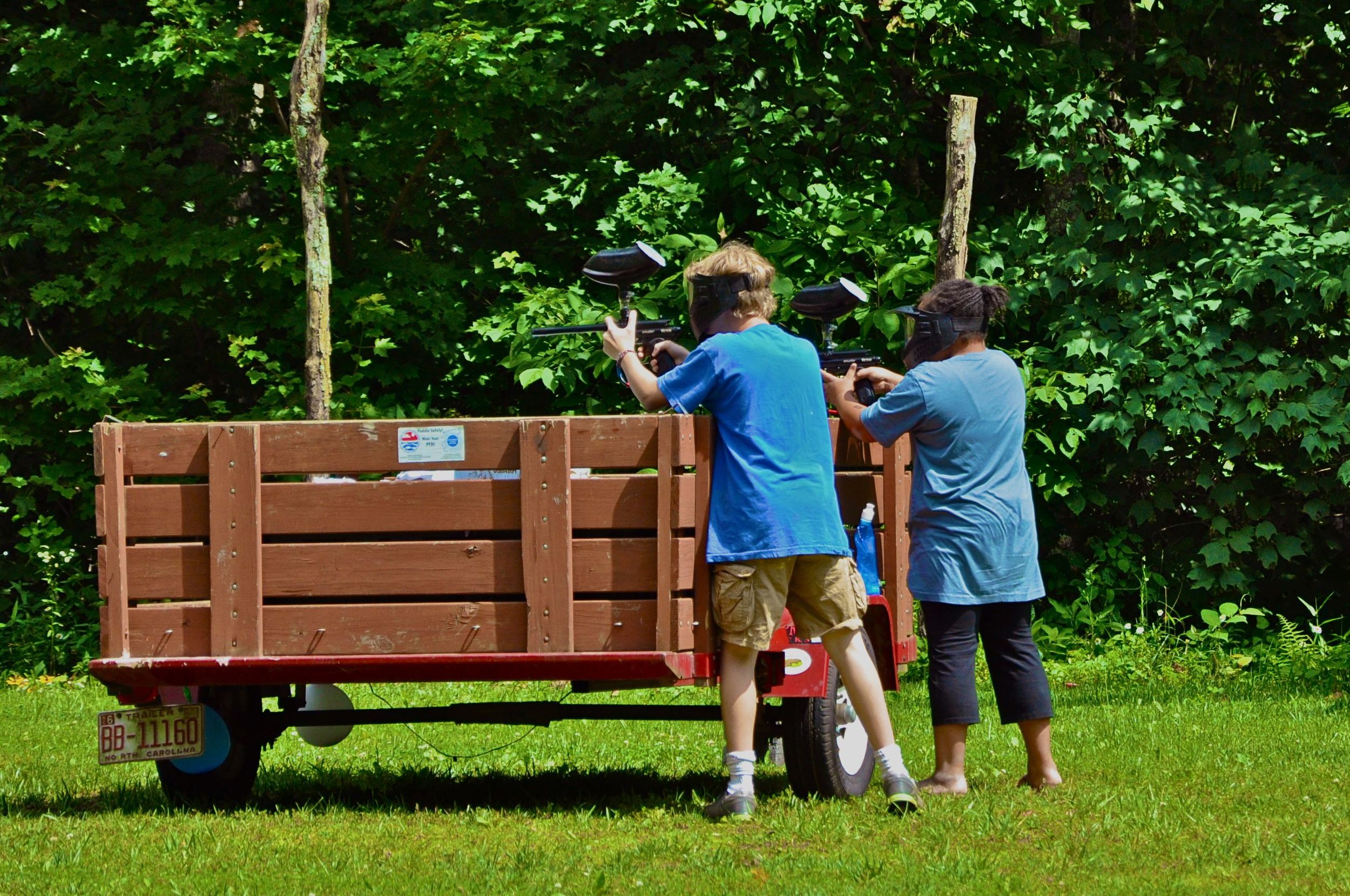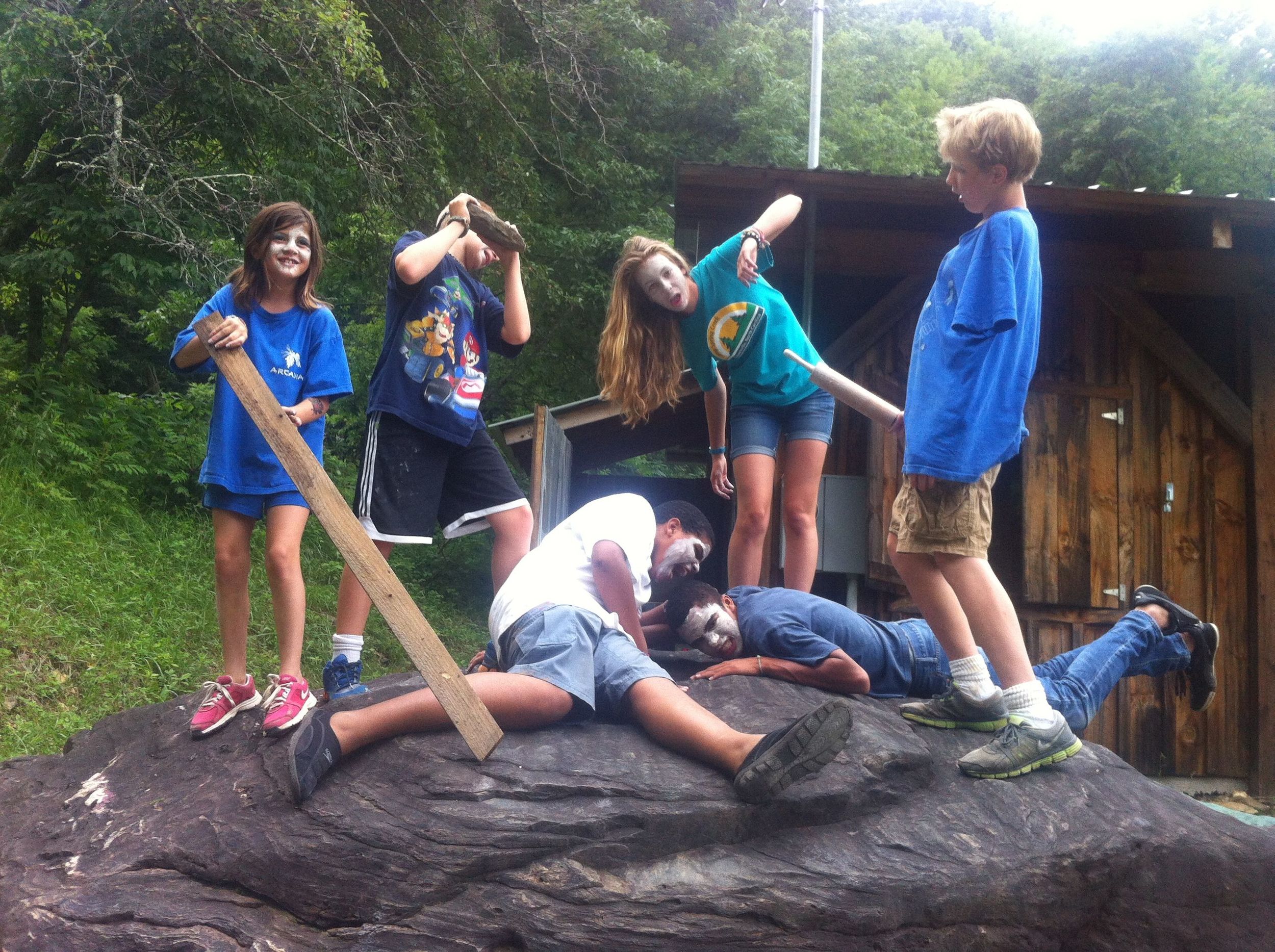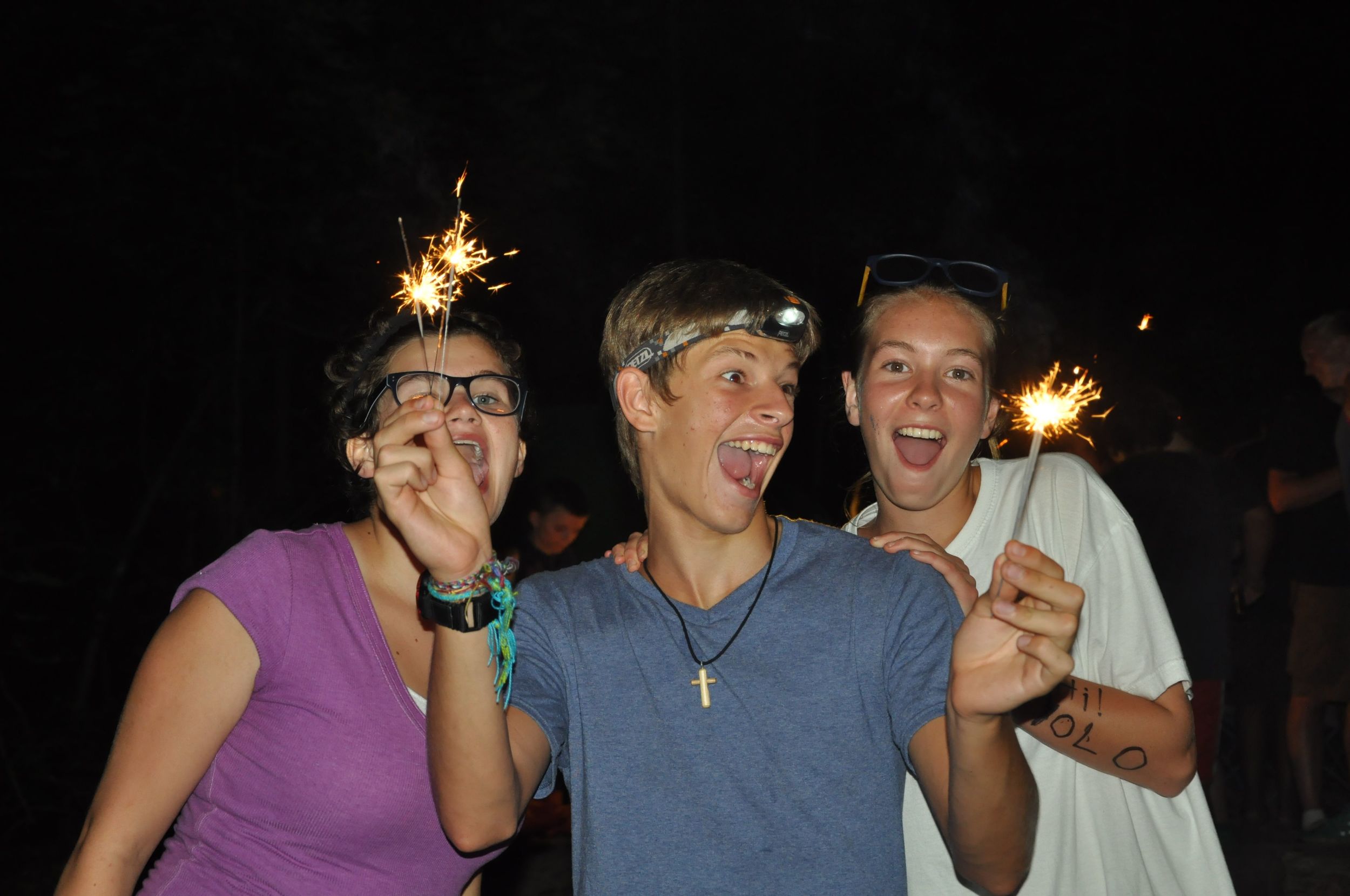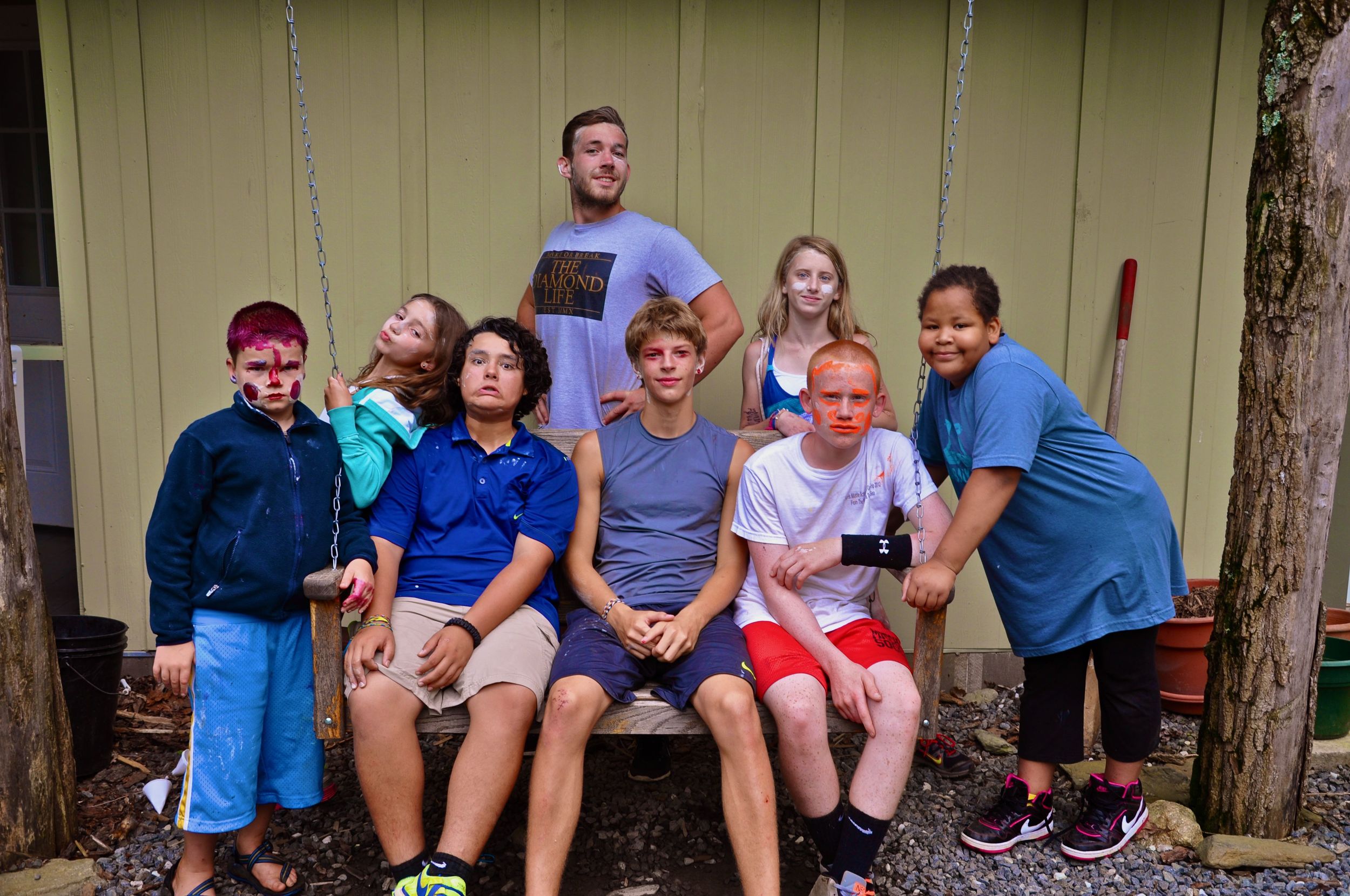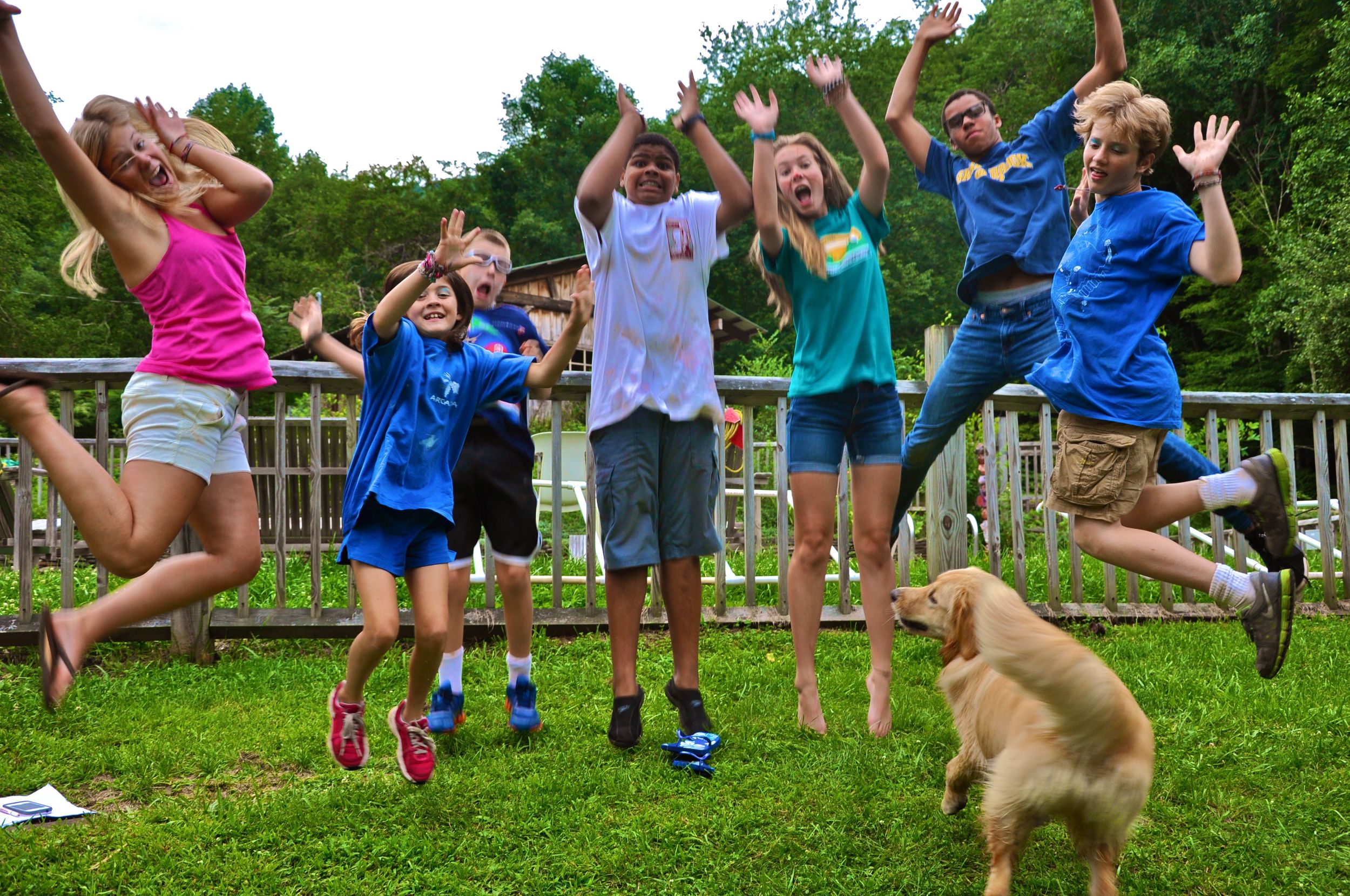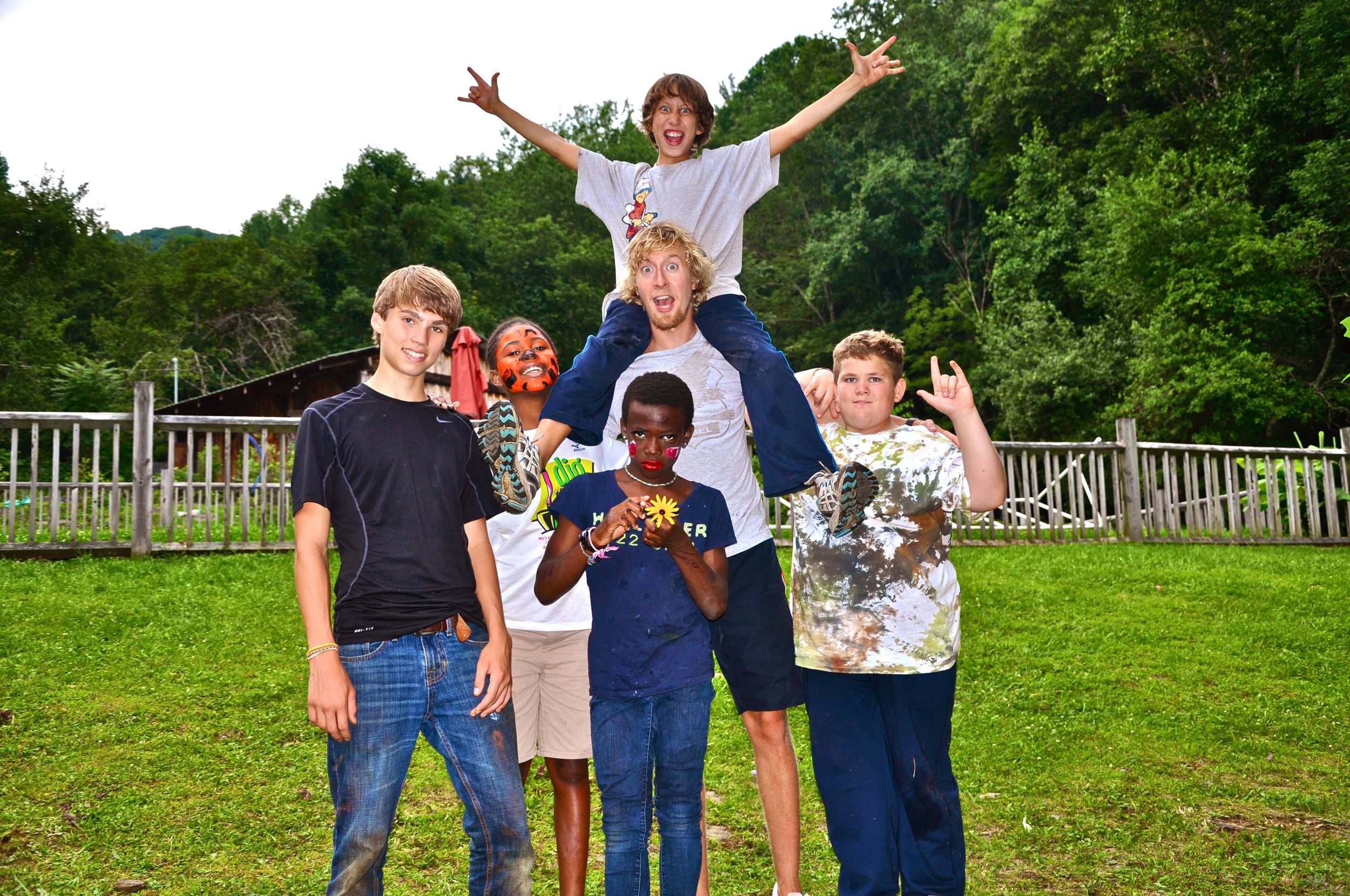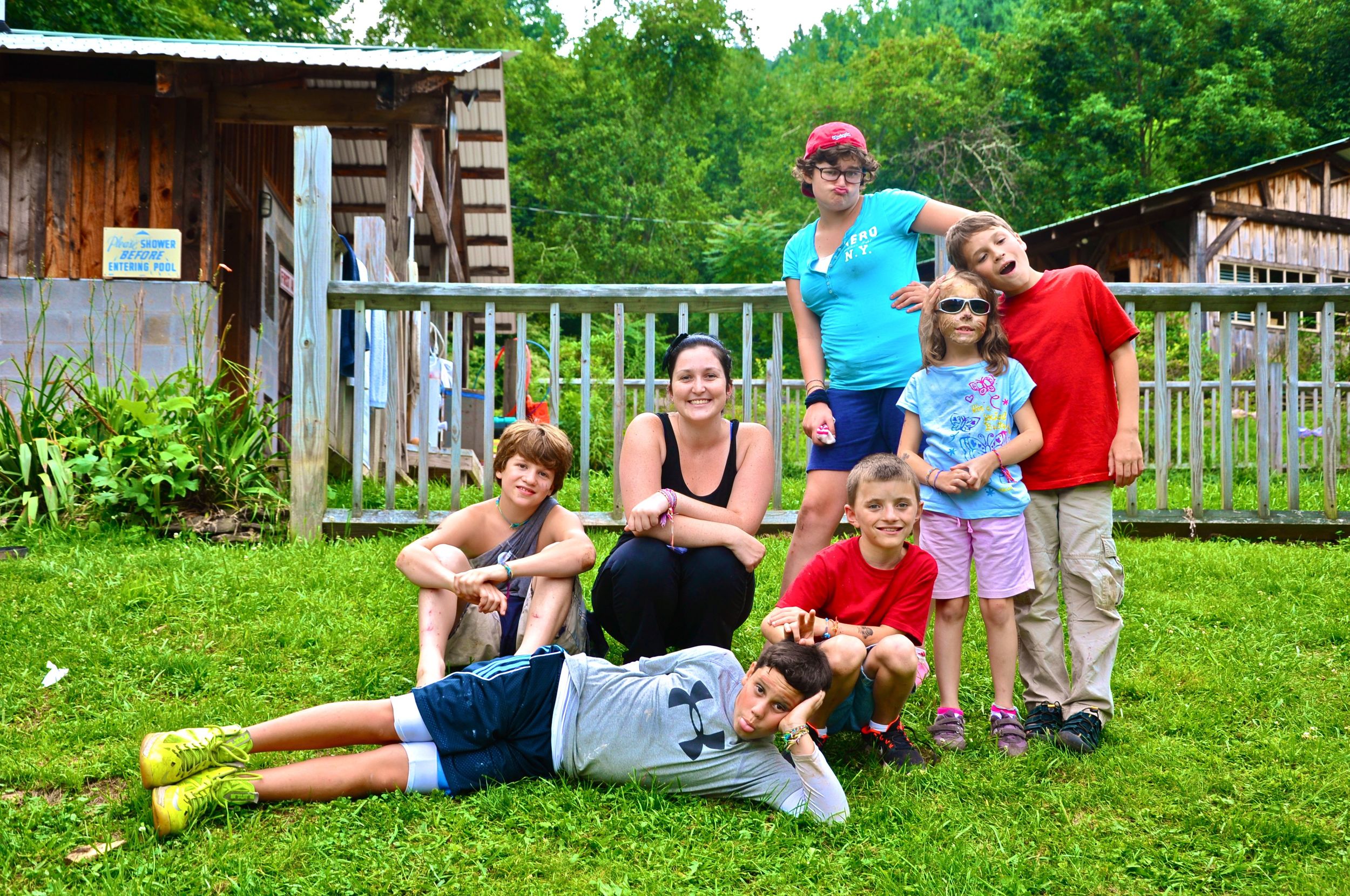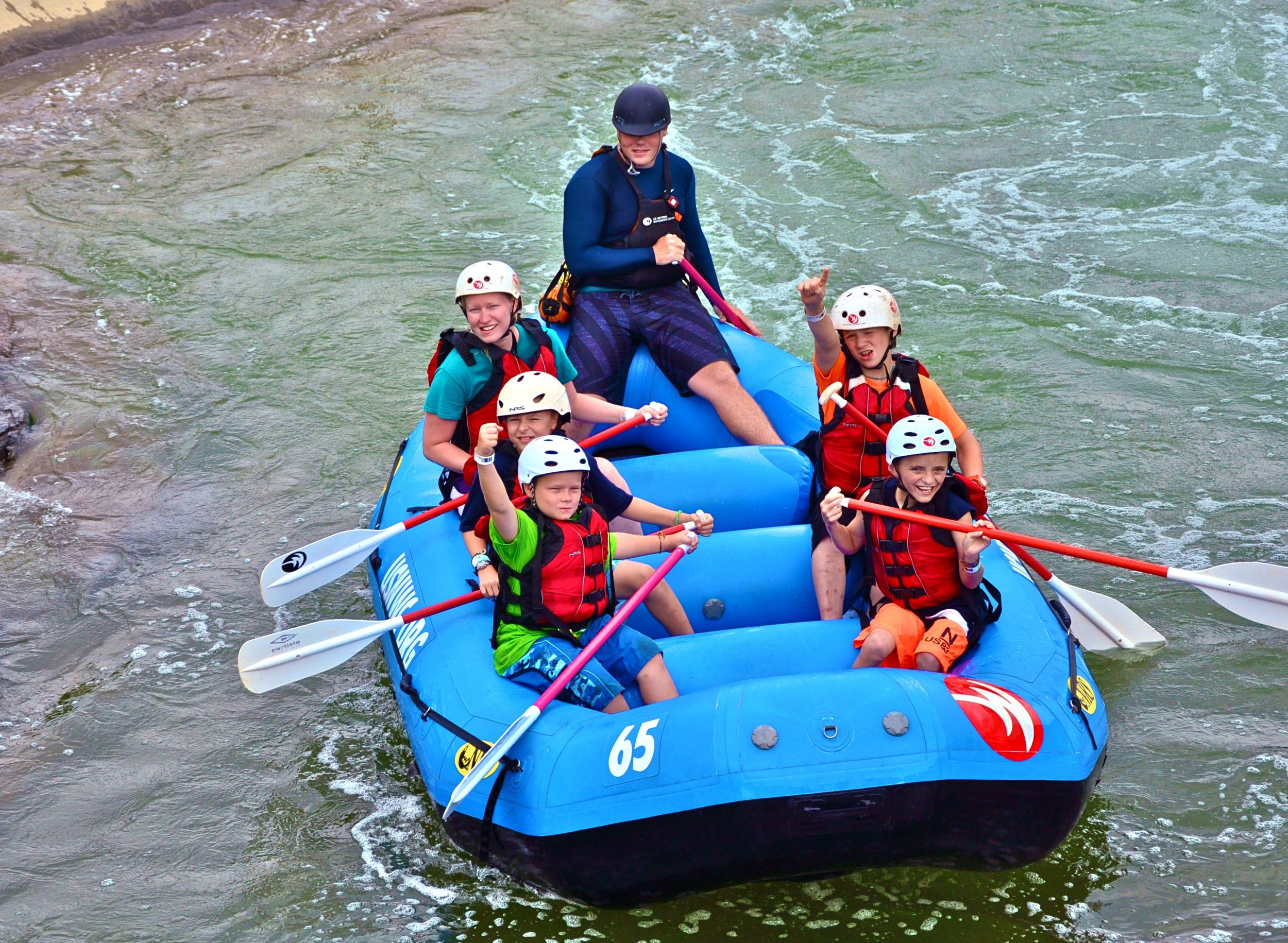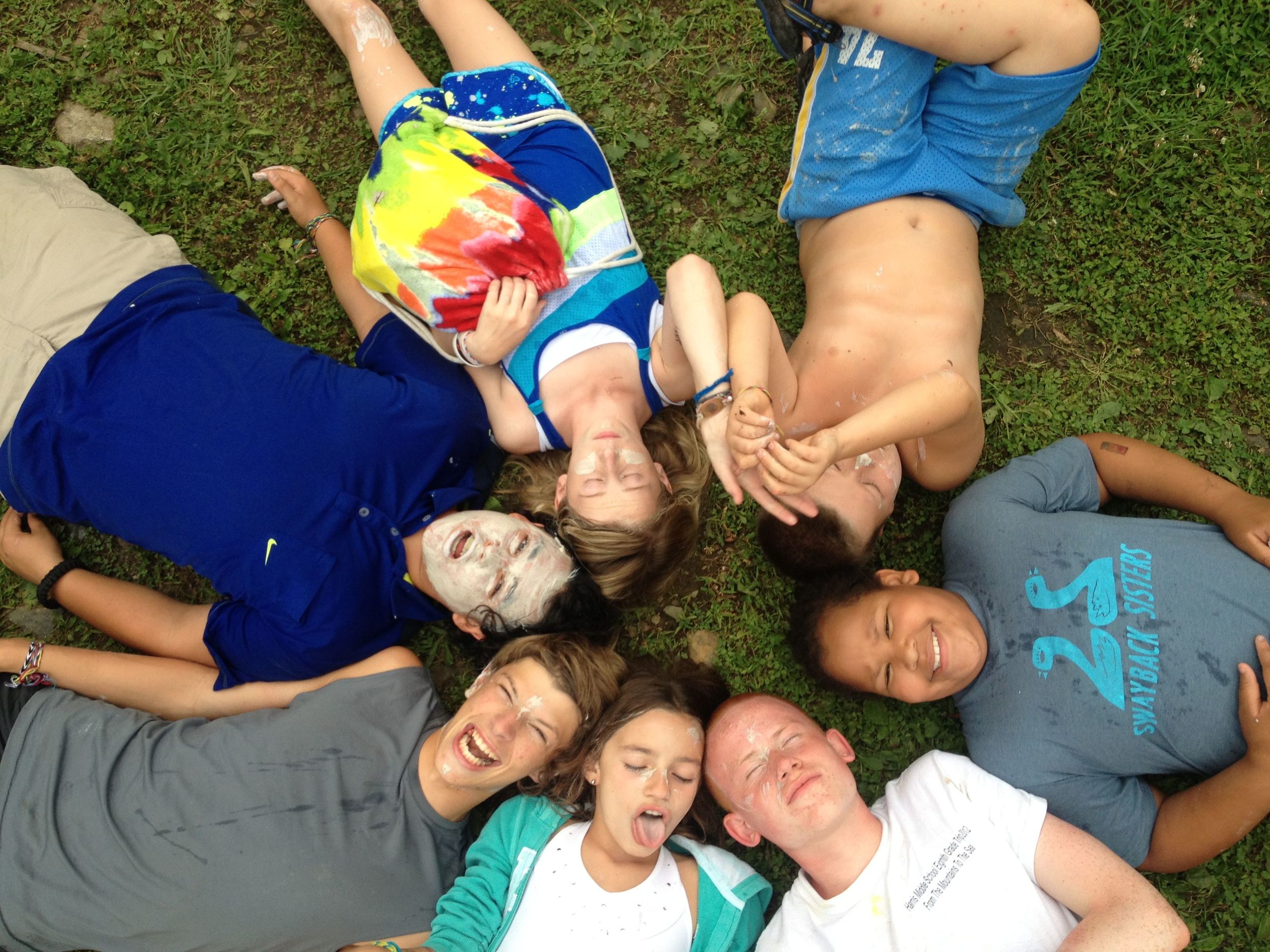Here's a group shot of our camp counselors during lifeguard training, which began June 5th and continues with general camp training right up until the last minute, when the campers arrive on June 15th. From near and far, we're overjoyed to have a stellar team this summer and can't wait to kick things off!
Susie on Summertime
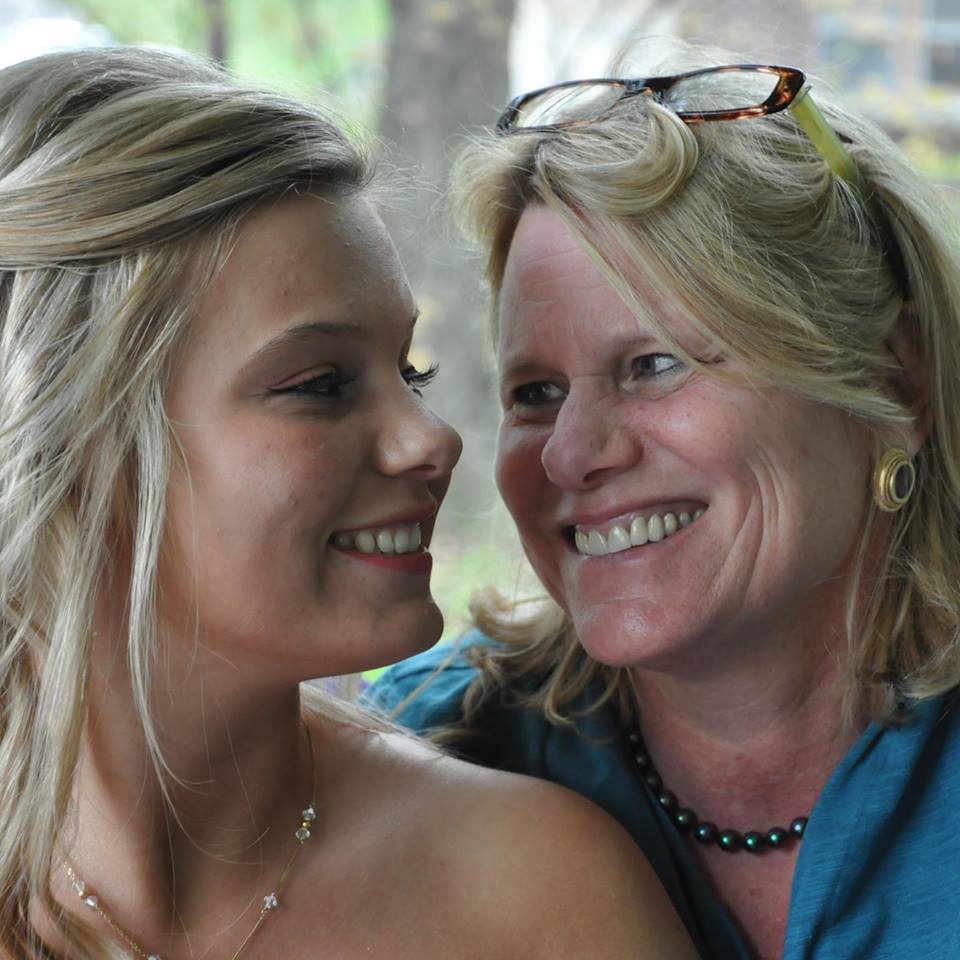 We took a few minutes to ask Susie about "summer slide" and any tips she might have for our readers--be you fans and supporters from afar, grandparents checking on your child at camp, or one of our many local followers dedicated to providing well-rounded educational experiences for your children. Here's a quick note from our co-director:
We took a few minutes to ask Susie about "summer slide" and any tips she might have for our readers--be you fans and supporters from afar, grandparents checking on your child at camp, or one of our many local followers dedicated to providing well-rounded educational experiences for your children. Here's a quick note from our co-director:
Summer is a season when children can spend more time playing, learning their own limitations, and problem solving in areas they feel drawn to. Society doesn’t allow much time for imagining anymore, but that is an important skill and we need to encourage our kids to dream. We also need to provide opportunities for our kids to develop critical thinking. At Camp Spring Creek, we want to keep our childrens' academic skills from sliding during the summer, but we value our outdoor time as much as our tutoring time.
For those reading our blog from afar, if your child has a natural interest in something, summer is perfect for devoting time to developing that interest. Be it cooking, hiking, building, or dancing—whatever their passion, there’s always a way to incorporate basic educational skills and keep it fun. This interest need not be an expensive hobby or something that requires high-tech equipment. Whatever they choose, we need to encourage our kids to dream and then reach for those dreams.
At the end of every school year, I take our children to a bookstore and let them pick a book that interests them for summer reading. If you can’t afford to buy a book, go to your local library and borrow a book. Most libraries have books on CD, which you can listen to while you’re taking a trip in the car or while you are sitting by a brook in the shade.
During the early years (and also in adult life), is important to build meaningful relationships and reflect on those relationships. We have always encouraged our children to write to family and friends during summertime and, often, they get mail in return. If a friend has moved away or a grandparent or other relative lives far away, this is a wonderful way to stay connected while also getting writing practice. Journaling is a private way to keep writing active and kids can get very creative with their journals, pasting in items and photos from different activities they have enjoyed.
In short, our golden rule: Get outside, play with friends, learn a new skill, dream, and write to your grandparents; like summer, they won’t be around forever.
Top 5 Ways to Avoid Summer Slide
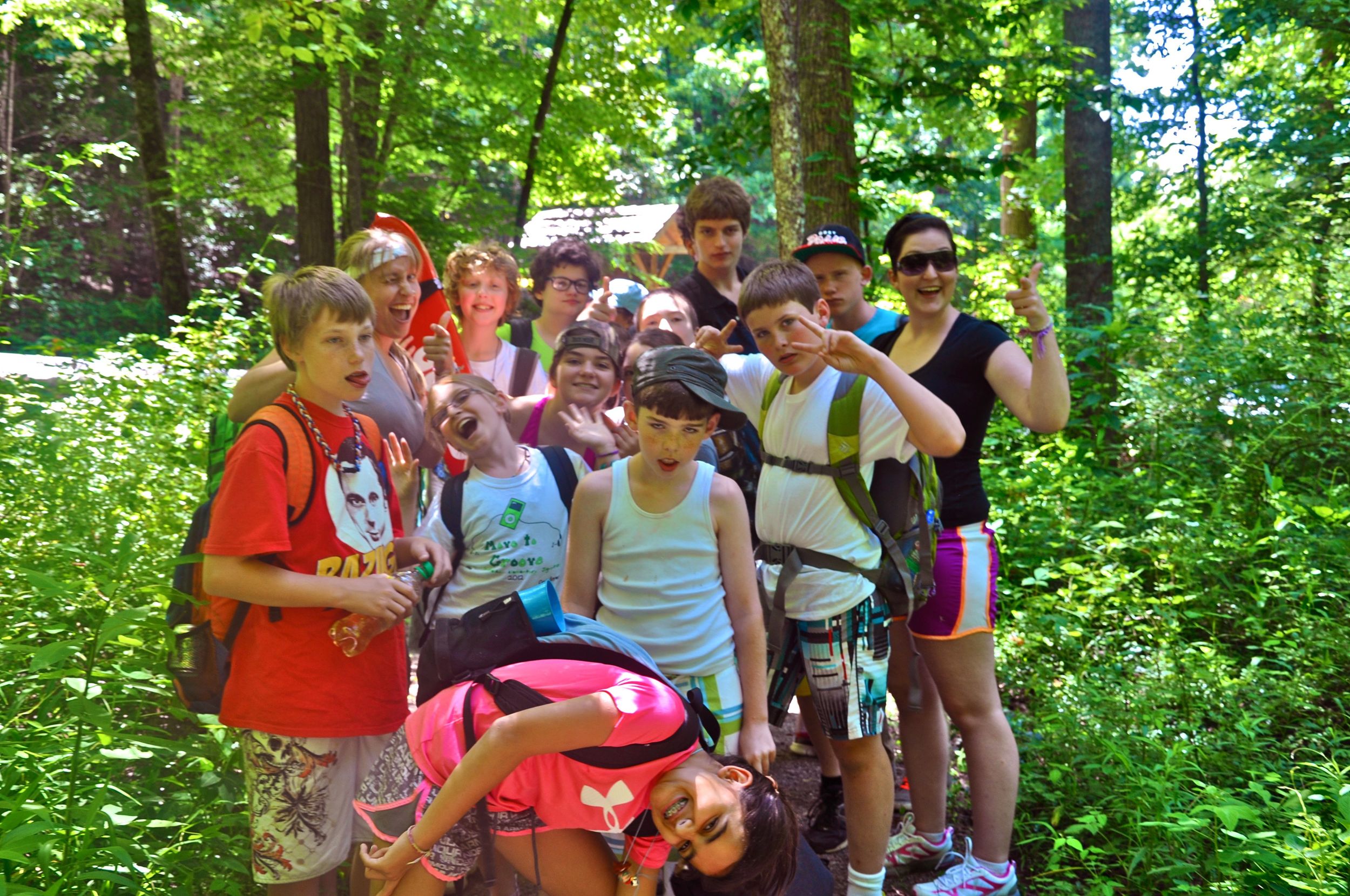 Children who spend summer vacation with hours of unstructured activity per day might be gaining independence and exploring their imaginations, but they will also lose math, reading, and spelling skills as a result of “summer slide.” Many families are unaware that a few simple steps can integrate learning into their children’s daily lives, picking up where traditional teaching methods fail without sacrificing those wonderful “daydreaming hours” associated with summertime.
One in five school-aged children has dyslexia, yet less than 1/3 of these students receives school services guaranteed to them by law for their reading disability. According to the National Center for Education Statistics, the high school dropout rate for students with dyslexia or related learning disabilities is more than twice the national average for students who don’t have a learning disability. During the summer months, most students lose two months of grade level equivalency in mathematical computation, and low-income youths lose an additional two months in reading achievement. For children with dyslexia, the numbers are even worse.
Children who spend summer vacation with hours of unstructured activity per day might be gaining independence and exploring their imaginations, but they will also lose math, reading, and spelling skills as a result of “summer slide.” Many families are unaware that a few simple steps can integrate learning into their children’s daily lives, picking up where traditional teaching methods fail without sacrificing those wonderful “daydreaming hours” associated with summertime.
One in five school-aged children has dyslexia, yet less than 1/3 of these students receives school services guaranteed to them by law for their reading disability. According to the National Center for Education Statistics, the high school dropout rate for students with dyslexia or related learning disabilities is more than twice the national average for students who don’t have a learning disability. During the summer months, most students lose two months of grade level equivalency in mathematical computation, and low-income youths lose an additional two months in reading achievement. For children with dyslexia, the numbers are even worse.
“Residential summer camps allow children to boost their self-confidence as they overcome homesickness. They spend time developing their interests and they can also focus on reading and writing while having fun,” says Susie van der Vorst, co-founder of Camp Spring Creek and one of only 145 actively training Orton-Gillingham Fellows in the United States.
van der Vorst recommends involving children in family plans, such as doing math to budget for the grocery store, organizing driving routes using maps for a family trip, or starting a family book club using self-selected material that everyone can enjoy. Citing nearly thirty years experience as an educational advocate for children with dyslexia and related learning differences, van der Vorst concludes that the most dynamic summer learning experiences for children happen in supportive social, outdoor, educational environments outside the home.
Camp Spring Creek’s day or boarding program offers the following opportunities to address summer slide and help create positive learning habits for children, so they become more dynamic, confident, curious learners:
- 1:1 Orton-Gillingham language tutorials using a proven diagnostic and prescriptive multi-sensory approach that teaches the structure of language.
- An hour of supervised oral reading at the camper’s independent reading level.
- Daily activities including art projects, swimming, wood shop, waterskiing, and outdoor education to encourage exploration and creative expression.
- Socialization with peers of different nationalities and socio-economic status through shared living spaces, teamwork opportunities, and memorable experiences such as campfire or singing.
- Math enrichment and math remediation as per the needs of each camper.
“We often see students make two to three years worth of progress during a six to eight week session at camp,” adds van der Vorst. “Our approach is designed to target a child’s individual strengths and weaknesses and help them excel, but we also recognize the value of keeping kids active throughout the day. Most campers grow as much in terms of ‘measurable’ skills as they do in self-confidence, communication skills, and their ability to take learning into their own hands.”
Camp Spring Creek is fully enrolled for the 2014 season, but welcomes names for its waiting list (you never know!) and early interest for 2015.
Interview: Wendy Welshans & Forman's Rainforest Project
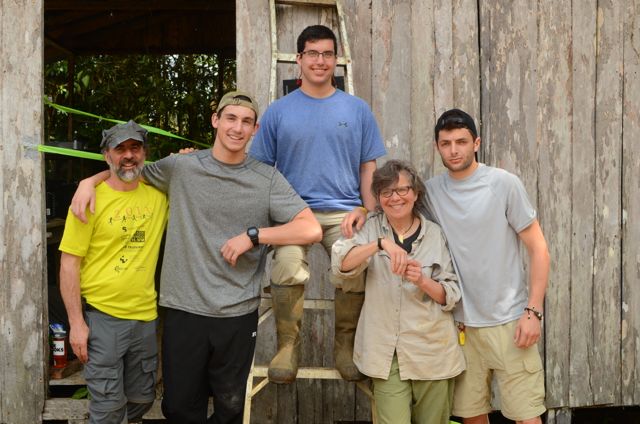 Today’s interview is with inspiring individual Wendy Welshans. Wendy has been a teacher at the Forman School for students with dyslexia and learning differences for 22 years. She is the director of the Outdoor Leadership Program and the Rain Forest Project. She teaches biology, anatomy and physiology, and the Tropical Ecology Seminar. Wendy is head of the Forman Boat Works, Forman's own wooden boat building program. She coaches the whitewater slalom team and leads weekend backpacking trips. The highlight of many students’ experience is the scientific research expedition to Costa Rica that Wendy leads each year. Wendy is also a Registered Maine Guide and a Wilderness First Responder. She and her daughter, Jorie, live in an alternative energy home in Sharon with their dog, Max, and 18 chickens.
Today’s interview is with inspiring individual Wendy Welshans. Wendy has been a teacher at the Forman School for students with dyslexia and learning differences for 22 years. She is the director of the Outdoor Leadership Program and the Rain Forest Project. She teaches biology, anatomy and physiology, and the Tropical Ecology Seminar. Wendy is head of the Forman Boat Works, Forman's own wooden boat building program. She coaches the whitewater slalom team and leads weekend backpacking trips. The highlight of many students’ experience is the scientific research expedition to Costa Rica that Wendy leads each year. Wendy is also a Registered Maine Guide and a Wilderness First Responder. She and her daughter, Jorie, live in an alternative energy home in Sharon with their dog, Max, and 18 chickens.
Camp Spring Creek: From what I understand, The Rainforest Project that you founded at Forman School is open to students from area Connecticut public high schools as well as Forman School students. How do you find this blending aspect of the program and in what ways do the students surprise themselves when they work with others of different backgrounds, strengths, and weaknesses?
Wendy Welshans: That’s an interesting question. Many times it is the public school kids who learn and change attitudes—they have a completely different view of learning differences than is the reality. Many times you hear them say things like, “You guys are so smart” or “You’re so creative” or “How did you come up with that idea?” For our Forman students with learning differences, sometimes they feel inadequate initially, then after they get to know the public school kids they see how they themselves shine and how everyone’s strengths help the team.
CSC: At the end of the day, when all the testing, measuring, tagging, sorting, and hypothesizing are done, even the most gifted, fortunate, or enthusiastic science student needs to be able to articulate his or her findings in writing so that others can understand. Likewise, truly innovative research offers something new, implying that students must be well-read in their particular area of research in order to come up with a new finding. Do you encounter resistance to in-depth reading and writing from your students and, if so, how do you approach this?
WW: Good question. Because the students pick one of our 4 or 5 research projects to focus on, there is a sense of ownership from the beginning. It also helps that, for the most part each year’s Rainforest Project team is chosen by the previous team, as people that could take their research to the next level and start where they left off. Students on the team feel that sense of ownership and want to have that, too. We try and pair them in research teams where everyone has a certain affinity. Say Jon doesn’t like to write and Sam loves to write, but doesn’t like to read. They know that the key to scientific breakthroughs is knowing when you are witnessing one, and you can’t witness one if you don’t have background knowledge on your species.
CSC: Among many other accomplishments, The Rainforest Project and its working, learning, students and staff members have earned two patents. One is shown in Journey Into Dyslexia: the extraction method you use to extract spider silk from the Golden Orb Weaver for commercial use. How did you take your students through the patent process and, in particular for those students struggling with writing or reading, how did you find their experiences of these final steps?
WW: So…getting our patents on spider silk is quite a story unto itself. These webs are strong! In the mid 1990’s, we would play with these spiders after coming back to base camp from hiking to where we were collecting specimens. We would feed them in their webs and have contests between spiders on the speed it took them to capture their prey.
The more we read about the spider in the field, the more curious we became as to why the webs were so strong. We made funnel traps which were 4’ high to capture the insects drawn into the area of the web. This was to see if particular insects were giving the spiders the ability to produce strong silk. One day, a student of mine was holding one of these golden orb weavers and said, “Look!” As he let the spider fall, he spun a Coke bottle to collect the silk. It seemed to never run out of that silk. Since then, each year we would try and collect it in a more efficient manner. Because this method had not been tried in the field before, the patents were applied for as a protection for the people and the species not to be exploited. We obviously knew this could and will go somewhere.
The students and I wrote our scientific methodology for our extraction technique and a few years later another group of students and I wrote up the methodology of the spider farms. For the students, doing the illustrations or labeling the illustrations was just as much a gas as seeing our science paper turned into legalese!
The motivation for what is legit rivals most. Our kids want their creative juices to flow and for a reason. Seeing their names published or, better yet, hearing a professor ask their opinions on a subject they have immersed themselves in is quite a motivator. For some, it is the first expert advice they have ever given. The students like that feeling of knowing and understand that they have earned that knowing through their prior research. The hope is, they take that feeling, that success, to college with them and they immerse themselves into each class as they did studying spider silk at Forman. They have seen where immersion can go.
CSC: What was your own path of discovery like with dyslexia? How did you feel at first, where had you struggled most, and—following diagnosis—where did you find the most relief?
WW: I knew I was a little different from my friends, who walked through the academics like eating a bowl of cereal…effortless. I struggled with reading and writing and sitting in one place. I was diagnosed with ADHD when I was 12; after college, my testing showed dyslexia. My parents were very supportive and gave me a vast array of projects on our property. I have had a creative, scientific mind since the age of 3. My folks were so disappointed when I failed Biology and struggled with Ecology, which seemed to be what I had a propensity for. My teachers, though supportive at public school, had no faith in my ability to go to college, especially SUNY College of Environmental Science and Forestry at Syracuse University. I attended Erie Community College and took every science course they had to offer. It was very hands-on and challenging. I received an Associate Degree in Applied Sciences and the Science Award at graduation and I matriculated to SUNY-ESF at Syracuse. I found college to be amazing because I was immersed in heavy science curriculum that was hands-on and rigorous.
Always, my relief or maybe my break from my LD has been building things, usually out of wood. Usually, I build something out of my head. When I was a child, it was small boats or game boards. Now, it is not much different. I teach wooden boatbuilding at Forman and am immersed in the Rainforest Project and in the species of that tropical forest just as I was as a child in our forest at home. I have always lost myself in the forest, exploring with a backpack of field guides.
Interview: Jack Horner
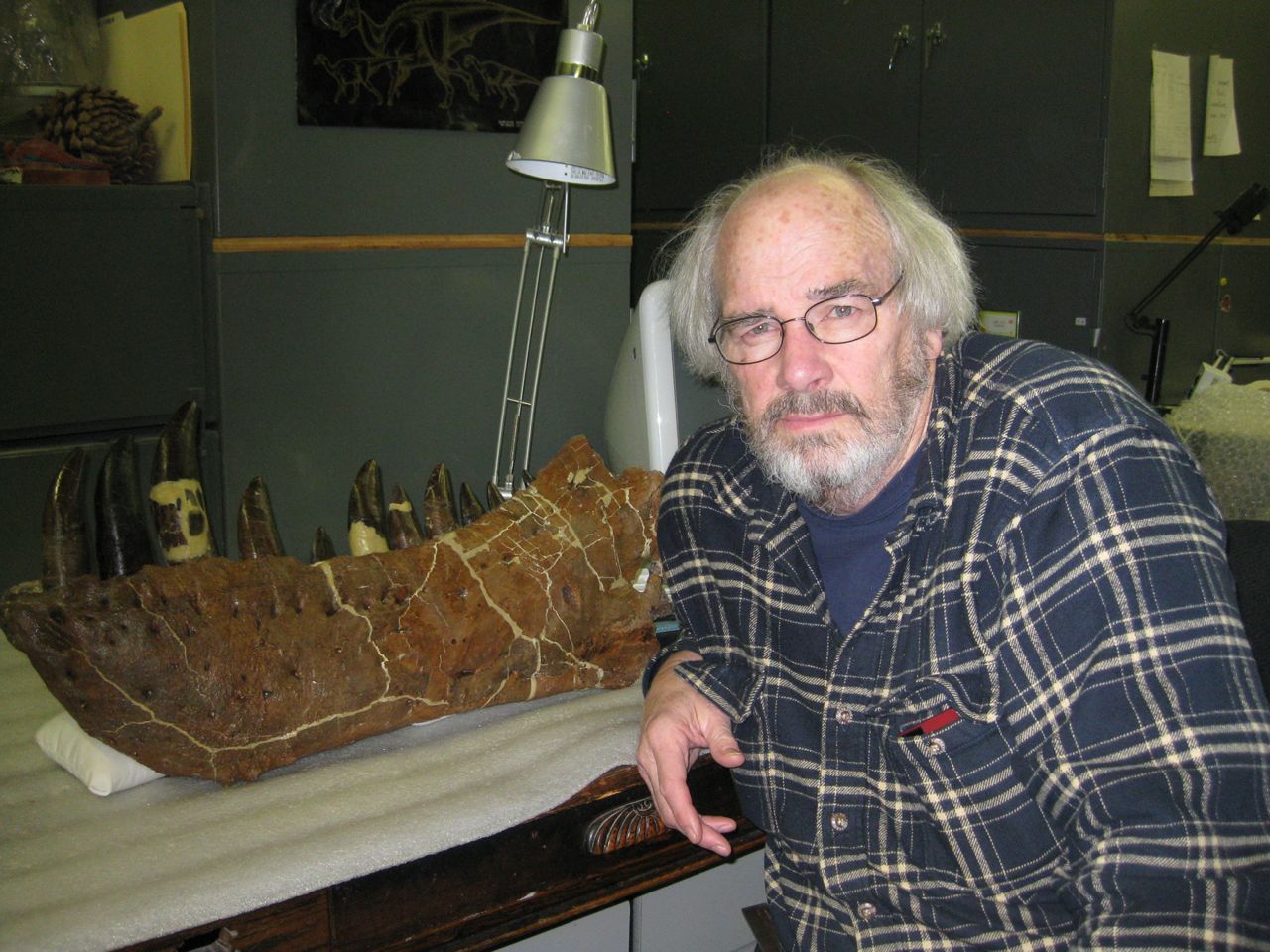 Today's inspiring individual is John R. “Jack” Horner, an esteemed paleontologist who was once a senior technical advisor (and part character inspiration) for the Jurassic Park films. Jack's story of struggle and triumph is especially powerful, as he moved from undergrad drop-out to the recipient of a MacArthur "Genius" Fellowship. Jack was born and raised in Shelby, Montana and attended the University of Montana for seven years majoring in geology and zoology. Although never completing a formal degree, the University of Montana awarded him an honorary Doctorate of Science in 1986. Jack and his students excavate and study dinosaurs, particularly their growth and behavior. Jack has published more than 180 professional papers, 9 popular books, and more than 100 popular articles. Jack is Regent’s Professor of Paleontology in the Department of Earth Sciences, and Curator of Paleontology at the Museum of the Rockies, Montana State University in Bozeman, Montana. He is also a Senior Adjunct Scientist at the Smithsonian Institution. Jack lectures on dinosaurs, evolution and dyslexia. He lives in Bozeman.
Camp Spring Creek: In addition to your accomplishments in paleontology, you’re also an author. Which aspects of writing come naturally to you and which do you find you have to make accommodations for? Many writers are often told to “write the kind of book you’d love to read yourself.” Several of your books are for children. What were reading and writing like for you as a young child?
Today's inspiring individual is John R. “Jack” Horner, an esteemed paleontologist who was once a senior technical advisor (and part character inspiration) for the Jurassic Park films. Jack's story of struggle and triumph is especially powerful, as he moved from undergrad drop-out to the recipient of a MacArthur "Genius" Fellowship. Jack was born and raised in Shelby, Montana and attended the University of Montana for seven years majoring in geology and zoology. Although never completing a formal degree, the University of Montana awarded him an honorary Doctorate of Science in 1986. Jack and his students excavate and study dinosaurs, particularly their growth and behavior. Jack has published more than 180 professional papers, 9 popular books, and more than 100 popular articles. Jack is Regent’s Professor of Paleontology in the Department of Earth Sciences, and Curator of Paleontology at the Museum of the Rockies, Montana State University in Bozeman, Montana. He is also a Senior Adjunct Scientist at the Smithsonian Institution. Jack lectures on dinosaurs, evolution and dyslexia. He lives in Bozeman.
Camp Spring Creek: In addition to your accomplishments in paleontology, you’re also an author. Which aspects of writing come naturally to you and which do you find you have to make accommodations for? Many writers are often told to “write the kind of book you’d love to read yourself.” Several of your books are for children. What were reading and writing like for you as a young child?
Jack Horner: Reading is the hardest thing I do in my life, so with regard to reading, nothing comes easy and I have to make accommodations for every part of it. Writing is also difficult, but I learned two things early in my life that have helped a great deal. One was learning how to type. My mother was a typist and spent much time teaching me how to type, and I also spent a great deal of time learning how to make letters so that I could write well enough that I could read what I wrote, even though I read one letter at a time. As a child and young person, K – 12, I didn’t read much of anything, but I loved to look at the pictures in books and did my best to read the captions. I didn’t write much either, but always liked the idea of writing.
CSC: It’s long been accepted that one thing people with dyslexia naturally excel at is thinking outside of the box. In your field in particular, you have to manage so many eons of historical information, manage teams of people on a dig, organize your thoughts for academic research, as well as constantly push for the “next big thing.” Are there ways in which you’ve noticed your own abilities to “think outside the box” in your line of work? Please tell us about one or two by way of example.
JH: I have no idea what or where this box is or what it's like to be in it! Managing eons of data, together with numerous teams of people on digs, in labs, or any place else, and thinking and writing about new ideas that come from many different sources is what I do best. It only requires spatial thinking.
CSC: Speaking of thinking outside the box, what’s this we read about a genetically created dinosaur chicken? (We had to ask…)
JH: It’s a long story, but basically I have a team of geneticists working on retro-engineering a bird back to a dinosaur, or at least some of their characteristics by modifying genes that have been dormant for many generations.
CSC: You spent seven years studying as an undergrad and did not earn your bachelor’s degree. Years later, all of that was moot, but there must have been moments when you considered giving up or feared the worst. What would you share with a student in a similar position right now? What could you tell that eager, smart learner to help him or her stick with it?
JH: Giving up never entered my mind, but there was always the chance that my dreams would have to be modified, and for some period of time they were. My profession is also my hobby so there is no way it can be taken from me or that I could not do it. For a few years I worked for my father in his gravel business, and on the weekends or my time off, I worked on my hobby. I was always striving to get a job in paleontology, but I always knew the chances were slim. But, what was the worst that could happen? Work as I was, and do my hobby on my own time? Not so bad! When you have nothing to lose, even the smallest of accomplishment is success!
Video: Missing Camp Spring Creek?
[youtube=http://www.youtube.com/watch?v=ZkzZ0XipFxM&w=640&h=360]
Steve Goes to Poland!
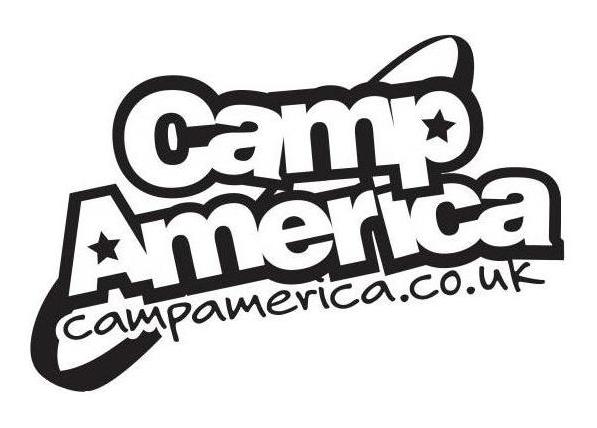 This week, Co-founder and Co-director Steve van der Vorst is in Krakow, Poland for the Camp America Camp Director's Fair, where he will get to hand-pick some of our counselors for this summer!
"Our counselors have to be able to show initiative," says Steve. "That’s one reason we conduct many interviews...I can usually get an idea for how energetic someone is, and also, how enthusiastic. A lot of young people want to work at a camp, but most camps in America are large and hire counselors that focus on one specialty. We look for people with skills across the board and we're a small camp, so we want someone comfortable with our family-style dynamic."
This week, Co-founder and Co-director Steve van der Vorst is in Krakow, Poland for the Camp America Camp Director's Fair, where he will get to hand-pick some of our counselors for this summer!
"Our counselors have to be able to show initiative," says Steve. "That’s one reason we conduct many interviews...I can usually get an idea for how energetic someone is, and also, how enthusiastic. A lot of young people want to work at a camp, but most camps in America are large and hire counselors that focus on one specialty. We look for people with skills across the board and we're a small camp, so we want someone comfortable with our family-style dynamic."
In addition to hard skills such as a background in art our outdoor activities, Steve also looks for a sense of humor, experience traveling and being away from home, and a willingness to work hard. Safe travels, Steve, and come back with lots of top picks!
Camp Spring Creek Heads to Pennsylvania
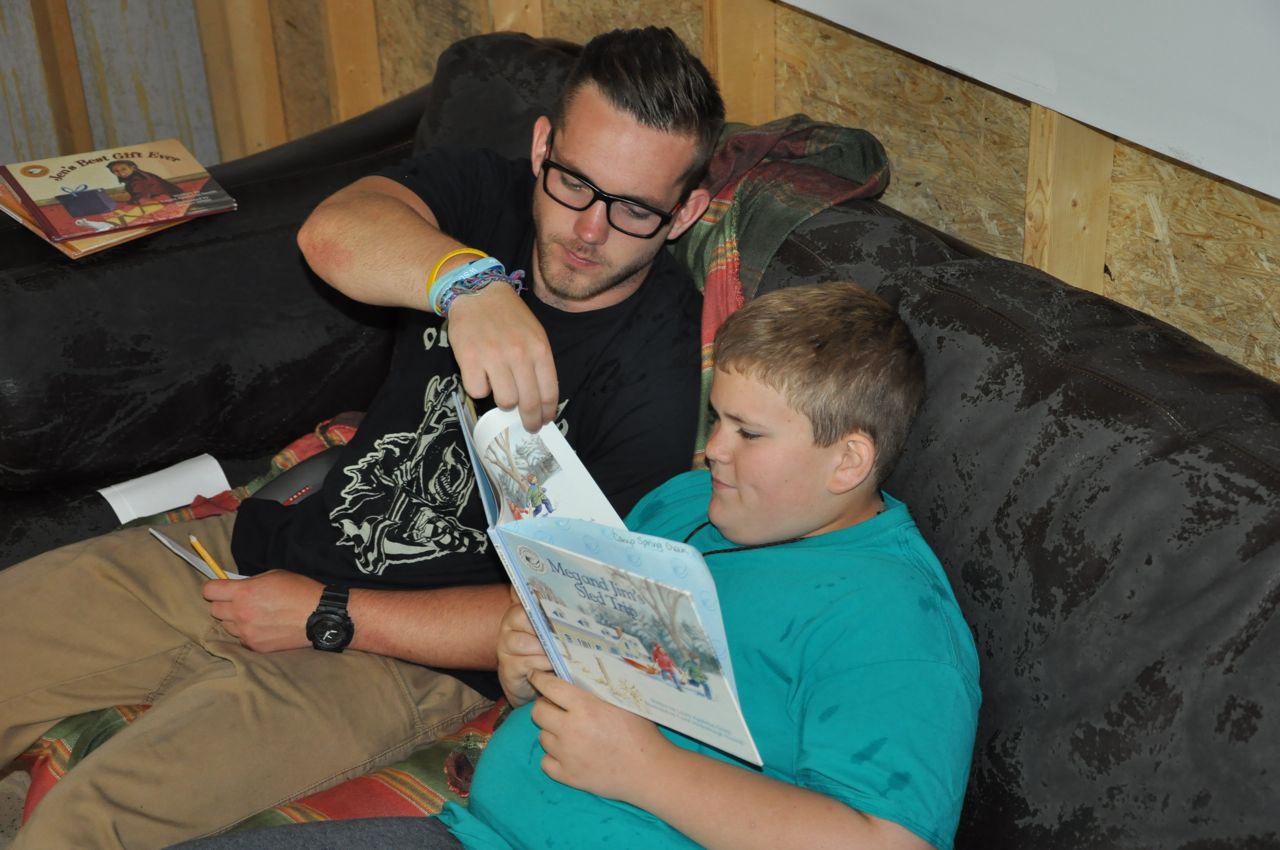 This press release was originally through published in Bucks County, PA area media outlets in anticipation of our 1/6/14 Camp Show in Buckingham, PA. Read below for info about hosting a camp show in your area, and also some choice quotes from Camp Spring Creek's very own Susie van der Vorst.
Buckingham, Pennsylvania – January 6, 2014 – Summer camp for children with dyslexia offers film and open house.
This press release was originally through published in Bucks County, PA area media outlets in anticipation of our 1/6/14 Camp Show in Buckingham, PA. Read below for info about hosting a camp show in your area, and also some choice quotes from Camp Spring Creek's very own Susie van der Vorst.
Buckingham, Pennsylvania – January 6, 2014 – Summer camp for children with dyslexia offers film and open house.
Camp Spring Creek, located in the Blue Ridge Mountains of North Carolina, is an academic and recreational camp supporting dyslexic children ages 6 to 14. Invited by a local Doyelstown family whose child attended the camp, co-founder and director Susie van der Vorst will screen “How Difficult Can This Be? The F.A.T. City Workshop” by Rick Lavoie and facilitate a brief discussion afterwards. This unique film allows viewers to experience the frustration, anxiety, and tension that children with learning disabilities face every day, as if seeing it through the eyes of a dyslexic. The event is free, open to the public, welcomes children, and includes refreshments.
“Camp Spring Creek changed the way my daughter, Morgan, thought about her ability to read,” said mother and Doyelstown resident, Lisa McBride. “She came home with the understanding that she could face her reading and spelling challenges. As a result, her third grade year has been significantly better and she’s already excited to return to camp!” According to the camp co-director, children with dyslexia often have a hard time learning the skills associated with reading, spelling, and writing. “Dyslexia doesn’t necessarily mean you read backwards, as people often think,” said van der Vorst. “Children with dyslexia have difficulty processing language but they are often very gifted in analytical reasoning and creativity, which is why a high percentage of people with dyslexia become corporate CEO’s, engineers, artists, entrepreneurs, surgeons, and architects.”
With support, people with dyslexia often lead lives of accomplishment. Some of the most successful people in history had dyslexia, including Winston Churchill, Thomas Edison and Walt Disney. Some modern day people who have dyslexia are Robin Williams, Tom Cruise, Henry Winkler and Charles Schwab. “So many people with dyslexia are misunderstood,” said van der Vorst. “But just look at the wonderful role models we have! Many succeed in spite of their education. Imagine how they’d be if they had been instructed in the ways that they learn best.”
One of the most highly effective methods for such instruction is the Orton-Gillingham approach. It teaches the structure of language using multisensory techniques that lead students to see, hear, and write a concept at the same time. Processing a single concept in many different ways allows dyslexic kids to grasp skills they cannot learn using traditional methods. “We often see students make two to three years worth of progress during a six to eight week session at camp,” said van der Vorst. “Our approach is designed to target a child’s individual strengths and weaknesses and help them excel. But we also recognize the value of keeping kids active throughout the day. These kids can’t learn as well if they’re stuck behind a desk. The learning needs to be hands-on so that they can get multiple senses involved.”
The academic program at Camp Spring Creek includes one-on-one tutoring using the Orton-Gillingham approach, keyboarding and writing classes, one hour of reading aloud each day to camp staff, and one hour of study skills. Optional math remediation or enrichment is available as well. The activities offered by the program include wood shop, art, gymnastics, swimming, orienteering, and waterskiing. There are also field trips to explore the surrounding Blue Ridge landscape and culture.
Camp Spring Creek is one of only three residential camps in the United States accredited by the Academy of Orton-Gillingham Practitioners and Educators. The open house and film screening will be held Monday, January 6 at 7 p.m. at Trinity Episcopal, 2631 Durham Road, in Buckingham. For more information, call (828) 766-5032 or visit www.campspringcreek.org.
Win a Camp Spring Creek Chair!
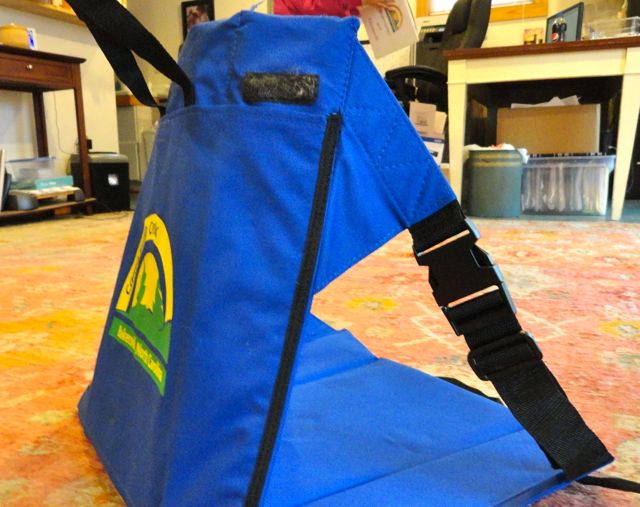 We're holding a little contest on the blog, starting now through December 31, 2013: Like our page on Facebook and then send that page a Facebook message telling us which "Inspiring People" blog post inspired you the most. We'll enter you into a drawing to win this Camp Spring Creek chair!
We're holding a little contest on the blog, starting now through December 31, 2013: Like our page on Facebook and then send that page a Facebook message telling us which "Inspiring People" blog post inspired you the most. We'll enter you into a drawing to win this Camp Spring Creek chair!
Use the link above to read the posts, or access them using Categories on the right-hand side bar. Be sure to tell us why you felt inspired by what you read and feel free to share this contest with friends! Anyone can enter!
Winner will be notified via Facebook on New Year's Eve!
Summer Camps for Children with Dyslexia
Today's blog post is written by Camp Spring Creek's very own, Susie van der Vorst. Susie originally wrote this for The Fortune Academy's blog, Oaks & Anecdotes, which published it last February. Enjoy!
Residential summer camps are a great way to build independence and self-confidence. Whether a child needs a shorter experience at a sleep-away recreational camp or the intense immersi on of Orton-Gillingham instruction along with the confidence boosting camp activities, there is an experience that will keep them from lagging behind in the summer. By attending an accredited OG summer program a child can not only maintain the growth he or she has achieved, but often gain in skills during the summer months, providing a springboard for success in the fall. There are three residential summer programs that are accredited by the AOGPE: Camp Dunnabeck, Camp Spring Creek, and Durango Mountain Camp. Each camp is similar, and as one who has worked at all three camps, I can briefly describe each camp.
on of Orton-Gillingham instruction along with the confidence boosting camp activities, there is an experience that will keep them from lagging behind in the summer. By attending an accredited OG summer program a child can not only maintain the growth he or she has achieved, but often gain in skills during the summer months, providing a springboard for success in the fall. There are three residential summer programs that are accredited by the AOGPE: Camp Dunnabeck, Camp Spring Creek, and Durango Mountain Camp. Each camp is similar, and as one who has worked at all three camps, I can briefly describe each camp.
Camp Dunnabeck is the oldest camp of its kind. It was founded in 1955. At Dunnabeck the residential campers are generally ages 11-16 with day students from 6-11. Recreational activities include horseback riding, water skiing, tennis, art, and several other stimulating activities.
Durango Mountain Camp was established nearly two decades ago and caters to older residential campers (11-17) who are sports enthusiasts. Along with the 1:1 OG tutoring, Durango suits the older, thrill-seeking youths who want the adrenaline rush of extreme sports to help develop creativity, enhance self-esteem, foster individual strengths and generate a great deal of enthusiasm.
Camp Spring Creek is the direct result of experiences at Dunnabeck and Durango Mountain Camp. Susie and Steve van der Vorst met at Dunnabeck in 1990 and worked together there for four summers. We started Camp Spring Creek offering an approach for the “whole” child, including OG tutoring, life skills and activities such as wood shop, swimming, art, camping, hiking, water skiing, rock climbing, and archery.
Often geographical location can play a large role as well. Most important is to find a place where the child feels safe and can make the most progress possible. For those living in Indianapolis, Fortune Academy’s B.R.I.T.E summer camps are a valuable option.
In Her Own Words: Scholarship Sponsor Thank You
Dear Sponsor, I have learned a lot this summer. I learned how to hold my pencil correctly, new words, b/d's, how to read better, and cursive! I have enjoyed art. I liked working with clay. I have enjoyed woodshop where I have made my name, a book, a box, a birdhouse, yo-yo and a candy dispenser. I love playing fun games in tutoring! I made a lot of new friends. I would not have the chance to do woodshop at home or meet new people from all over the world! Thank you so, so much!
Love,
[female camper, 8 years old]
Mitchell-Buncombe Nonprofits Partner for WNC Children
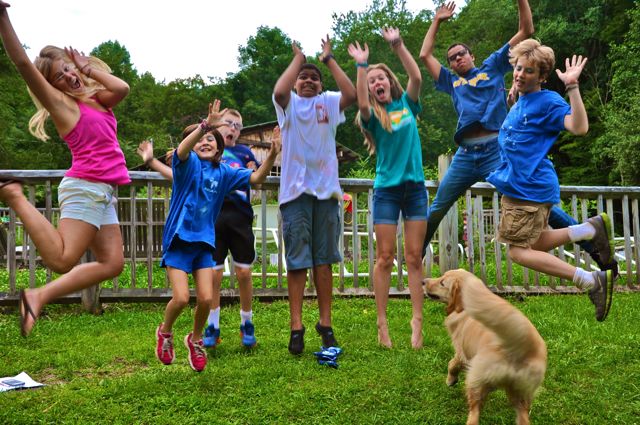 This article was originally published in local papers.
This article was originally published in local papers.
Spruce Pine, North Carolina – Camp Spring Creek of Mitchell County and OpenDoors of Asheville join forces to make a difference in the lives of four Western North Carolina children.
This summer, four Buncombe County children connected through OpenDoors of Asheville were awarded full scholarships to attend Camp Spring Creek, an academic and recreational camp focusing on literacy, language, and math skills. Located in Bakersville, the camp has served children from WNC and around the world for 11 years and is one of only three residential camps in the United States accredited by the Academy of Orton-Gillingham Practitioners and Educators. OpenDoors connects local children living in multi-generational poverty with enrichment and education opportunities to help break the cycle of poverty. The organizations teamed up to provide jointly-funded scholarships made possible through private donations, enabling four children from Buncombe County to attend Camp Spring Creek for four weeks at a total value of $29,920.
According to Jennifer Ramming, Executive Director of OpenDoors, the nonprofit currently partners with 13 Asheville city schools for 48 students, more than 2/3 of whom have some type of language-based learning difference and suffer greatly from “summer slide.” The Orton Gillingham methodology offered at Camp Spring Creek provides daily, one-on-one, multisensory tutoring sessions for each camper that is both diagnostic and prescriptive. “The students were assessed and progressed in areas such as phonemic awareness, decoding, encoding, writing mechanics and study habits,” says Ramming. “There was also a wonderful section on the report [from Camp Spring Creek] for each child called ‘Recommendations’ that gives us a road map for how to continue our student’s success in partnership with the teachers and specialists during the upcoming school year.”
Co-founder of Camp Spring Creek Susie van der Vorst is overjoyed about the partnership. “The kids from OpenDoors had the most integrity and the best manners of any campers I’ve ever seen,” she says. ”All the OpenDoors children were an asset to our program and taught us as much as we taught them. Everyone fit right in and it was great to see the OpenDoors kids getting to know the other campers and branching out to form friendships of their own.”
As a part of their study hall sessions at Camp Spring Creek, campers write letters home. The OpenDoors campers also wrote thank you letters to “sponsors” whose donations made the scholarships possible. “I am a better reader now and I met new people,” wrote one 7th grade child, “Thank you for helping me come here.” Another camper, age 10, wrote: “My reading is improving. My tutor is cool and she taught me cursive. I have made lots of friends here and some of them are from different places.” Their letters also included positive responses to new experiences they had at camp, such as whitewater rafting, paintball, swimming lessons, and woodshop.
For more information about services from OpenDoors, residents of Buncombe County can call 828-777-1135 or visit opendoorsasheville.org. For information on teacher training, camp, or tutoring opportunities through Camp Spring Creek, call 828-766-5032 or visit www.campspringcreek.org.
In Their Own Words: Scholarship Sponsor Thank You's
This summer, Camp Spring Creek and OpenDoors of Asheville provided 4 jointly-funded full scholarships for 4 Buncombe County children to attend camp for a month. Learn more about OpenDoors by reviewing our inspiring interview with Executive Director Jennifer Ramming here. Meantime, enjoy these camper thank you letters: Dear Sponsor,
Thank you for helping me to go to camp. I love to go camping now. I learned how to read better. Also, tapping helps with my spelling. I did not know that you could make so many things out of wood. Thank you so much.
Love,
[Female camper, 11 years old]
Dear Sponsor,
Thank you for my time at camp. I have made lots of friends and some of them are from different places. My tutor is cool and she taught me cursive. We learn new things everyday. My reading is improving and my tutor is making reading a lot easier and all this happened because of OpenDoors and Camp Spring Creek.
Love,
[Female camper, 10 years old]
Dear Sponsor,
Thank you for helping me come here. I am having so much fun at this camp. I'm really glad. I came to do whitewater rafting at this camp. I am a better reader now and I met new people. Thank you.
Love,
[Male camper, 10 years old]
In His Own Words: Zachary
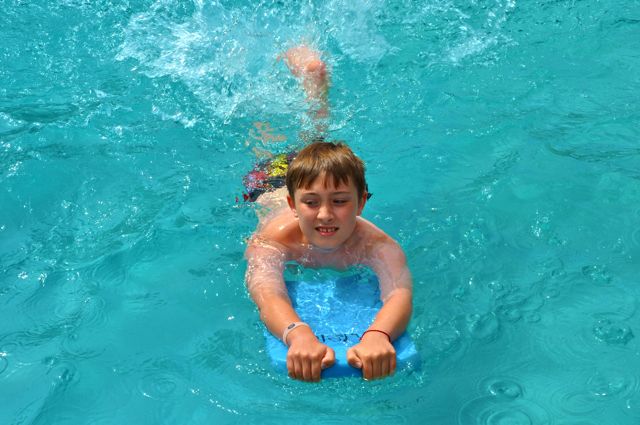 This summer, camper Zachary participated in our Orton-Gillingham/Camp Counselor pilot program designed to benefit Mitchell County children. For four weeks, Zachary came to camp for 2 hours each day: one hour spent with his OG tutor and another hour spent participating in camp activities. "This was Zachary's first time attending a camp like this," said his mother Meredith, "and before it started he was already looking forward to it. He finished and said he hopes to return. We are so grateful and appreciative of the opportunity he was given.”
Zachary, who is in 4th grade, worked with Lilja, who was a trained OG tutor and our camp lifeguard. “I had a great time," he said. "I learned a lot of stuff. I even learned how to swim.” Zachary also came home raving about his experiences in Woodshop and trying out the zip-line.
This summer, camper Zachary participated in our Orton-Gillingham/Camp Counselor pilot program designed to benefit Mitchell County children. For four weeks, Zachary came to camp for 2 hours each day: one hour spent with his OG tutor and another hour spent participating in camp activities. "This was Zachary's first time attending a camp like this," said his mother Meredith, "and before it started he was already looking forward to it. He finished and said he hopes to return. We are so grateful and appreciative of the opportunity he was given.”
Zachary, who is in 4th grade, worked with Lilja, who was a trained OG tutor and our camp lifeguard. “I had a great time," he said. "I learned a lot of stuff. I even learned how to swim.” Zachary also came home raving about his experiences in Woodshop and trying out the zip-line.
When asked about the kinds of changes Meredith noticed in her son, she had this to say: “I was very impressed with the progress that he made in such a short period of time. I was very excited when I saw the final report that Lilja wrote up and printed out. Self-confidence was an issue with our son and I was concerned about his ability to read fluently. I definitely noticed a difference in his confidence as a reader since attending camp.”
Part of Camp Spring Creek's mission is to make the tutoring and camp experience accessible to even more children from Western North Carolina, whether through grant or donor funding. This pilot program marks a big step in the right direction and we are so excited to be expanding our "local family" in this way. To spotlight what makes life so great here, we're also asking each of our local families what it is they love about living in WNC. Meredith says, "Number one, I love the beauty of the Blue Ridge Parkway and the Appalachian Mountains. Also, the kindness that is displayed among the people that live here is just remarkable. Sometimes, when you go to a bigger city, there’s not necessarily a colder feel, but people just don’t know each other like they do when they live in a smaller town. This is home to us.”
Ben's Story
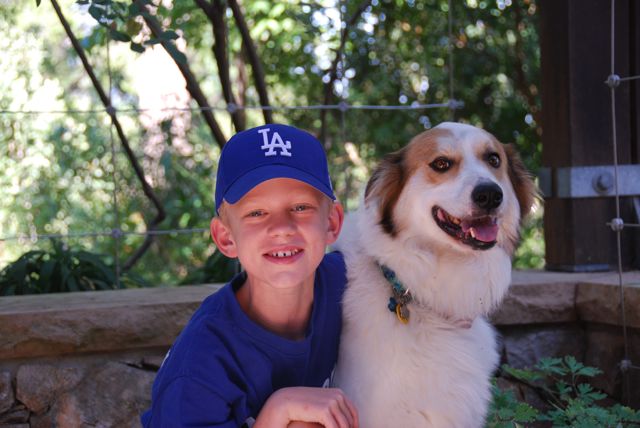 Ben is 10 years old and first attended Camp Spring Creek in 2012. In 2013, he and his family were delighted that he would be able to come back. Unfortunately, a change of plans in late spring prevented Ben from being able to attend. Ben and his family decided make his camp spot available to a Western North Carolina child.
The silver lining is that, not only did a Mitchell County child get to experience Camp Spring Creek for the first time, but Ben will be able to return next summer. We can't wait to give him a warm welcome back!
Ben is 10 years old and first attended Camp Spring Creek in 2012. In 2013, he and his family were delighted that he would be able to come back. Unfortunately, a change of plans in late spring prevented Ben from being able to attend. Ben and his family decided make his camp spot available to a Western North Carolina child.
The silver lining is that, not only did a Mitchell County child get to experience Camp Spring Creek for the first time, but Ben will be able to return next summer. We can't wait to give him a warm welcome back!
Of his experience at camp last year, his mother shared: "Ben had a really great time. It was important for us to find a camp where he could continue the academic work he focused on during the school year, but still also be a kid. The thing we noticed the most was that his handwriting had vastly improved. He also gained a lot of confidence in reading."
Summer Summary: Photo Collage
Week 8 Reflections
The end of summer is always such a bittersweet time of year for us at Camp Spring Creek. We've sai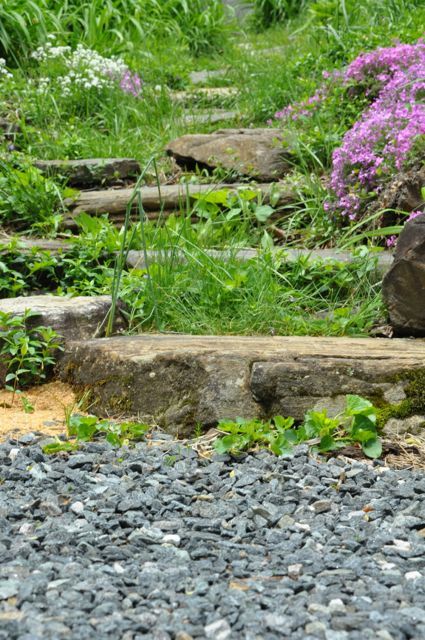 d our goodbyes and promised to keep in touch. We've cleaned and swept and cleaned some more. We've taken our last group photos and squeezed Mimi one last time (well, you guys did--we get to live with her all year!). But before all that, we did stick to business and wrap a few things up during Week 8 with:
d our goodbyes and promised to keep in touch. We've cleaned and swept and cleaned some more. We've taken our last group photos and squeezed Mimi one last time (well, you guys did--we get to live with her all year!). But before all that, we did stick to business and wrap a few things up during Week 8 with:
- Final testing
- Making paste paper journals
- Finishing up all our clay and woodshop projects
Selecting a Room Inspection winner daily (instead of at the end of the week) and rewarding them with freezy pops at lunchtime.
By now, our campers have headed down new paths...back home, readying for a new school year, dreaming of next summer. Our hearts are with you and please call or email us at any time!
Week 8 Photo Collage
Week 7 Reflections
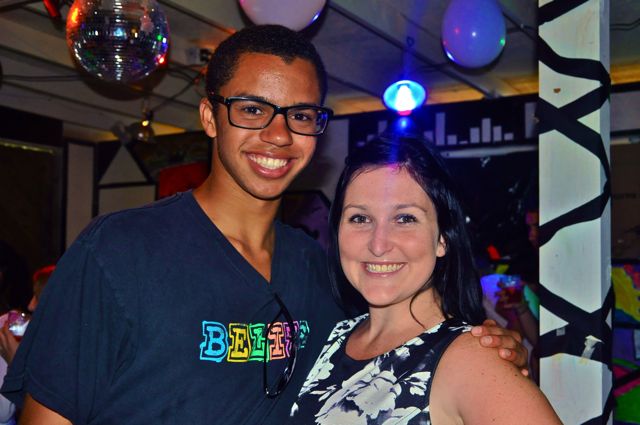 We're in the home stretch of summer here at Camp Spring Creek and so much has happened, at times it feels like a blur. We said goodbye to campers Miles and Matthew last week and miss them both. Meanwhile, CIT Gregg (who came at the midpoint of summer), has been enjoying his new role and is thrilled that he got to overlap a little bit with Marco, who was our CIT for the first half of summer. These two first met a Camp Spring Creek as campers and have known each other for years! Greg has been helping out in the boy's cabins, assisting with lifeguarding, kitchen prep, and sometimes even woodshop and art. "I’ve been taking a lot of kids down to breakfast in the morning or helping them get ready for bed at night," Greg said. "I also make sure they brush their teeth and make their beds right."
We're in the home stretch of summer here at Camp Spring Creek and so much has happened, at times it feels like a blur. We said goodbye to campers Miles and Matthew last week and miss them both. Meanwhile, CIT Gregg (who came at the midpoint of summer), has been enjoying his new role and is thrilled that he got to overlap a little bit with Marco, who was our CIT for the first half of summer. These two first met a Camp Spring Creek as campers and have known each other for years! Greg has been helping out in the boy's cabins, assisting with lifeguarding, kitchen prep, and sometimes even woodshop and art. "I’ve been taking a lot of kids down to breakfast in the morning or helping them get ready for bed at night," Greg said. "I also make sure they brush their teeth and make their beds right."
Here's the run down of last week's news:
- Rain, rain, and more rain. But still, we swim! We hike! We laugh!
- Campers have been making ceramic mugs and vases in Art class and finishing up bird houses, doll houses, and bird feeders in the Woodshop.
- We changed our Outdoors Class around a bit. Rather than having this class peppered throughout the day with small groups of campers, we now enjoy Outdoor Class together. For the final period of classes, everyone in camp gathers and chooses from several outdoor options, giving them exposure to more fun activities over a longer span of time. Lately, we've been offering rock climbing, paintballing, water polo, hiking, and basic lifeguarding skills. After Outdoor Class, everyone piles inside for Study Hall to wind down our day before dinnertime.
- Epic games of Capture the Flag still continue...
- And our "Announcements" song has gotten a makeover. We still have 7 verses going (one for every week of camp), but we've changed them up a bit and moved things around to keep it interesting. Phew! Just singing the song is a workout in and of itself!
- This weekend we camped at the McDowell Nature Preserve, went wild with whitewater rafting, and even experimented with ziplining and mega jumping. Who knew there we so many different ways to have a roarin' good time--and with good friends, too!
- Sunday, everyone went on the infamous hike to the top of the property, which involves 2-3 hours of brave bushwhacking through nettles and brambles (it's fun, we swear!). Up top, we took a break, then took the easy way home down an old logging road. Great job, everyone! Time to hit the showers!
- Sunday night concluded with an impromptu game of poker between the boys' cabins. In the end, the winning camper earned his prize by deciding that the boys in the losing cabin would make his bed every morning for an entire week!
- Another bonus has been Chef Kevin and Nurse Kelly's sweet, lab puppy named Oliver ("Ollie" for short). Mimi's a giant compared to this lil' pup but we have a feeling that by next summer, these two will be unstoppable giants. It's been delightful to watch them "growing up" together at camp this summer and we'll try to post a photo soon.


